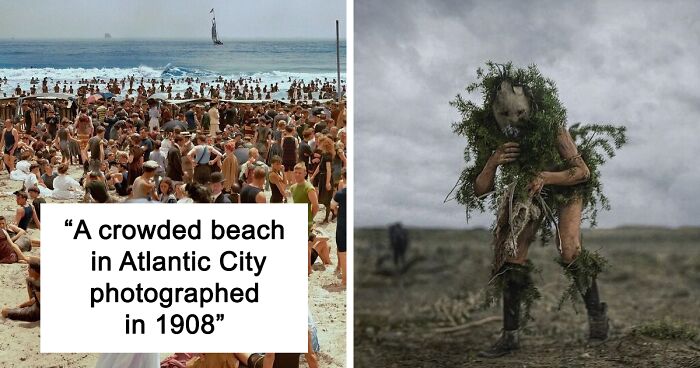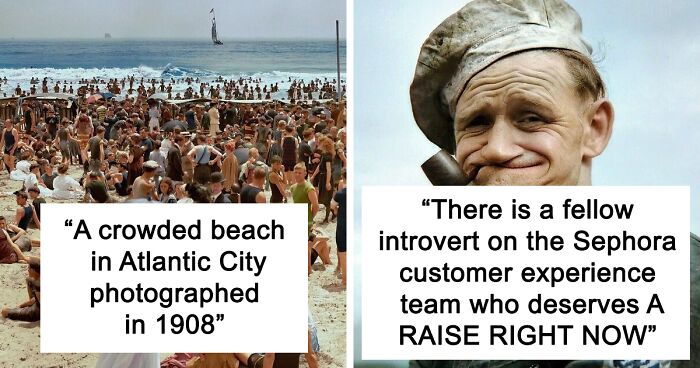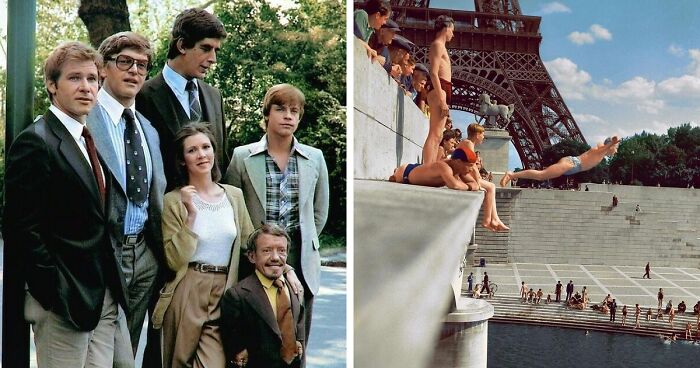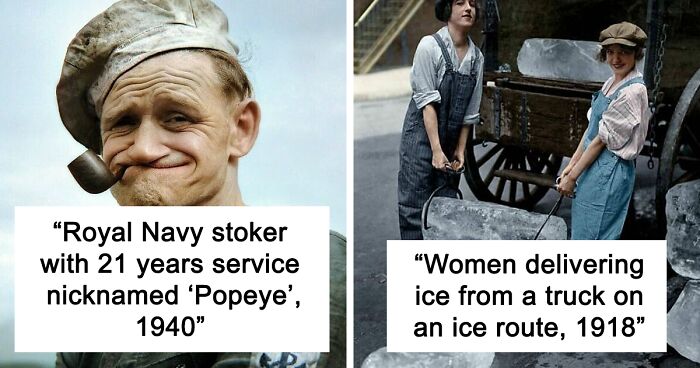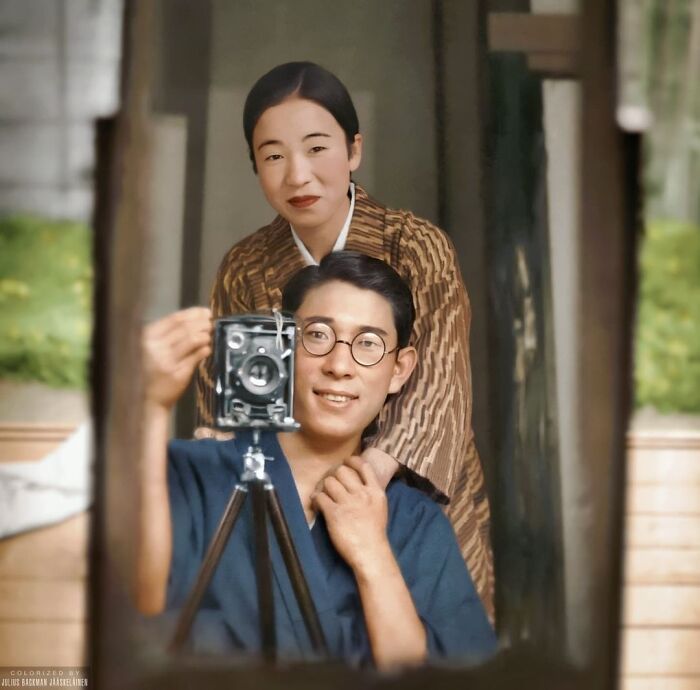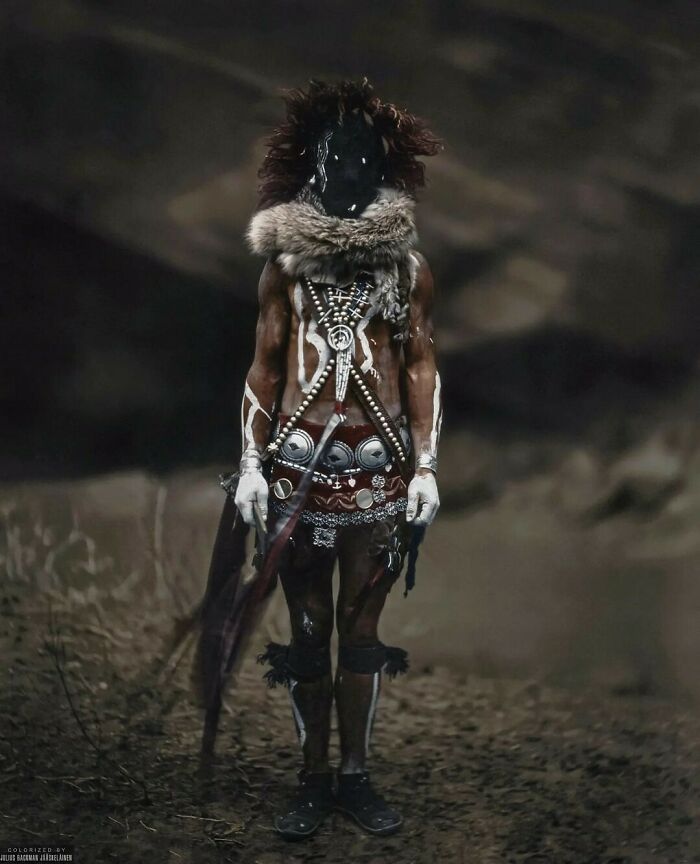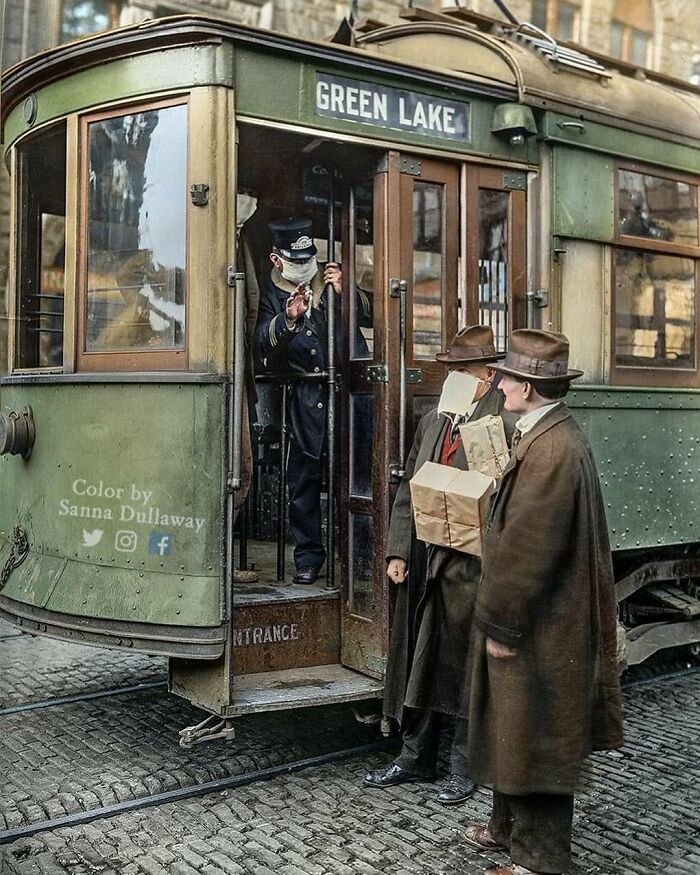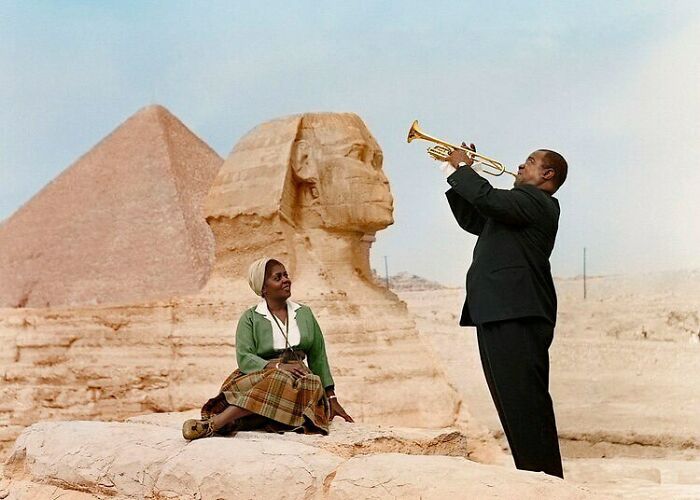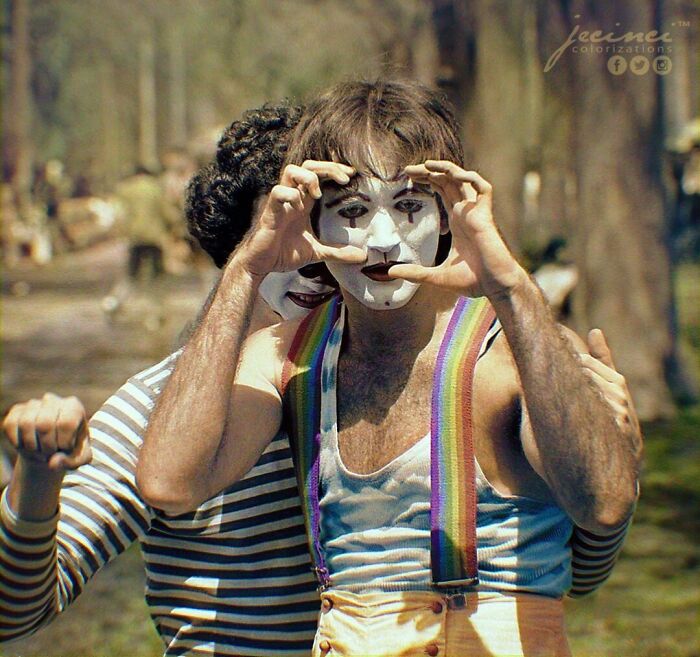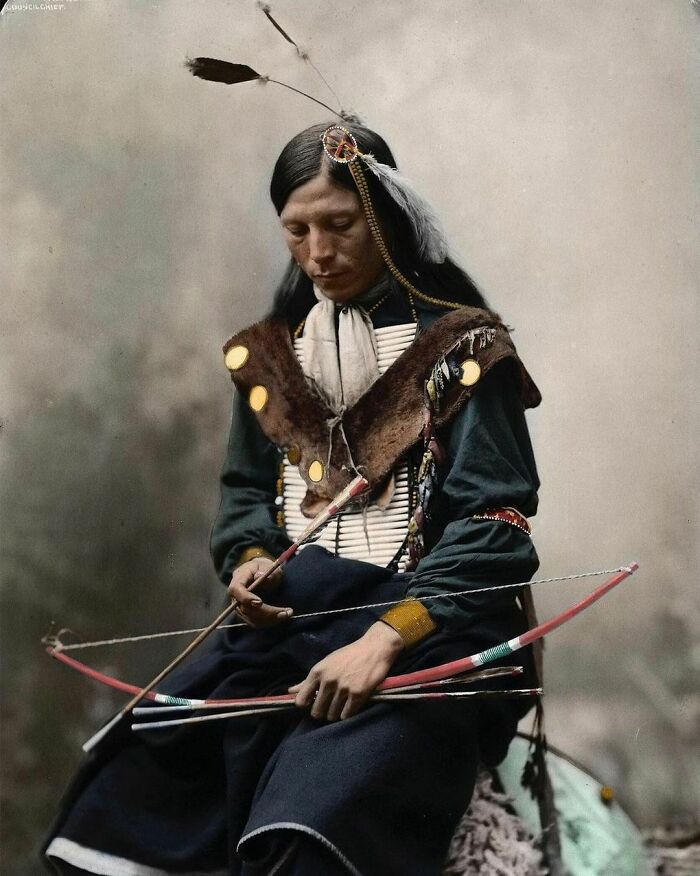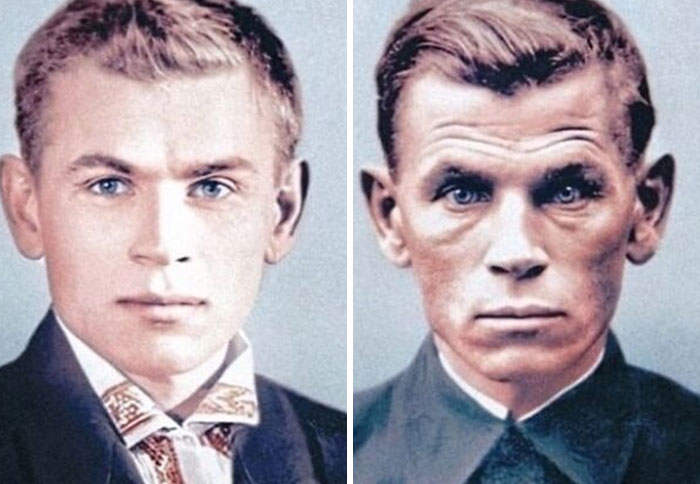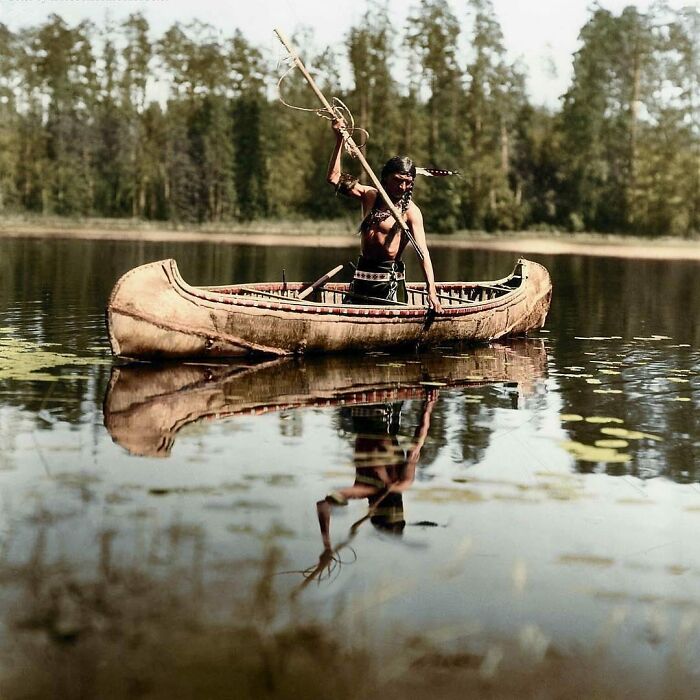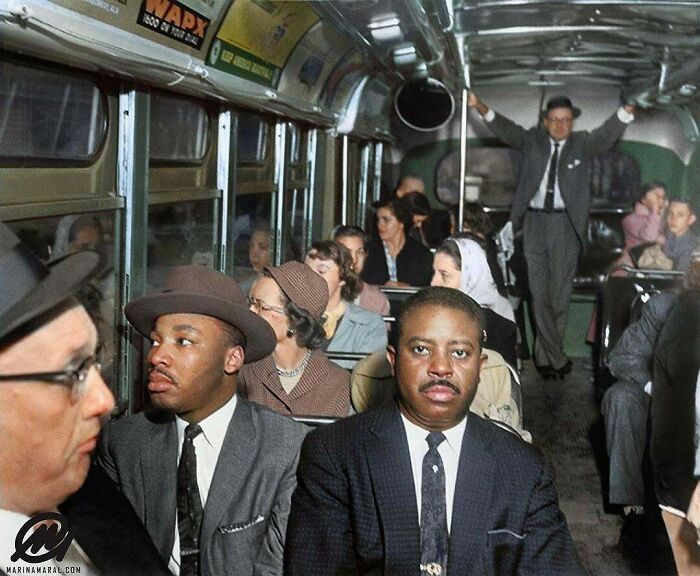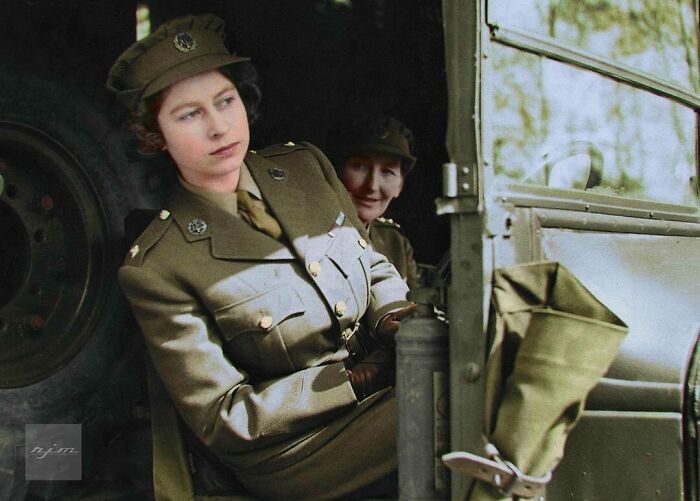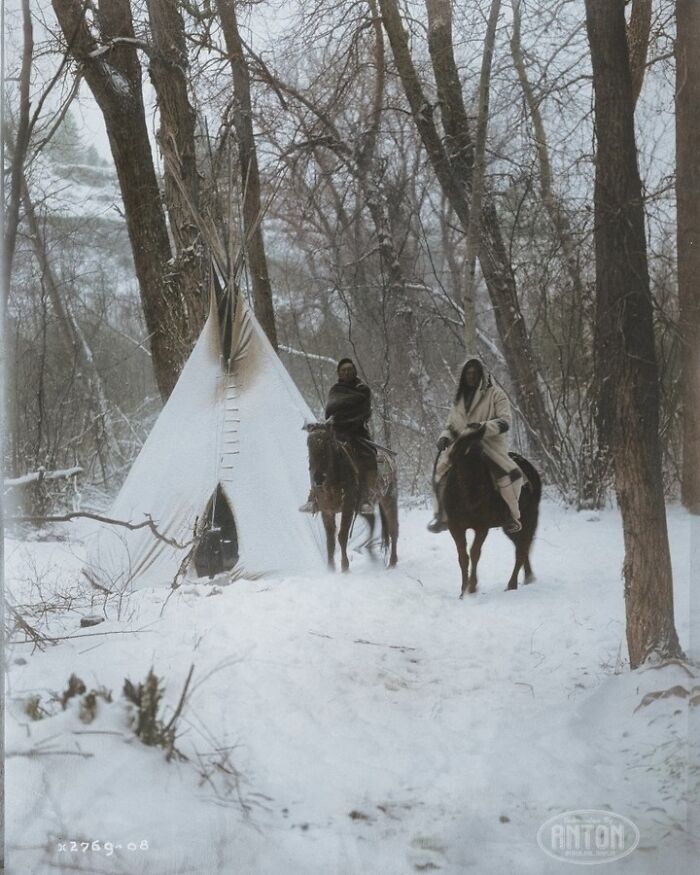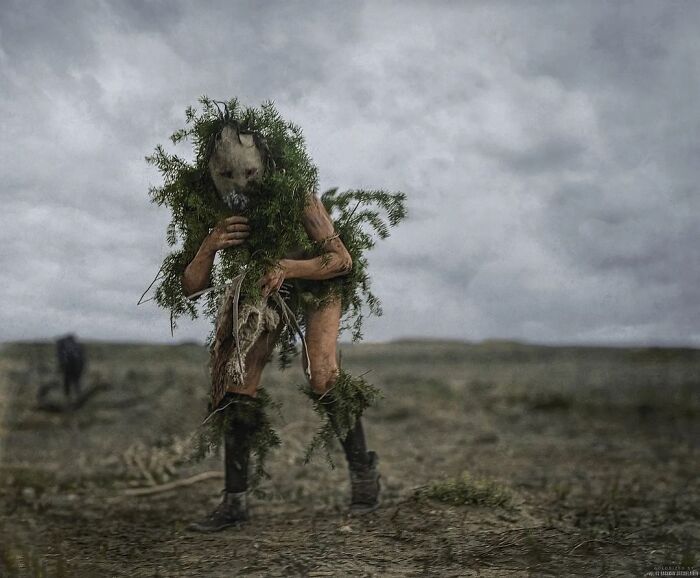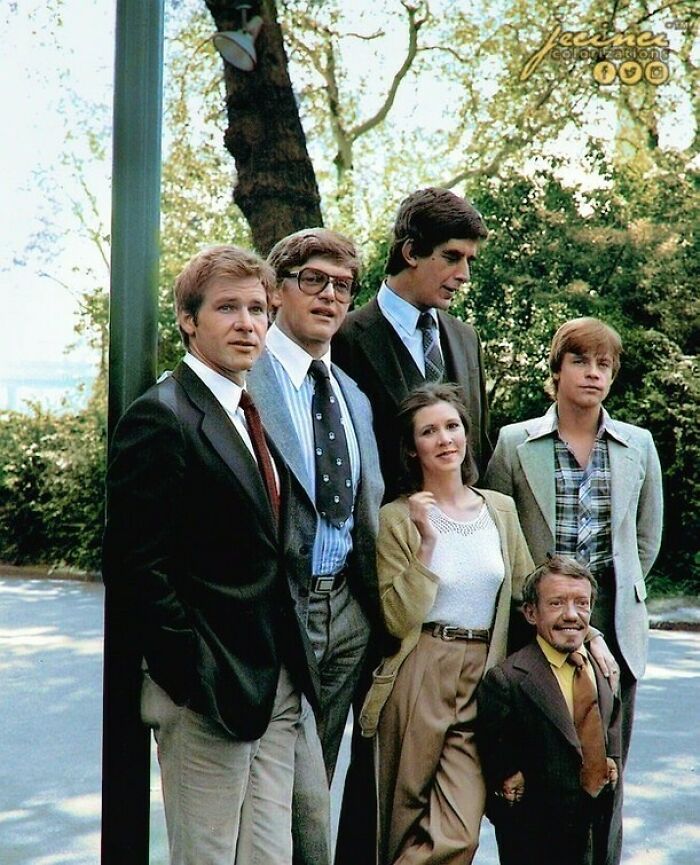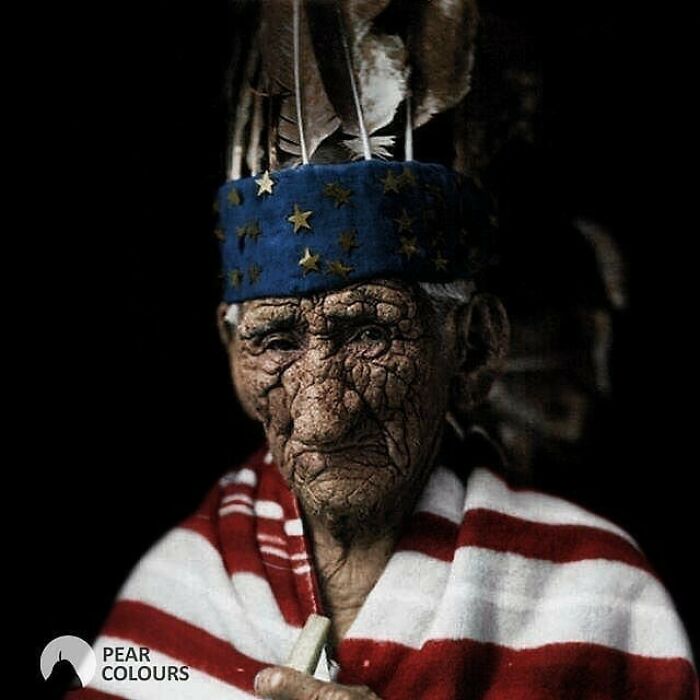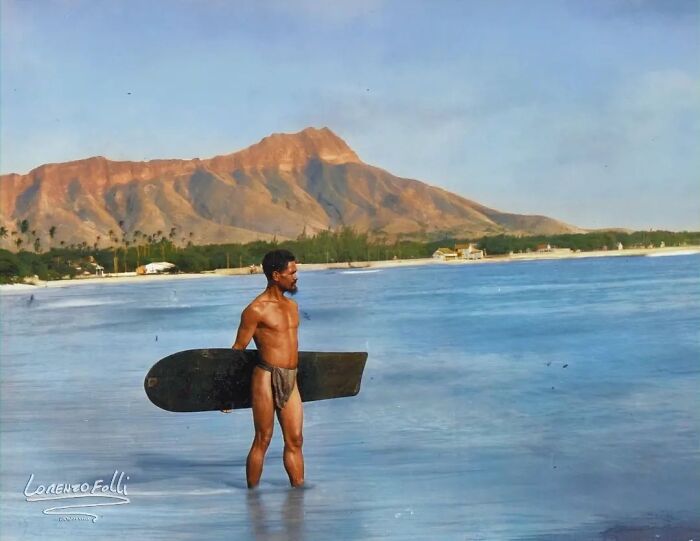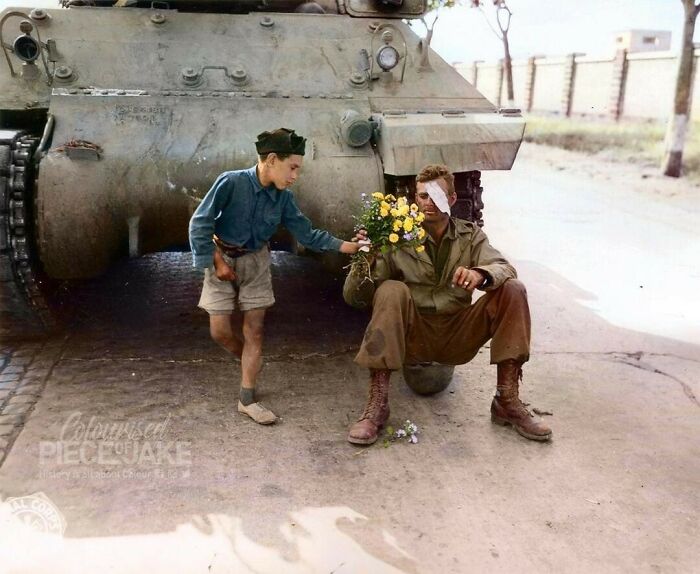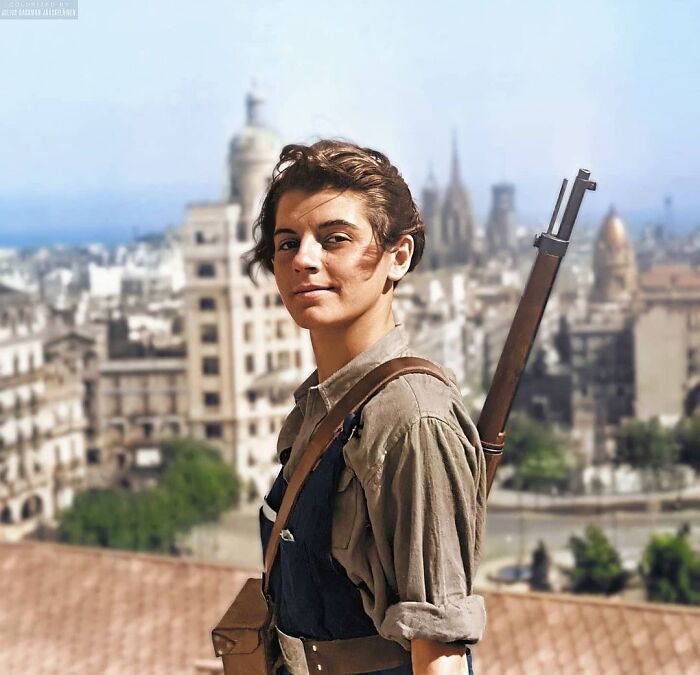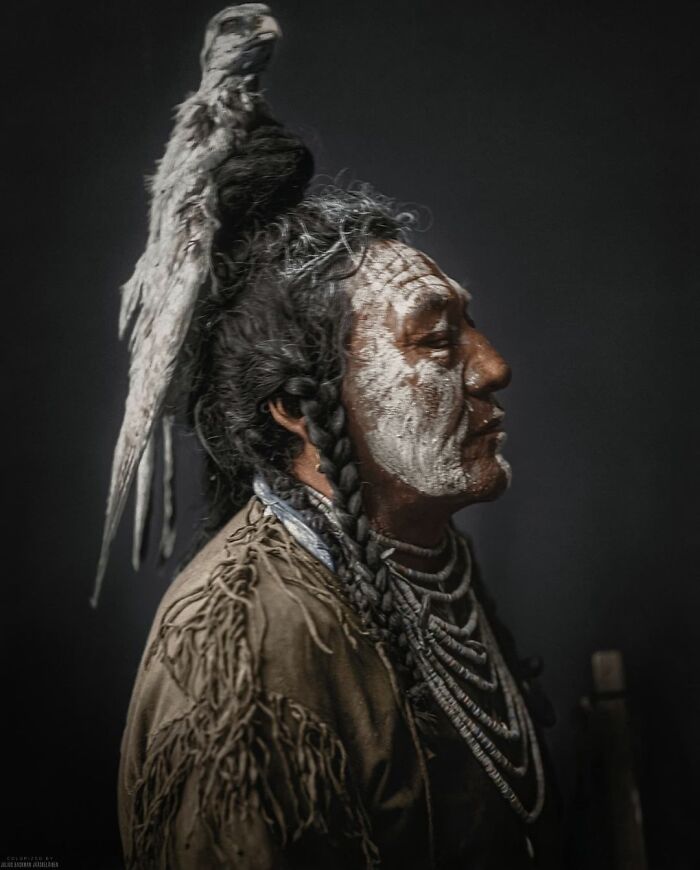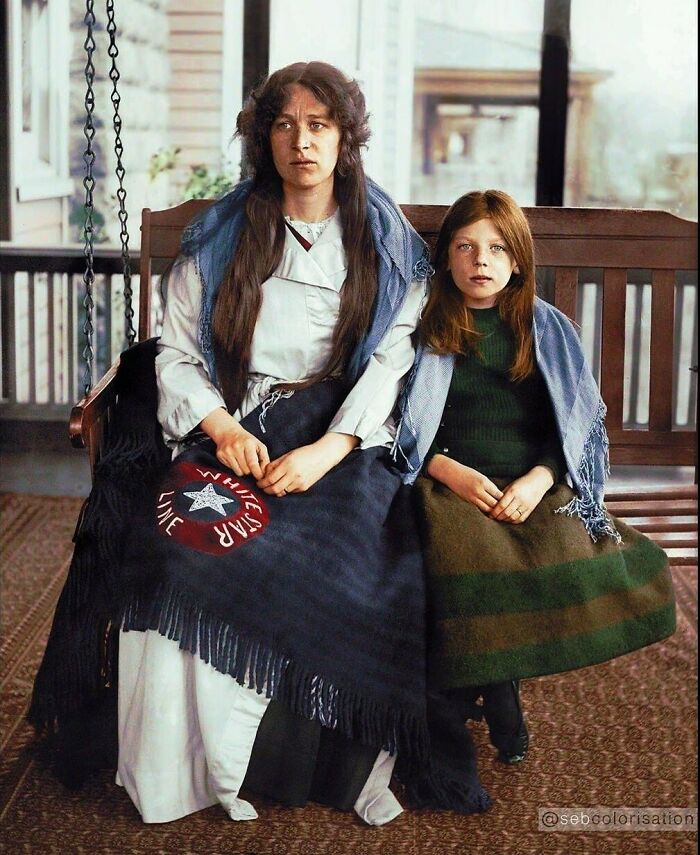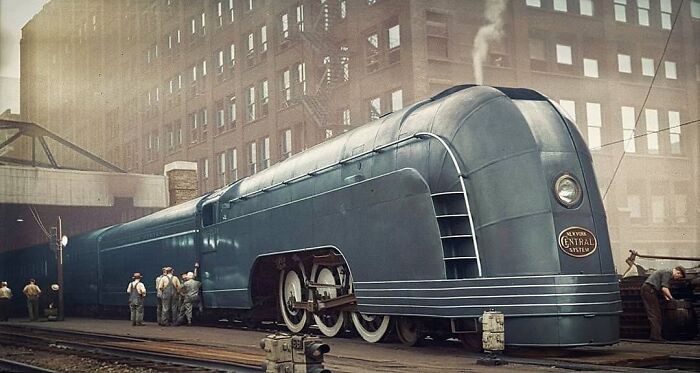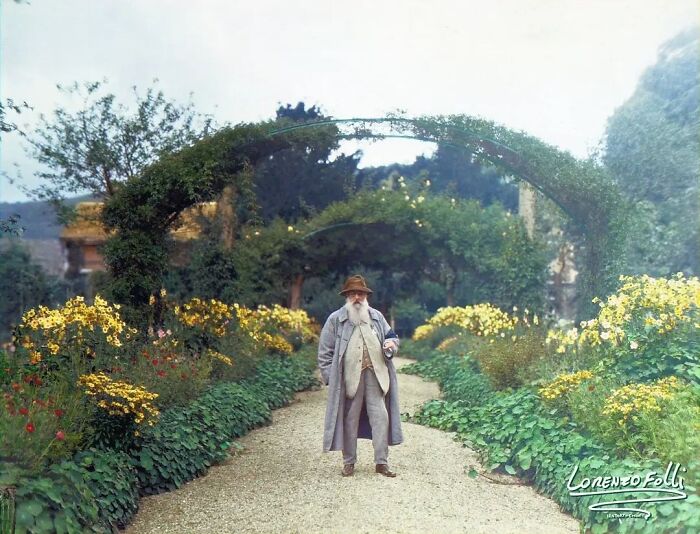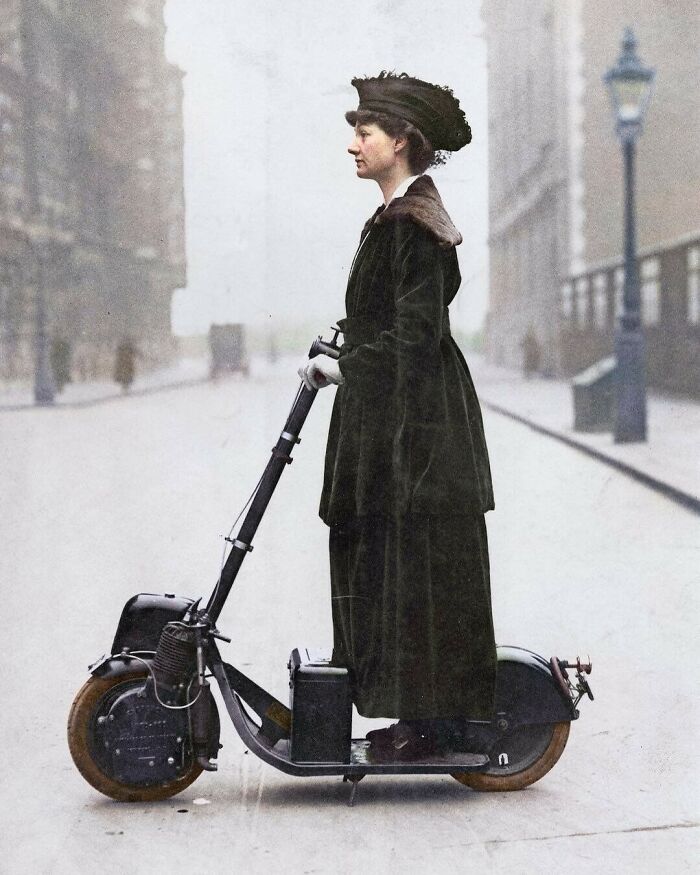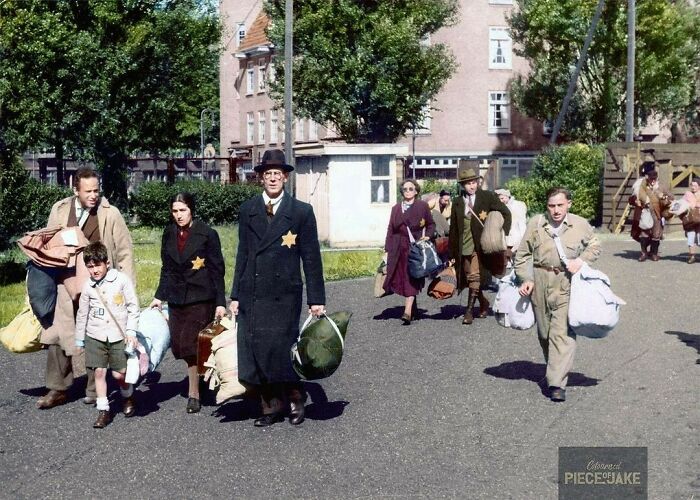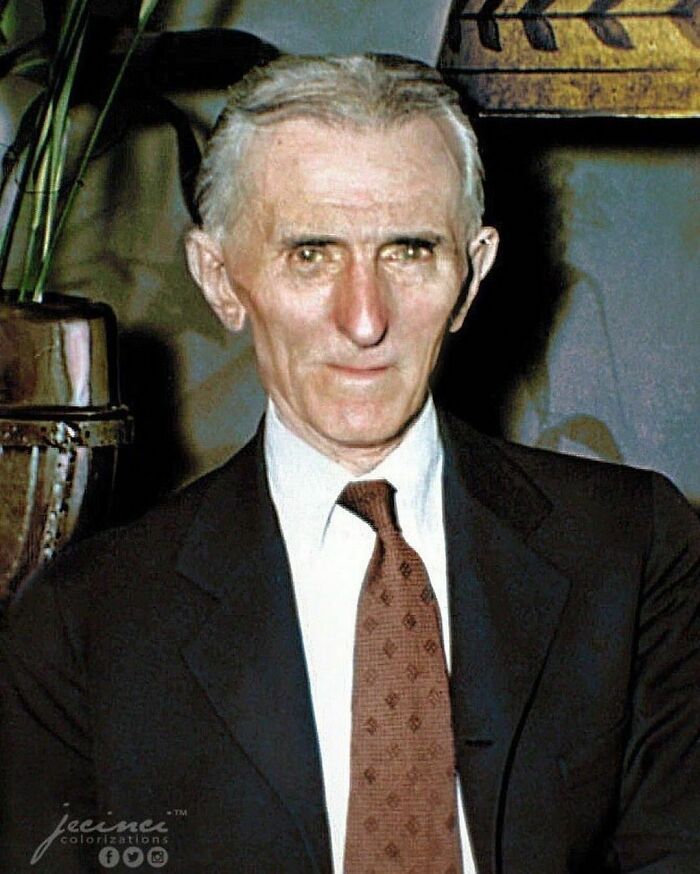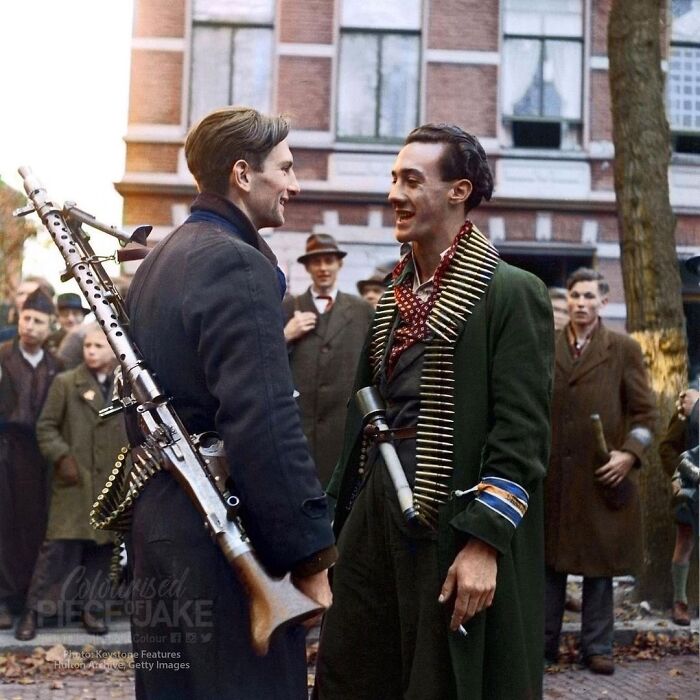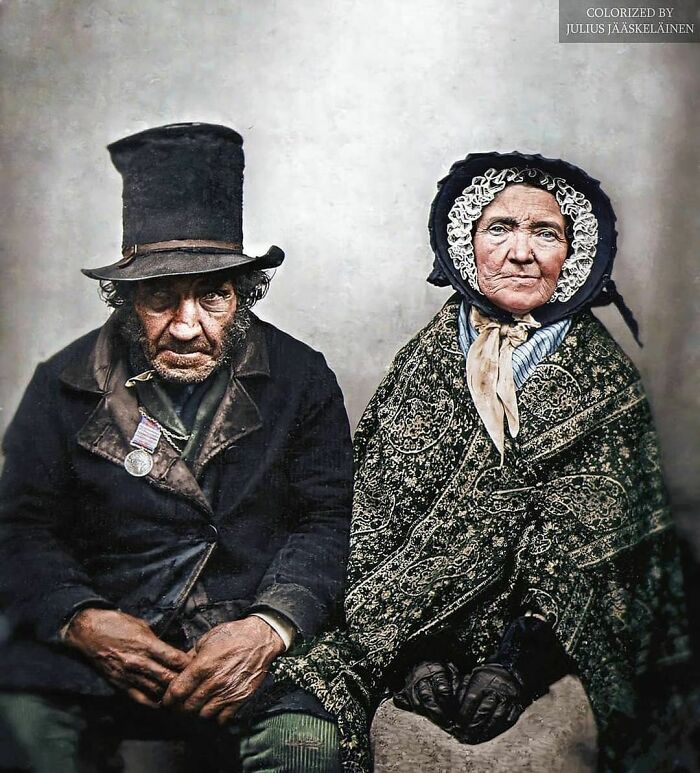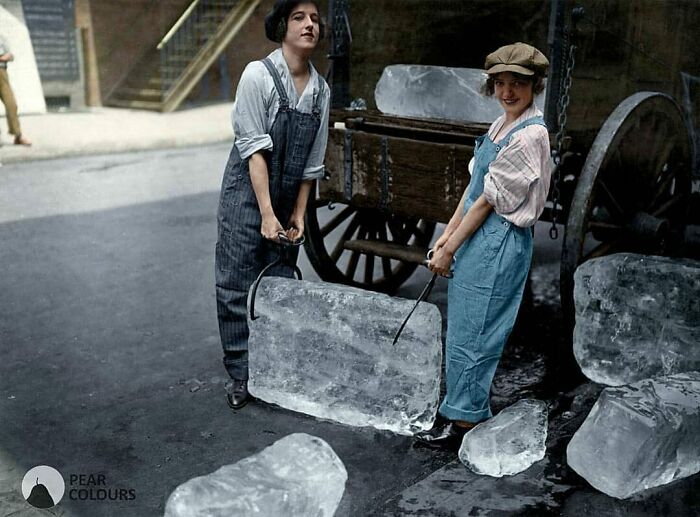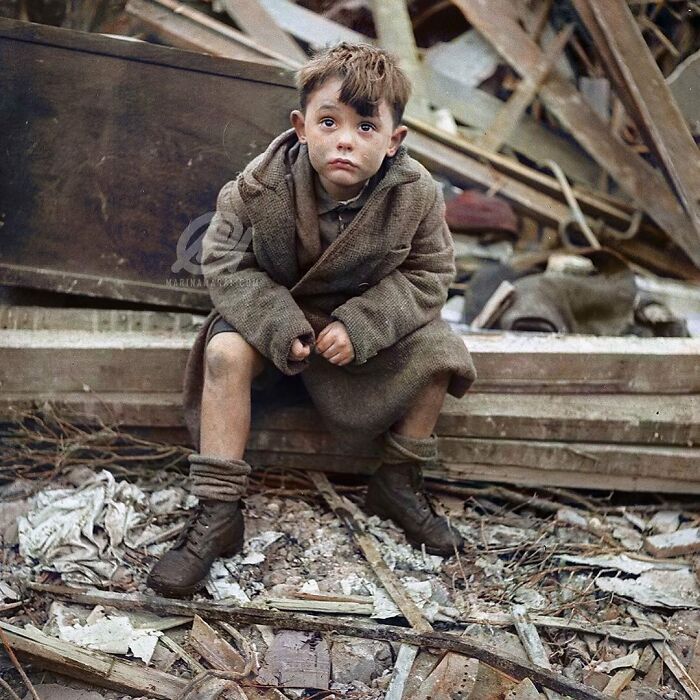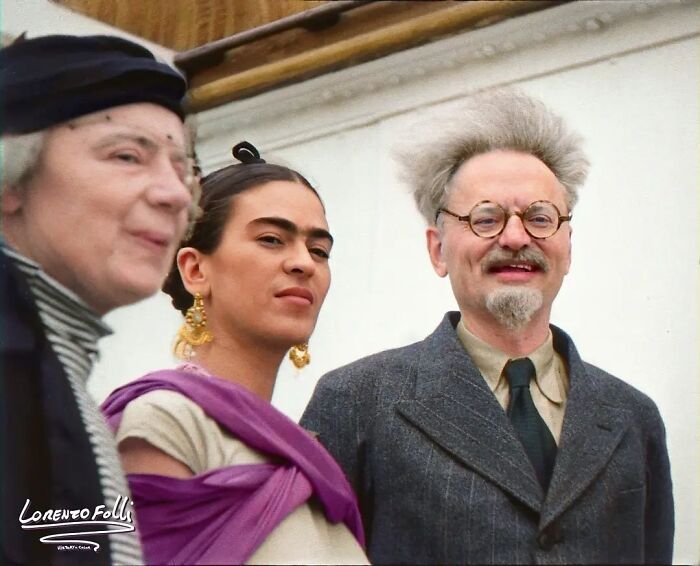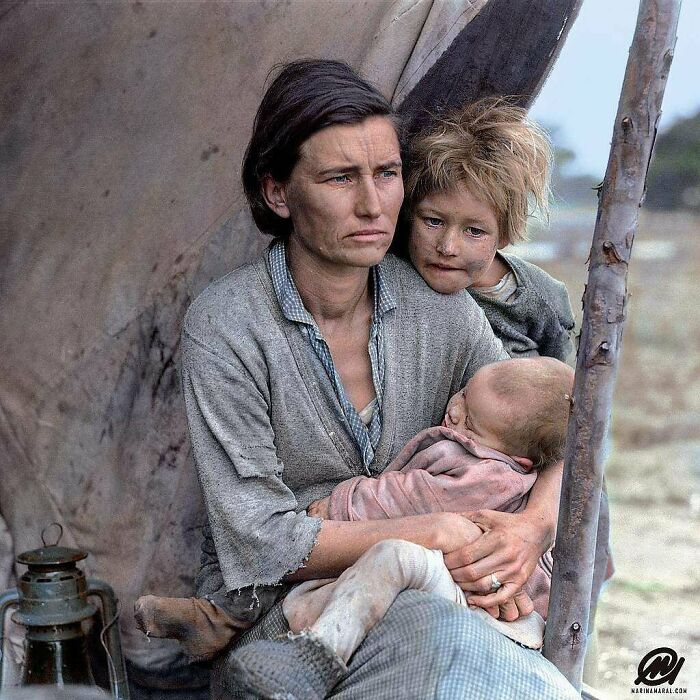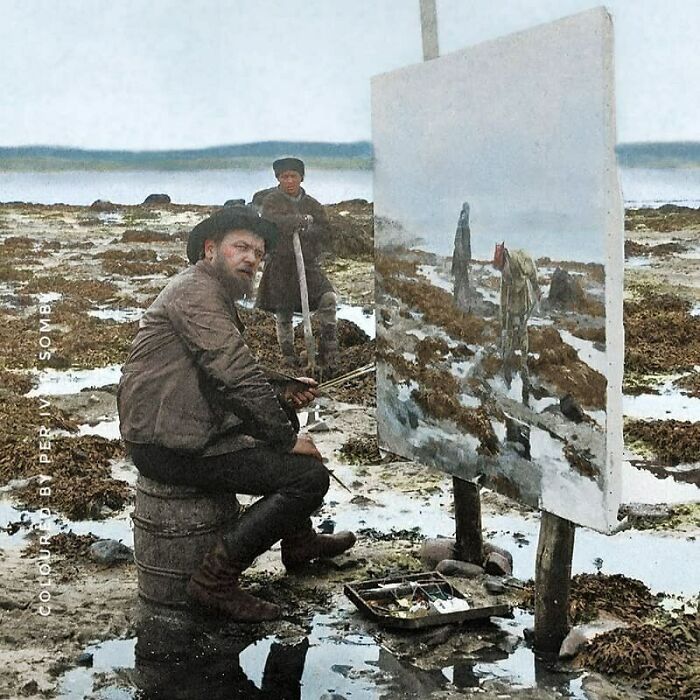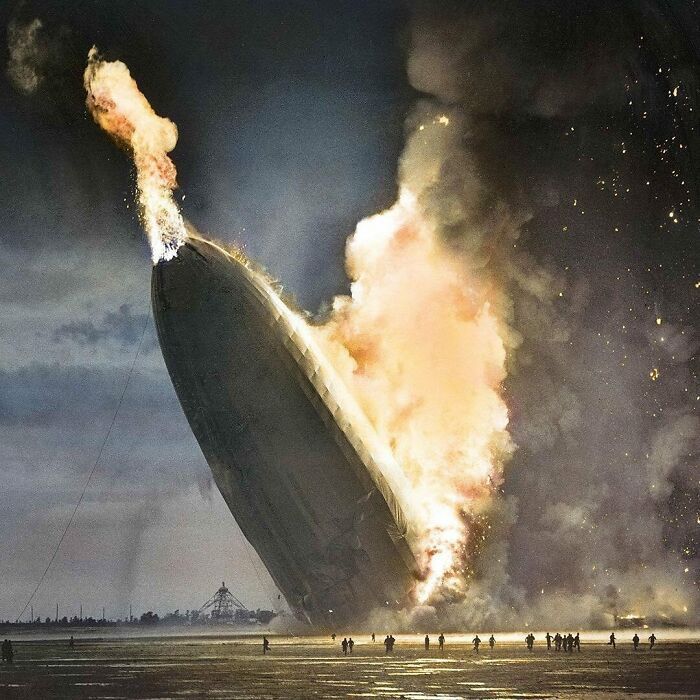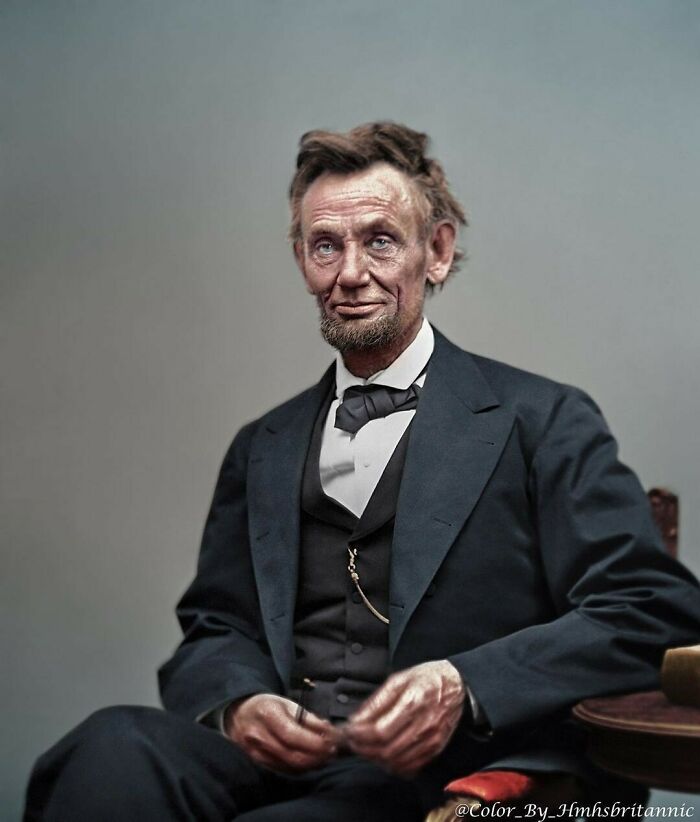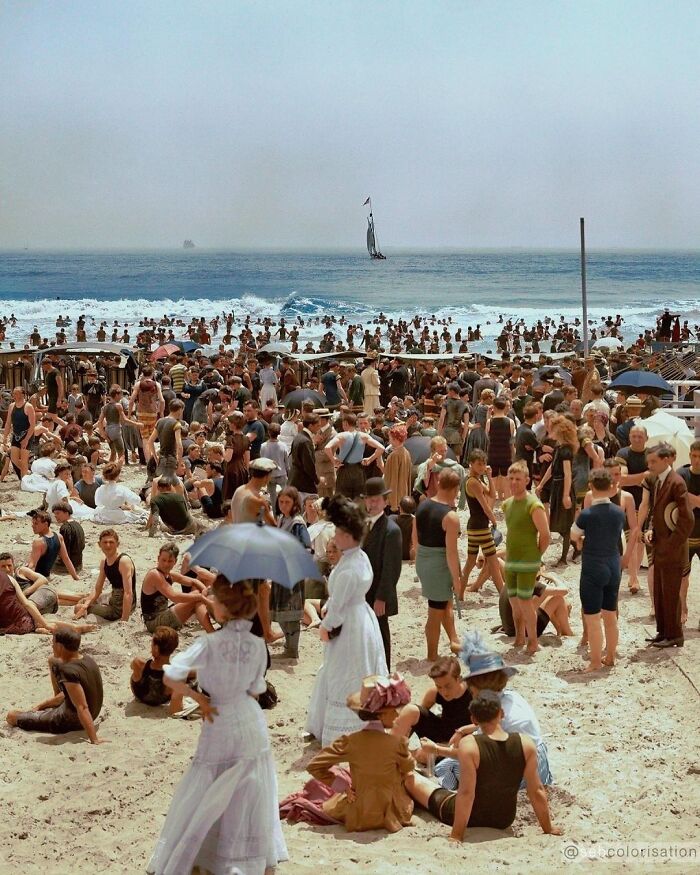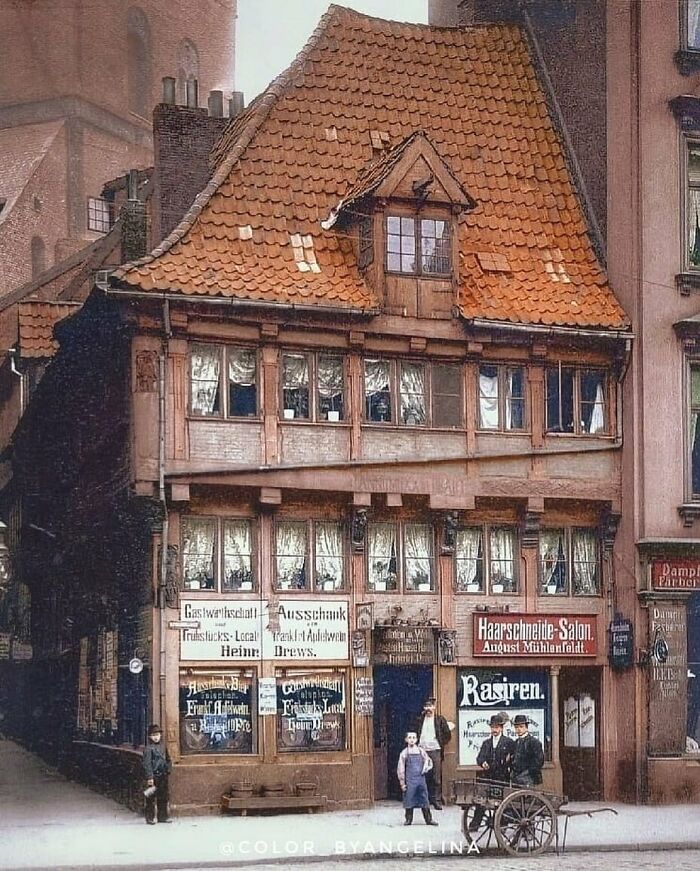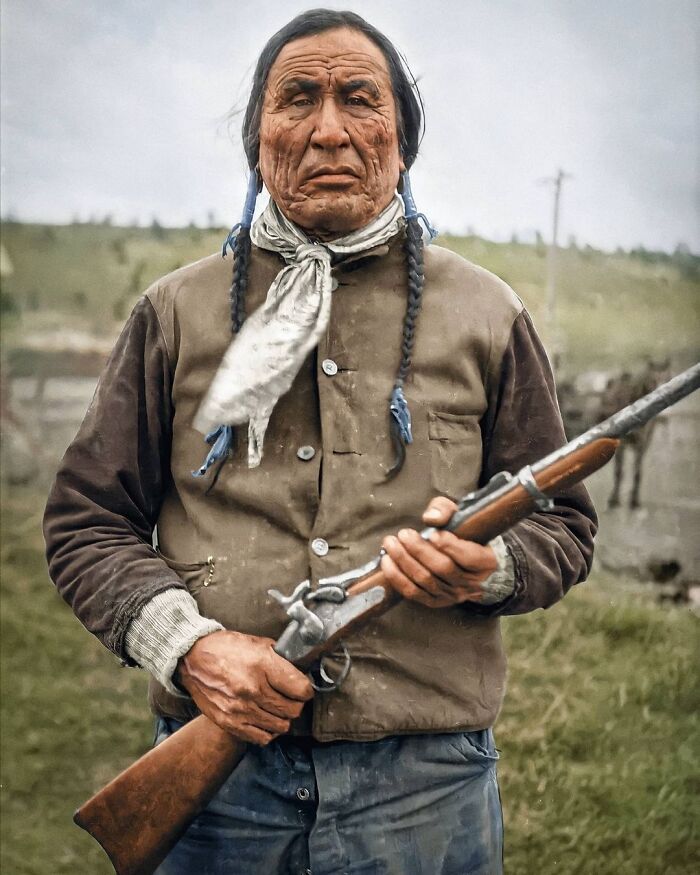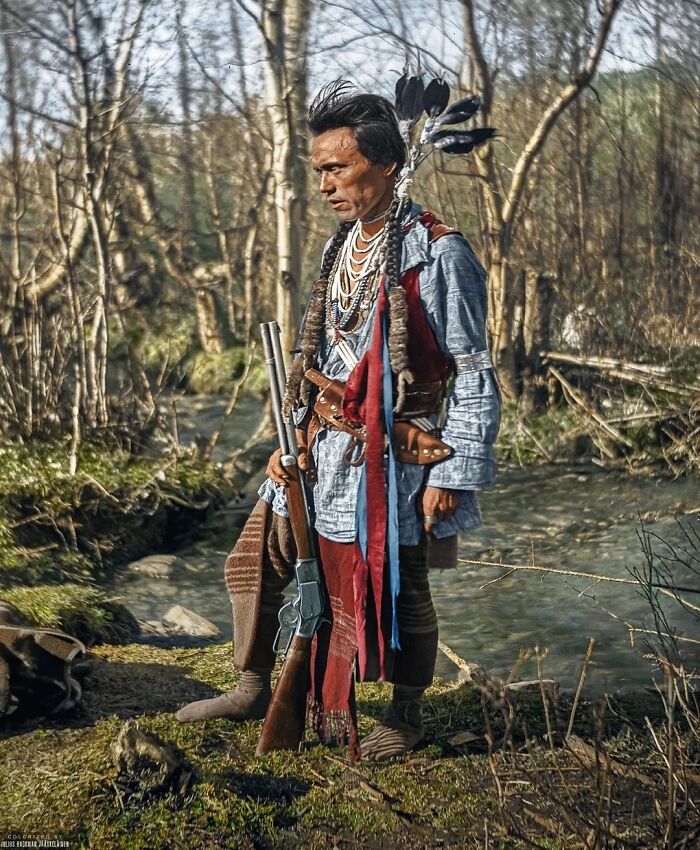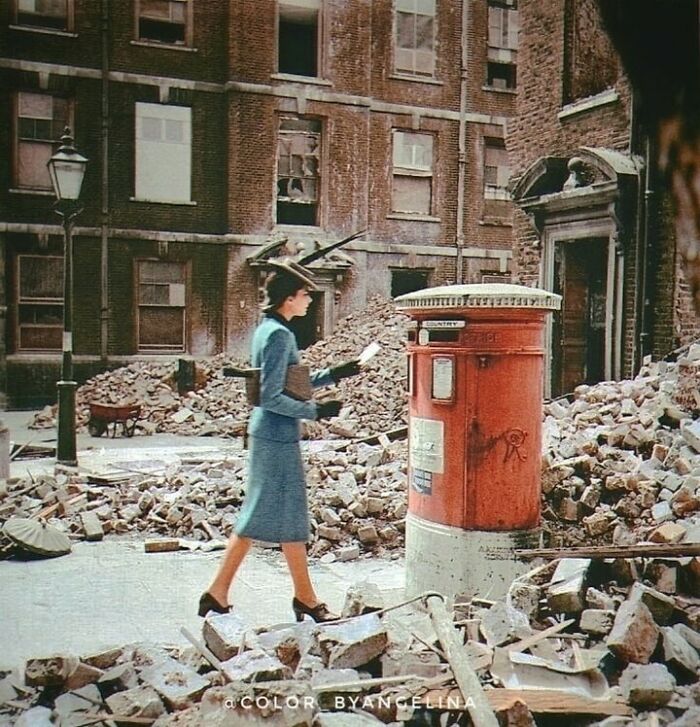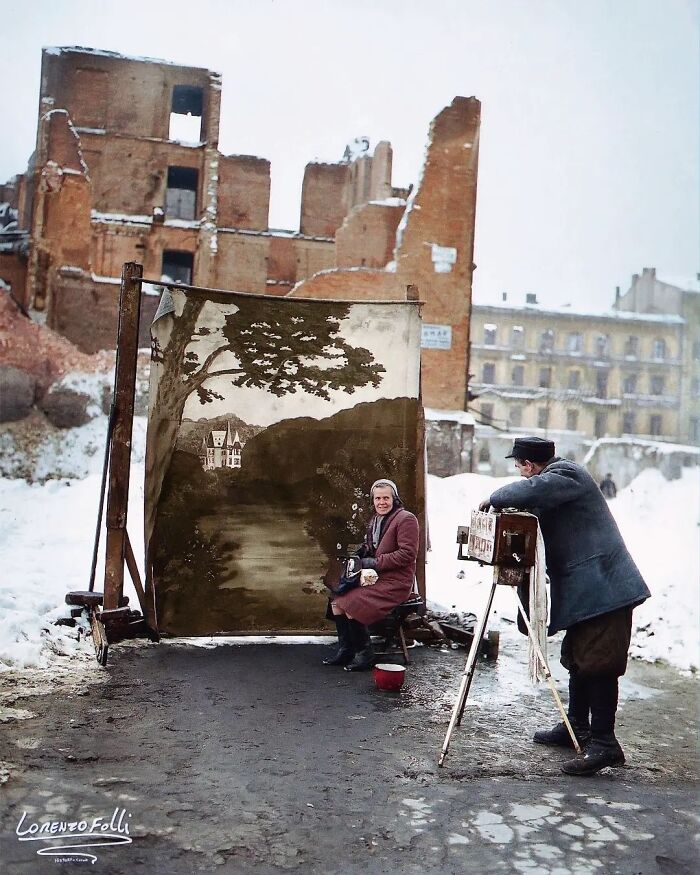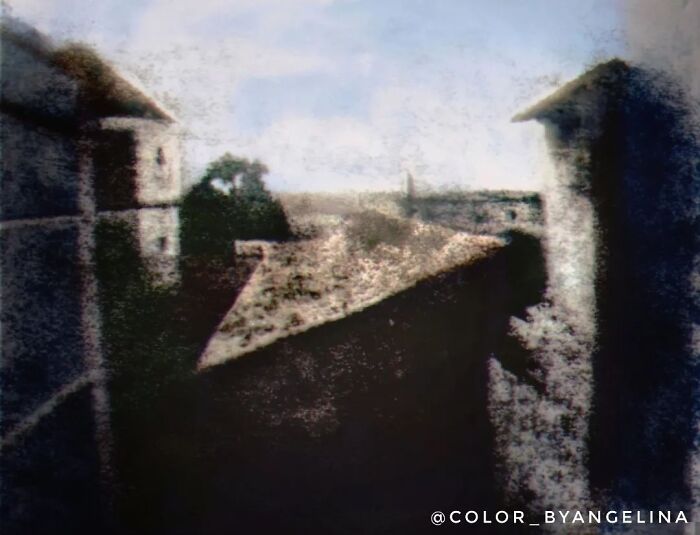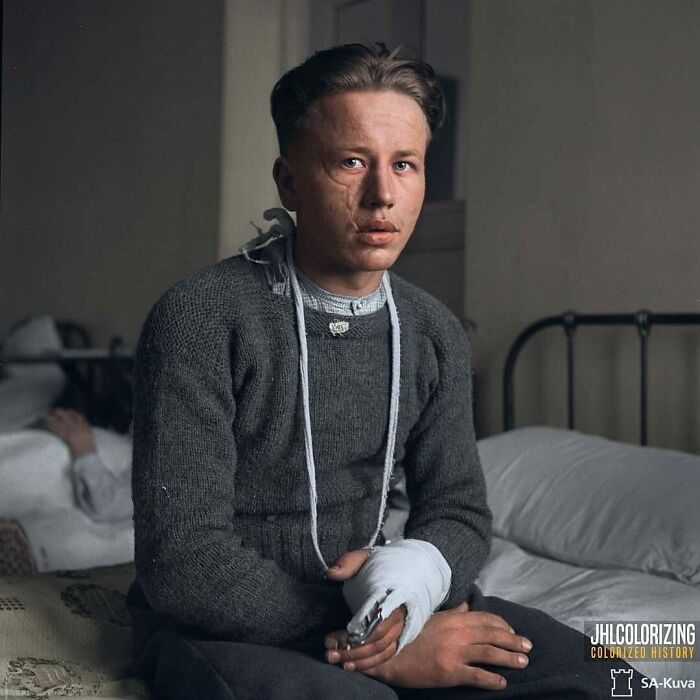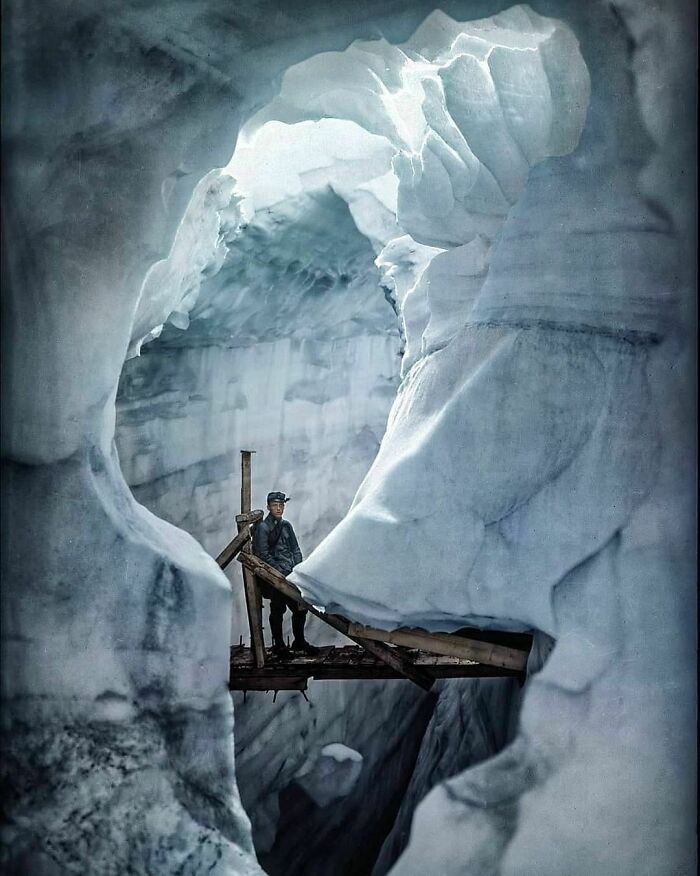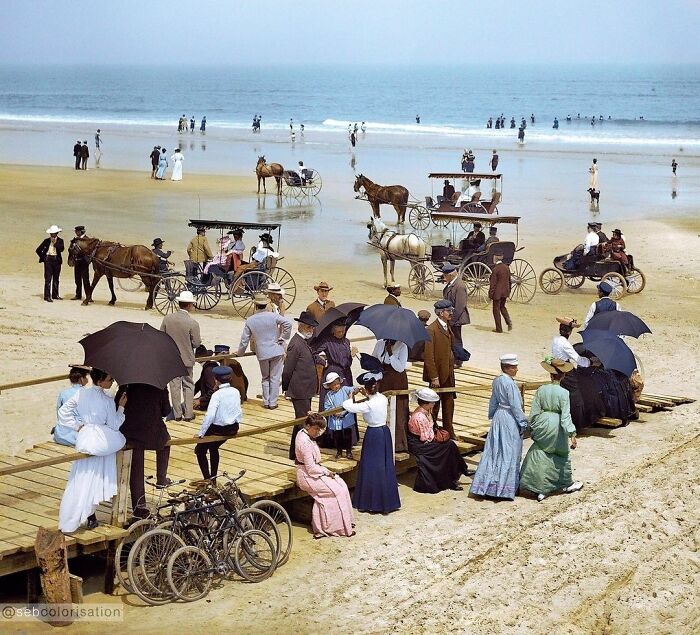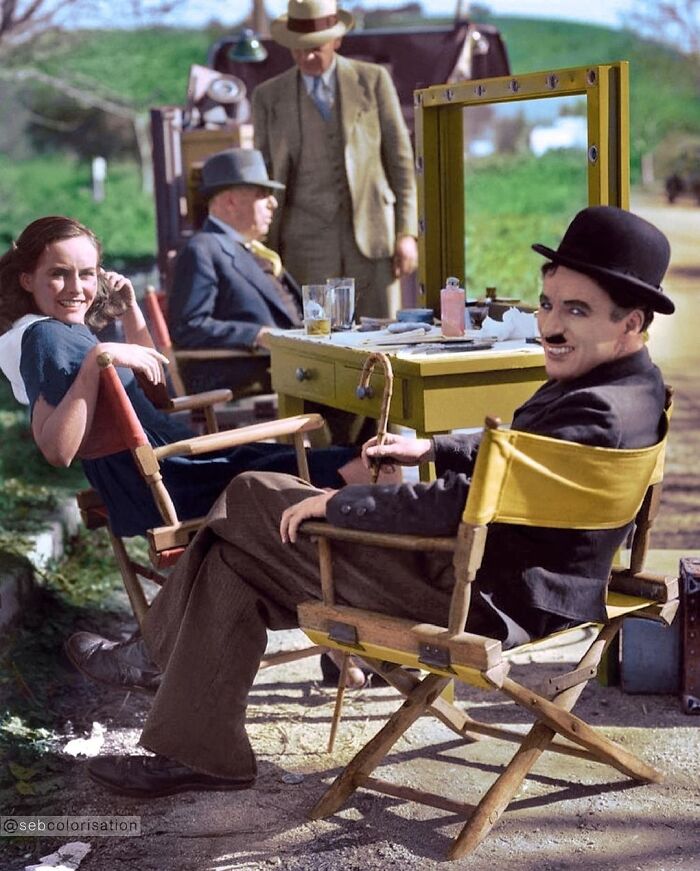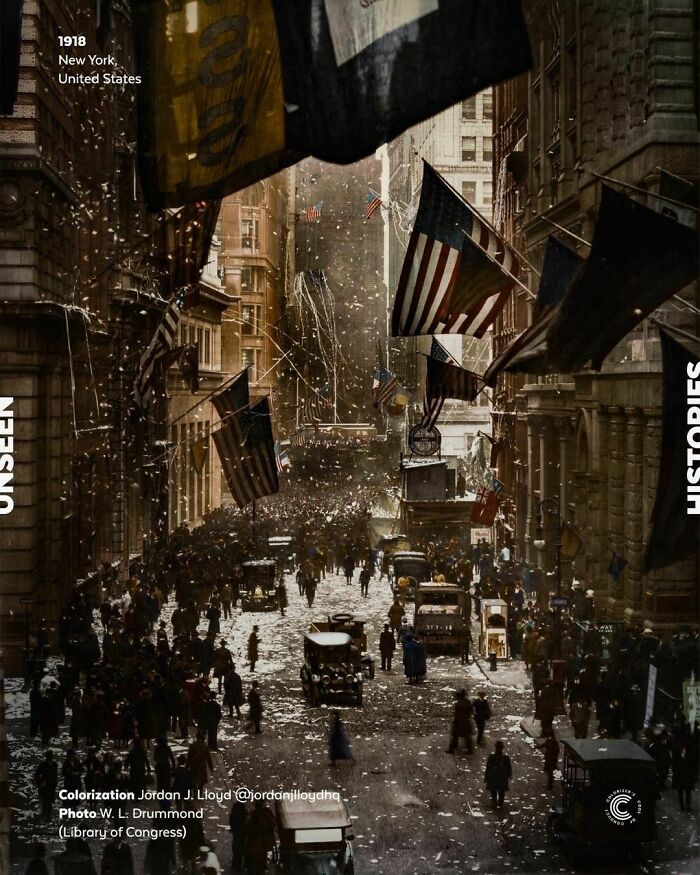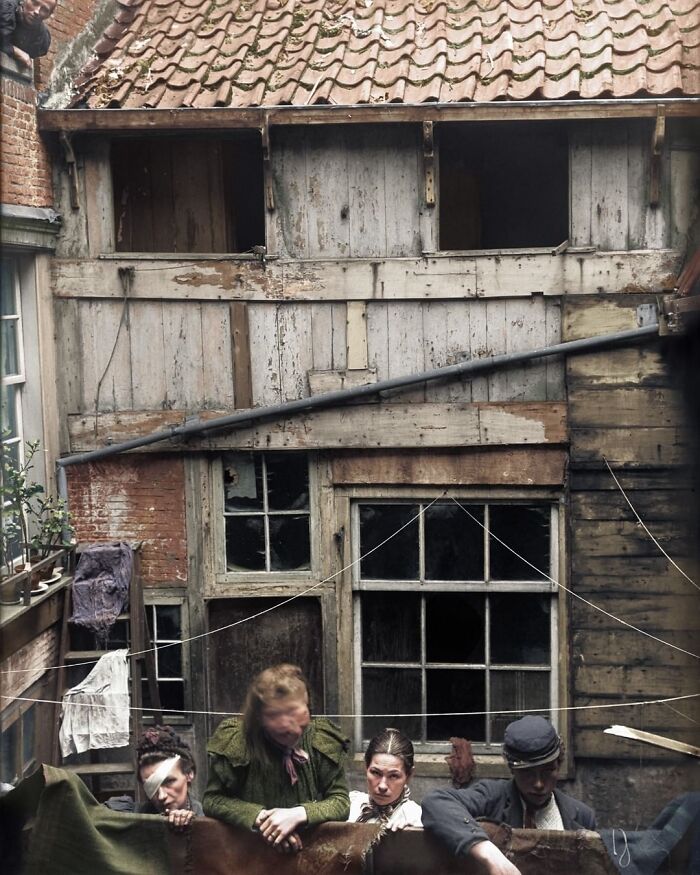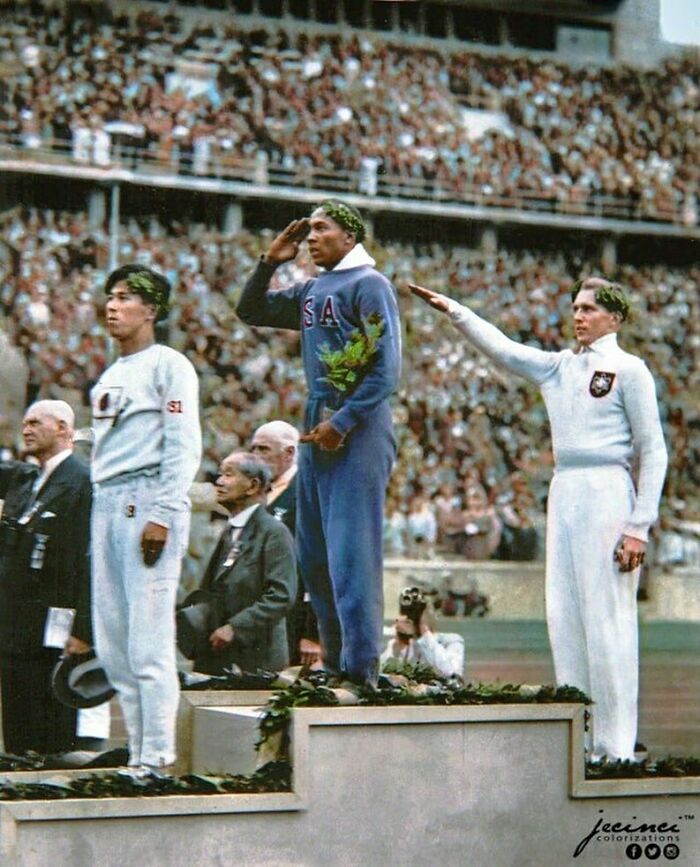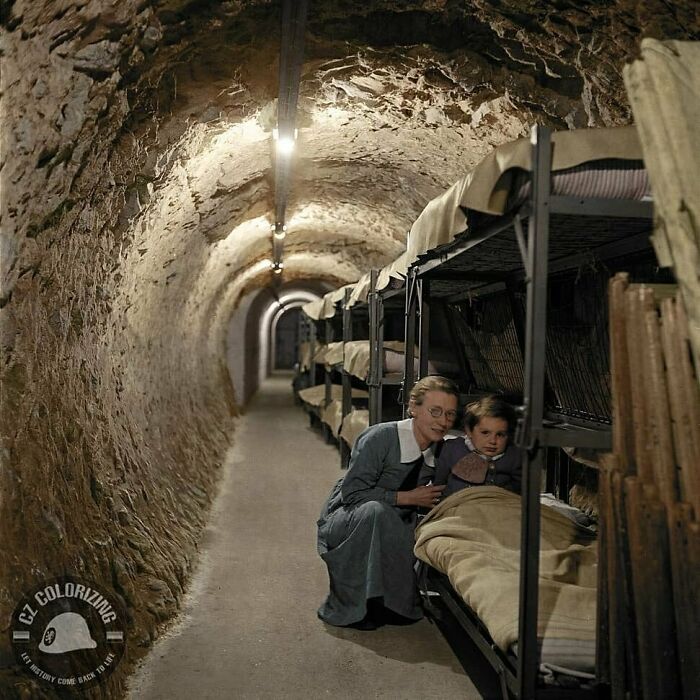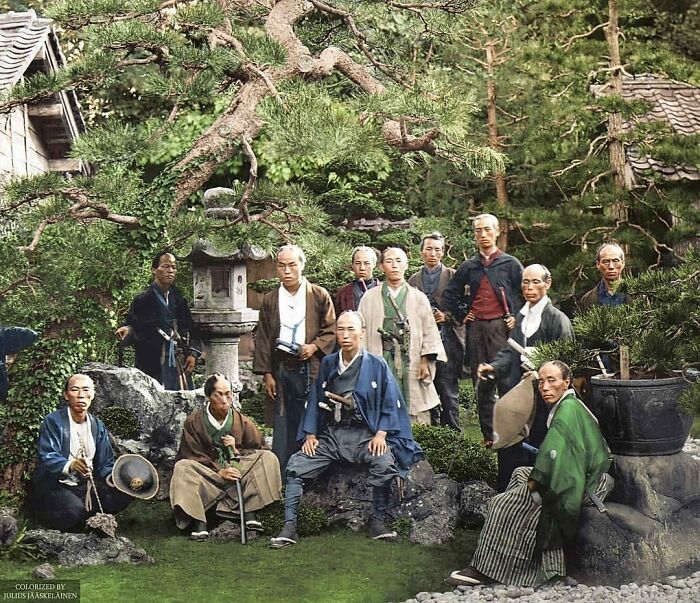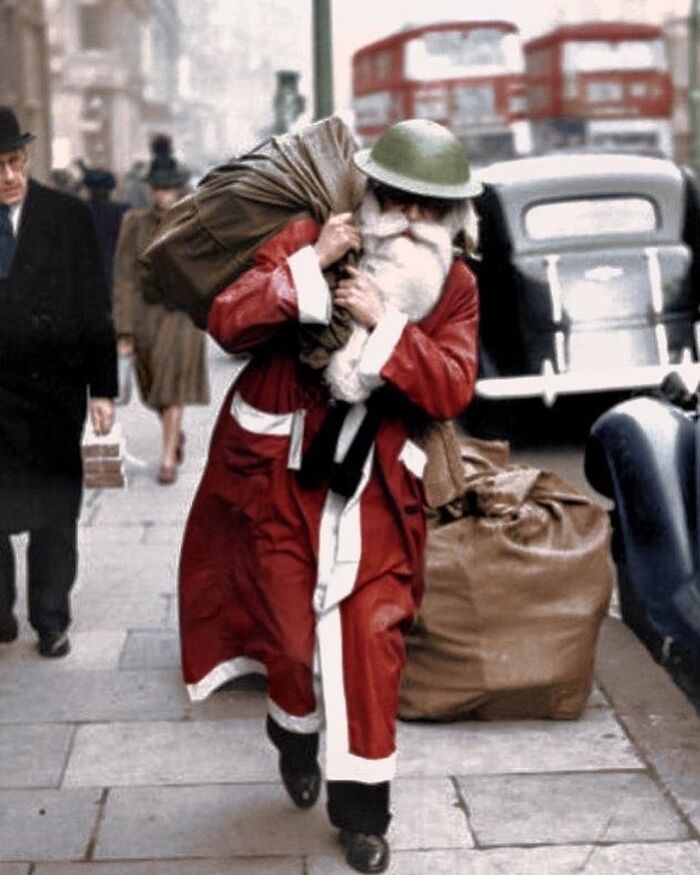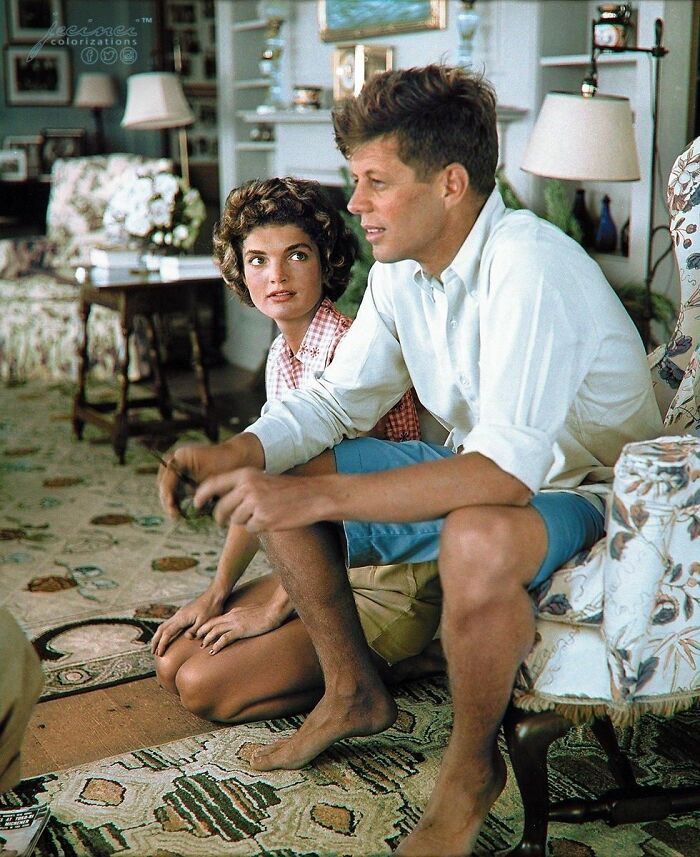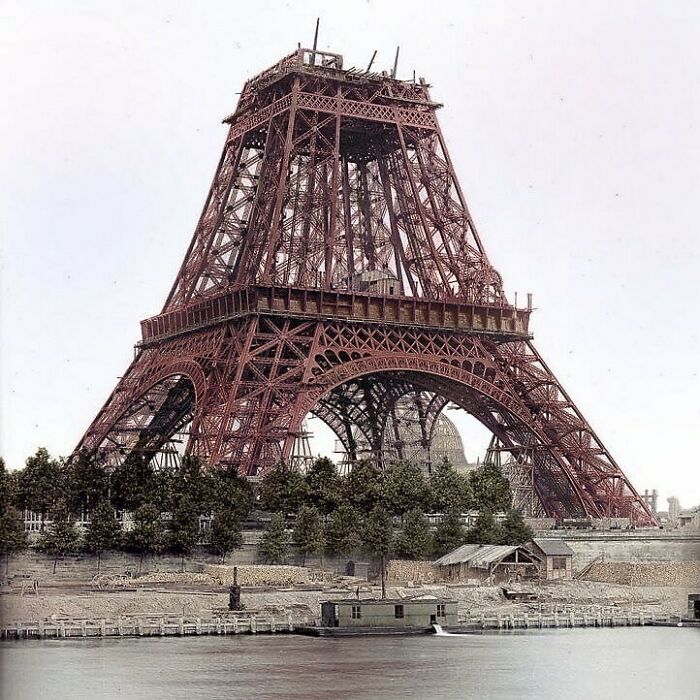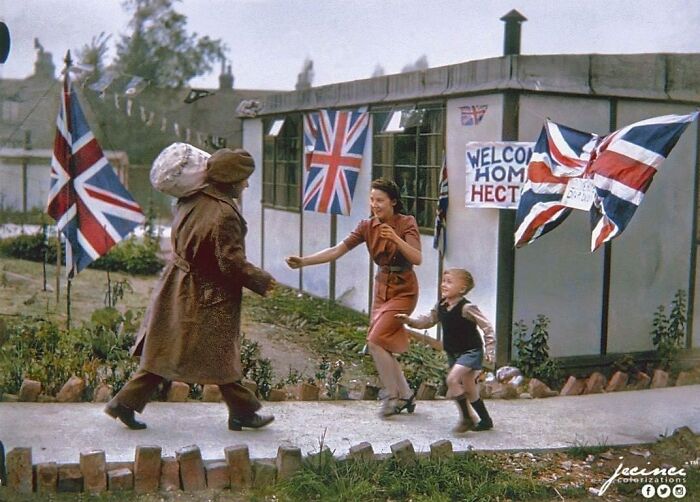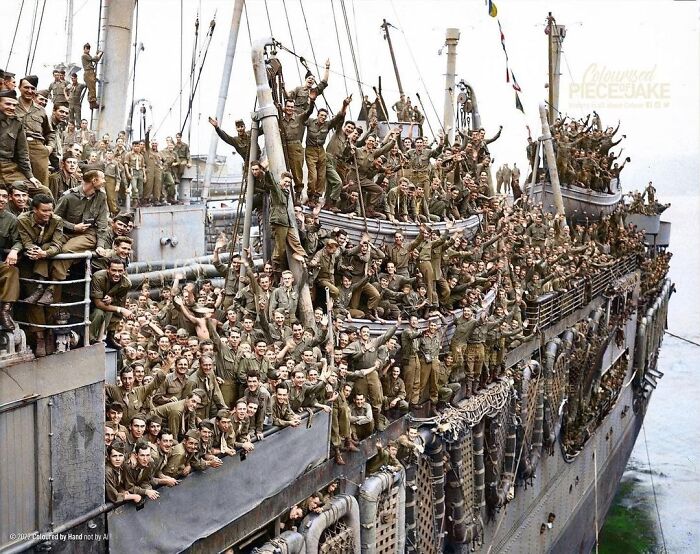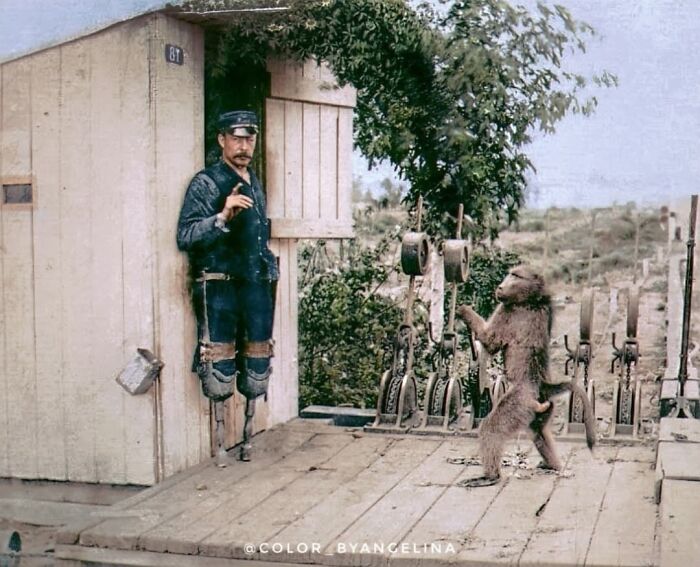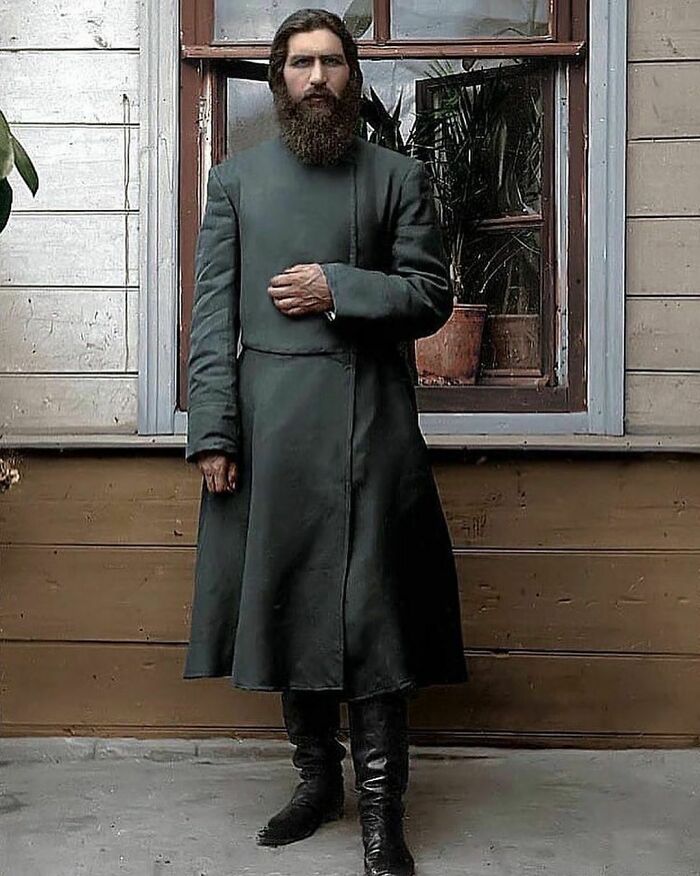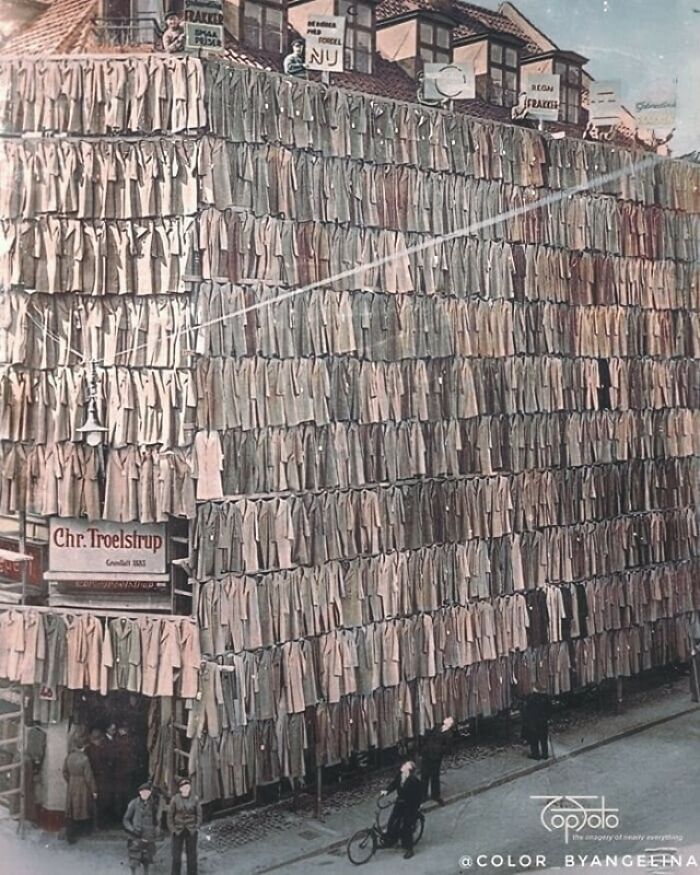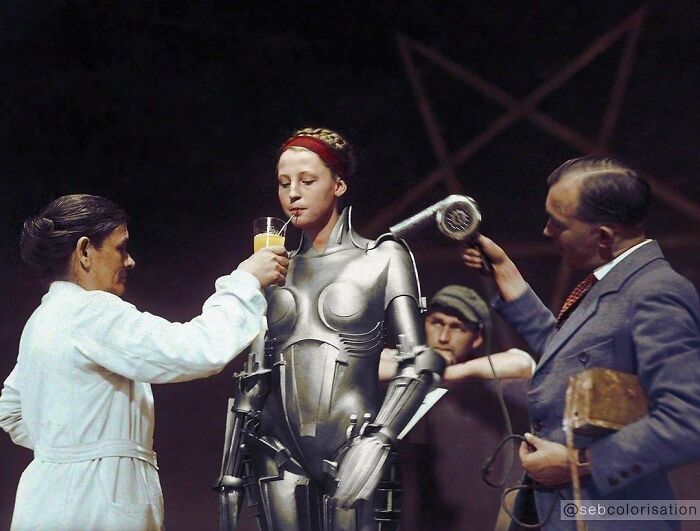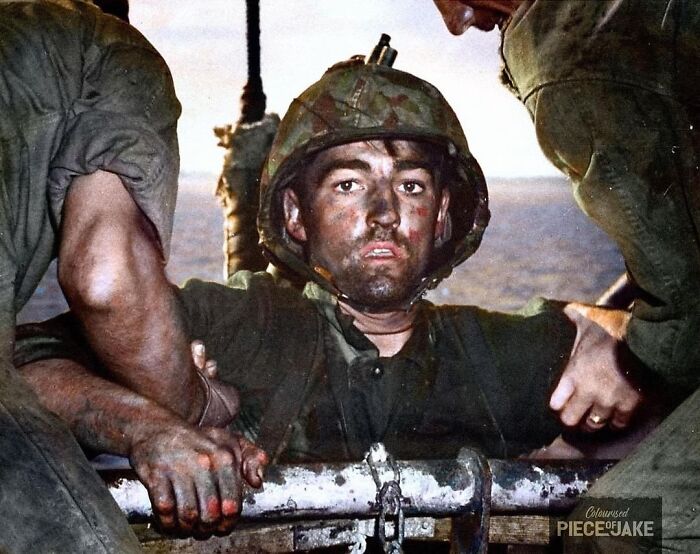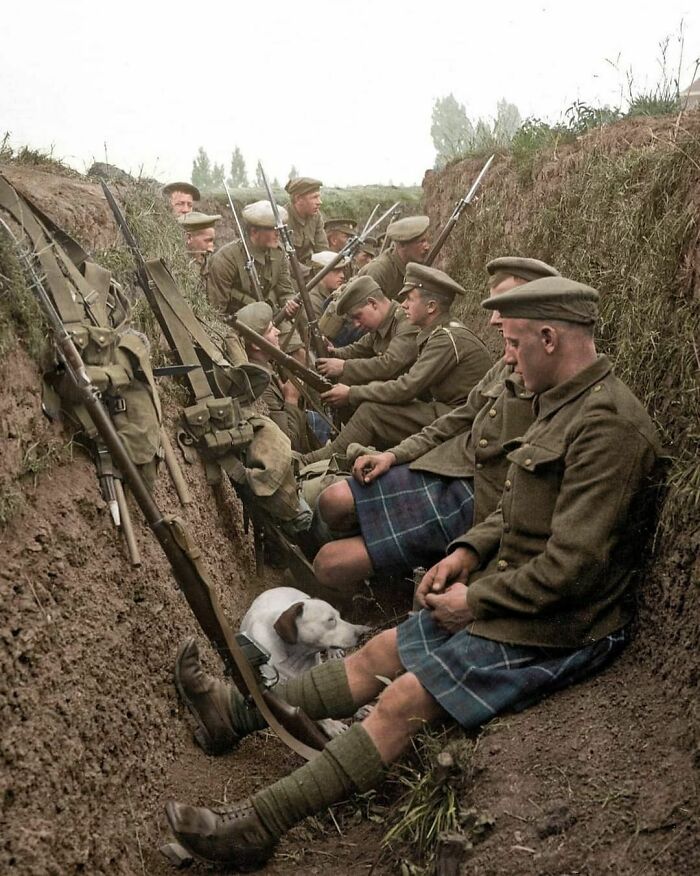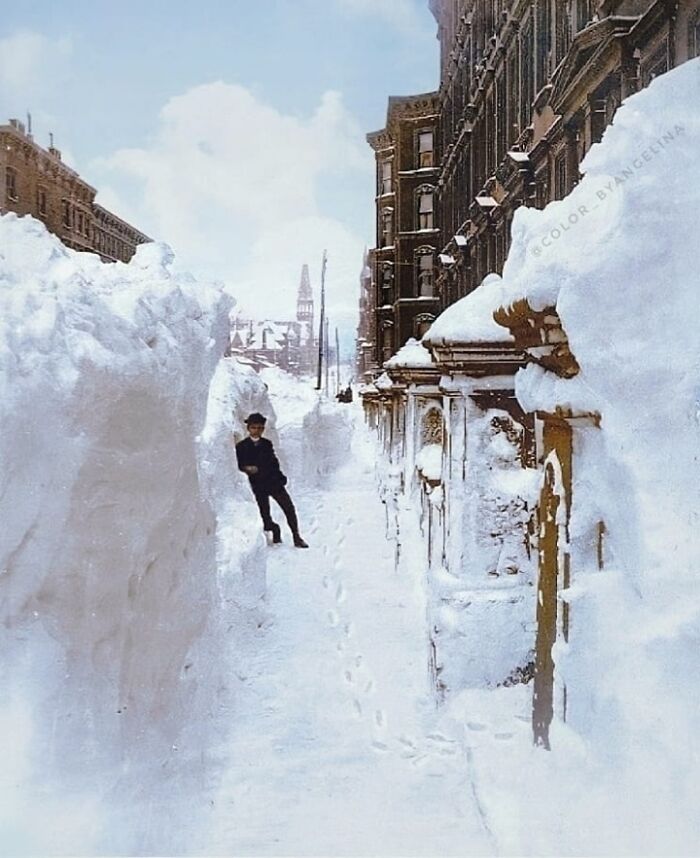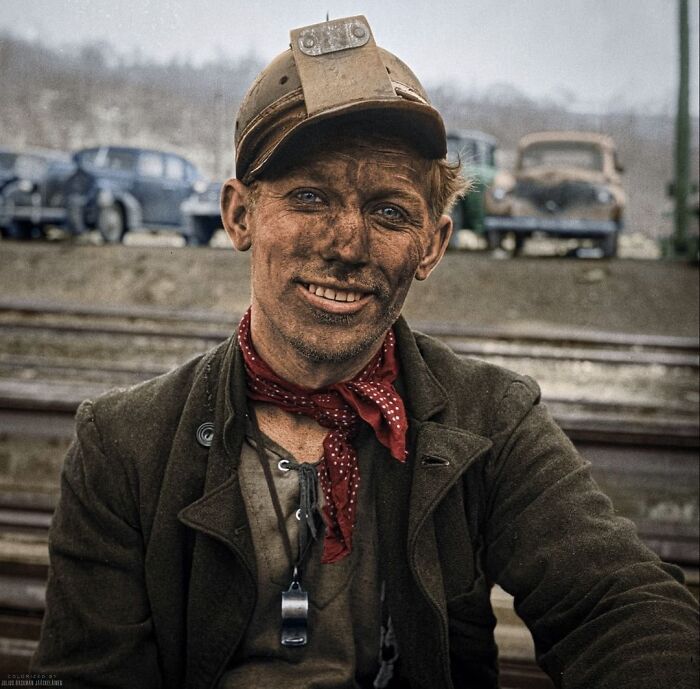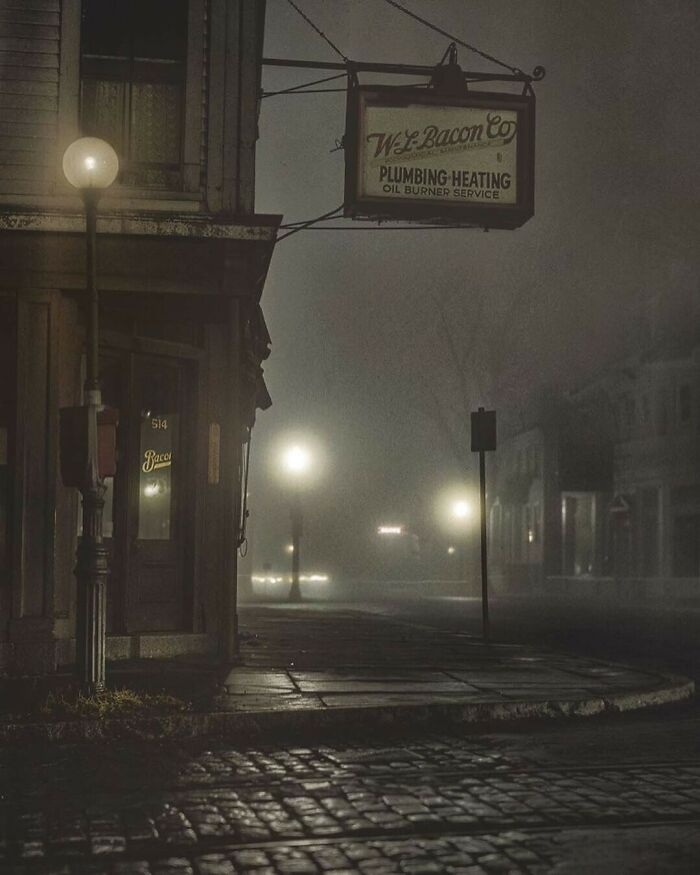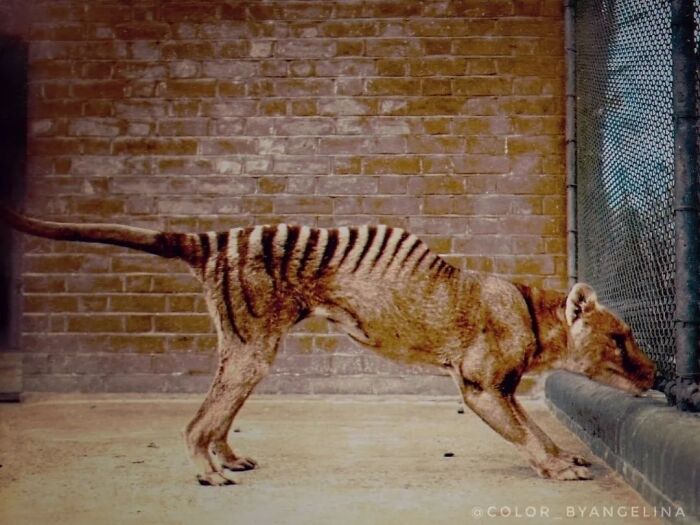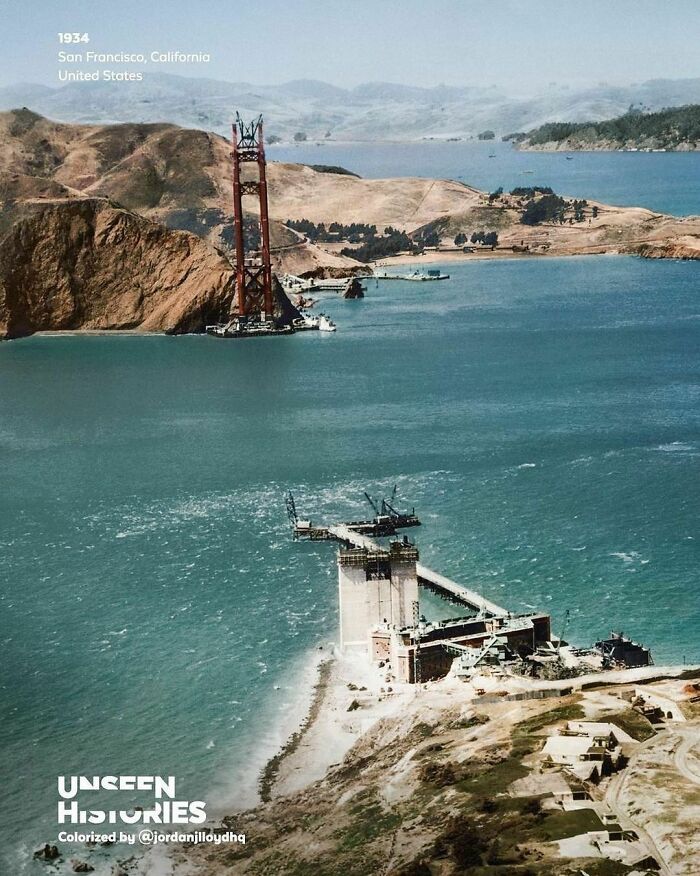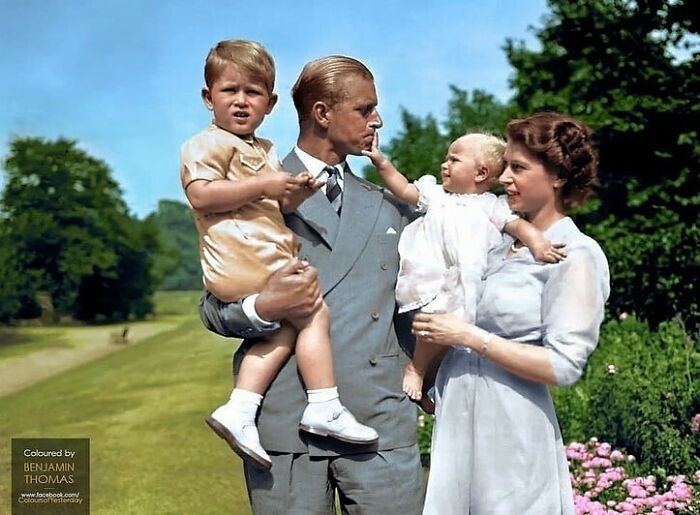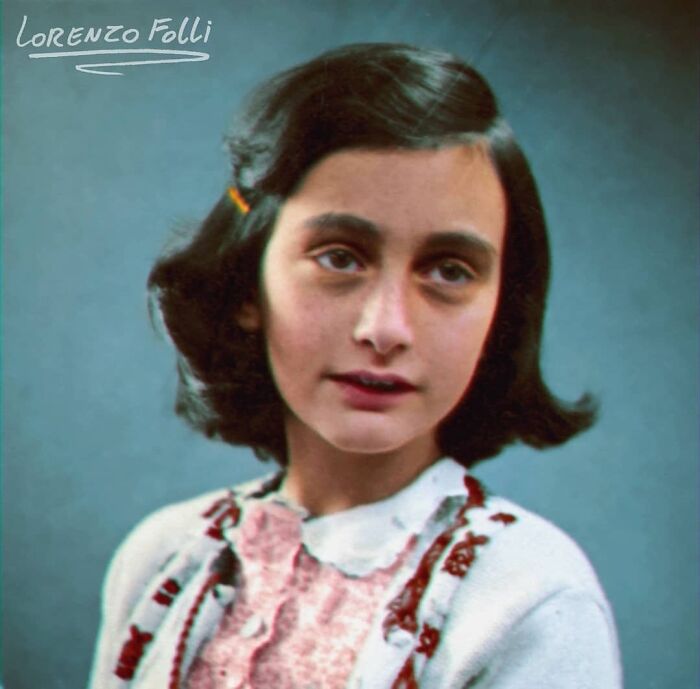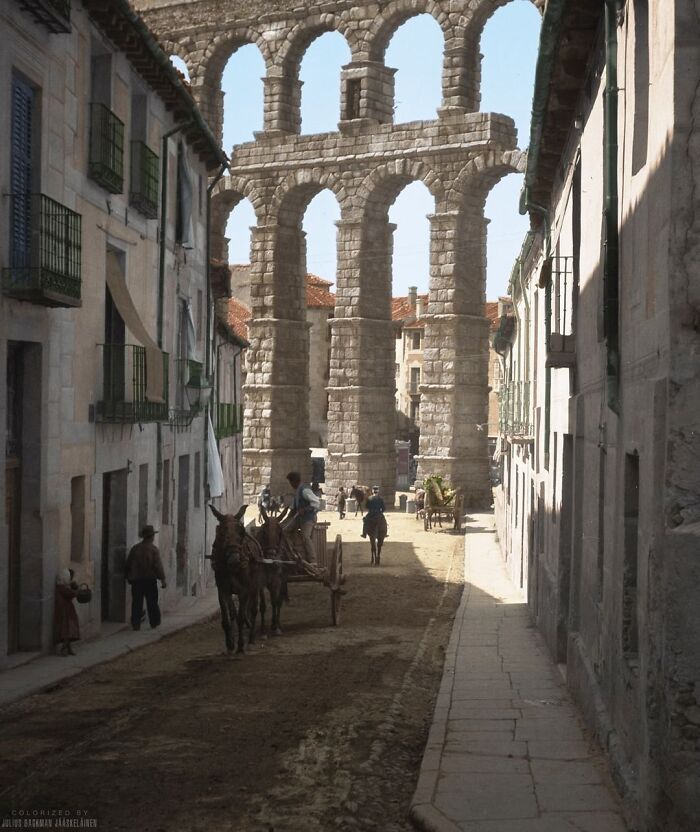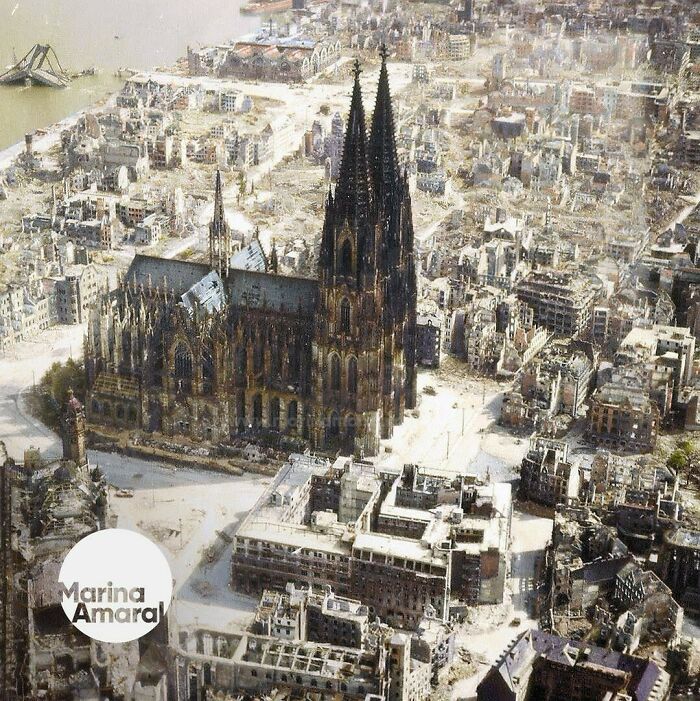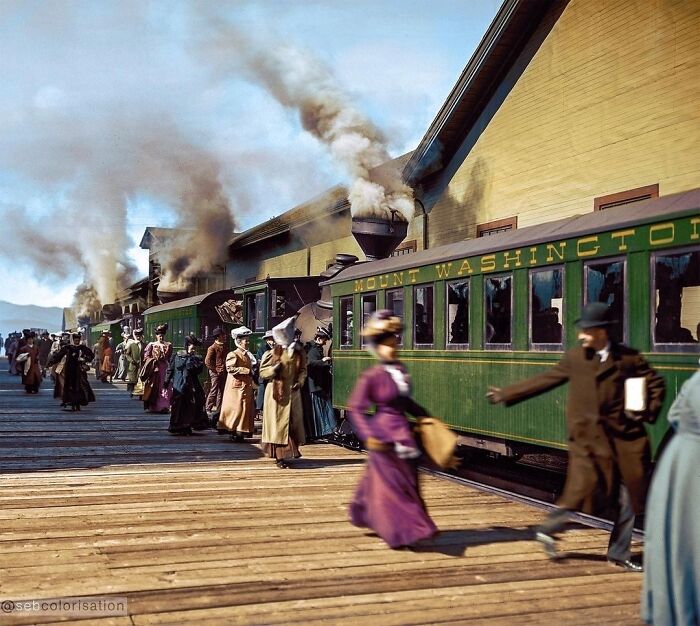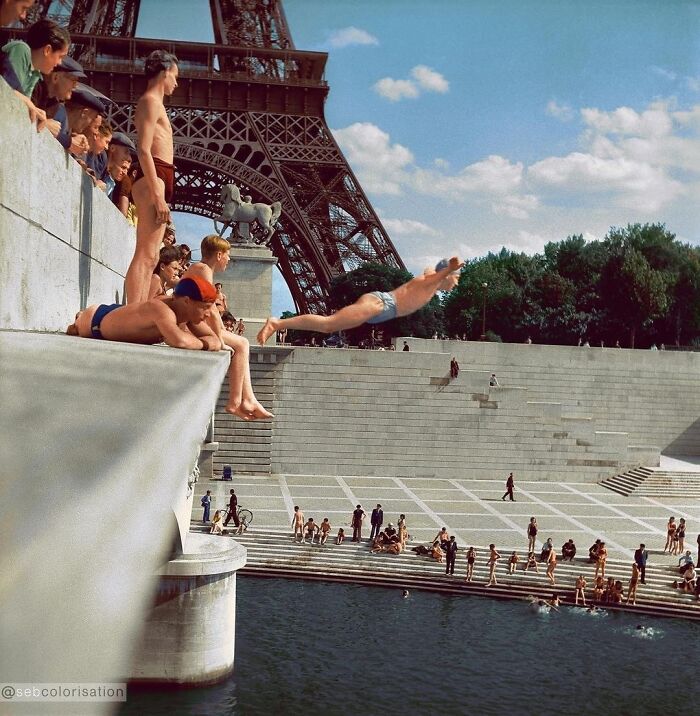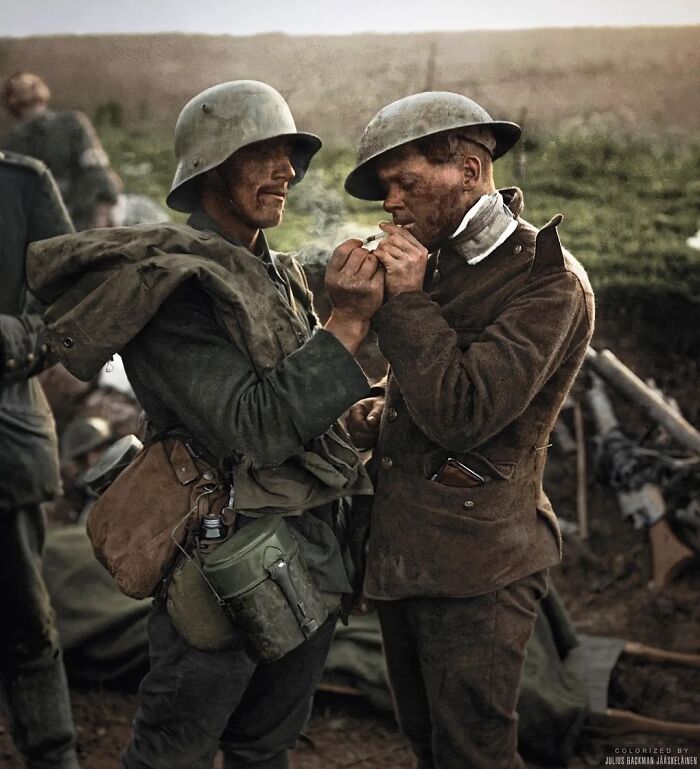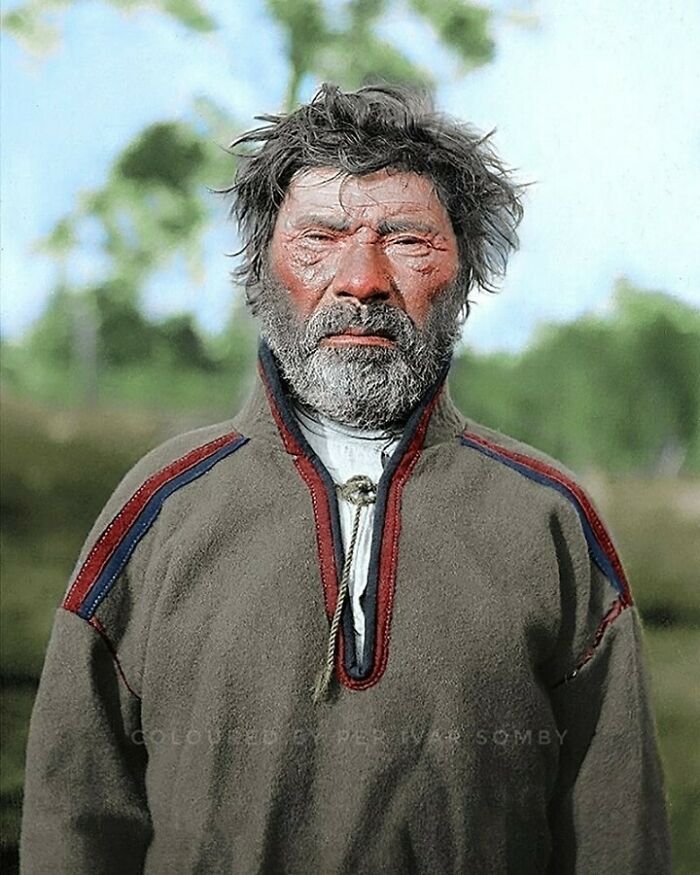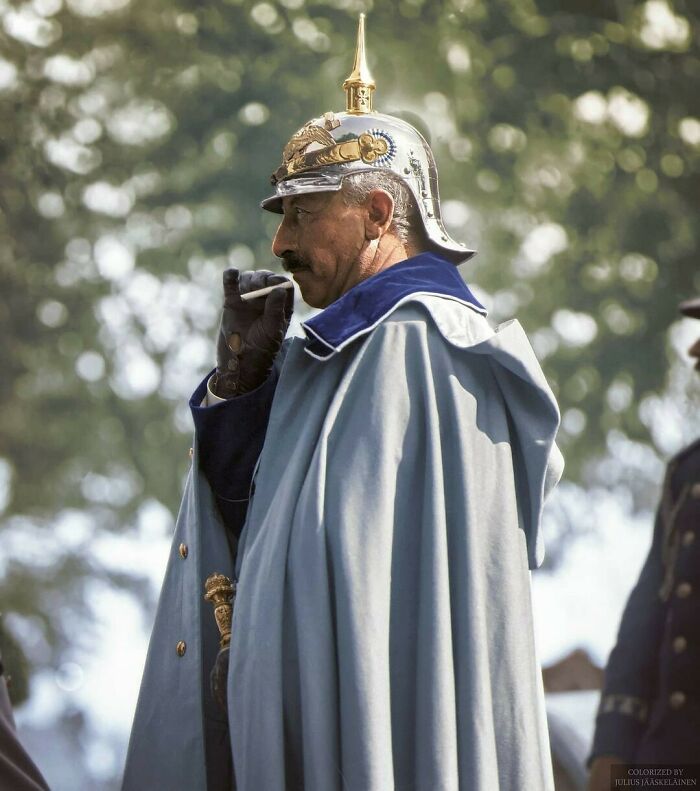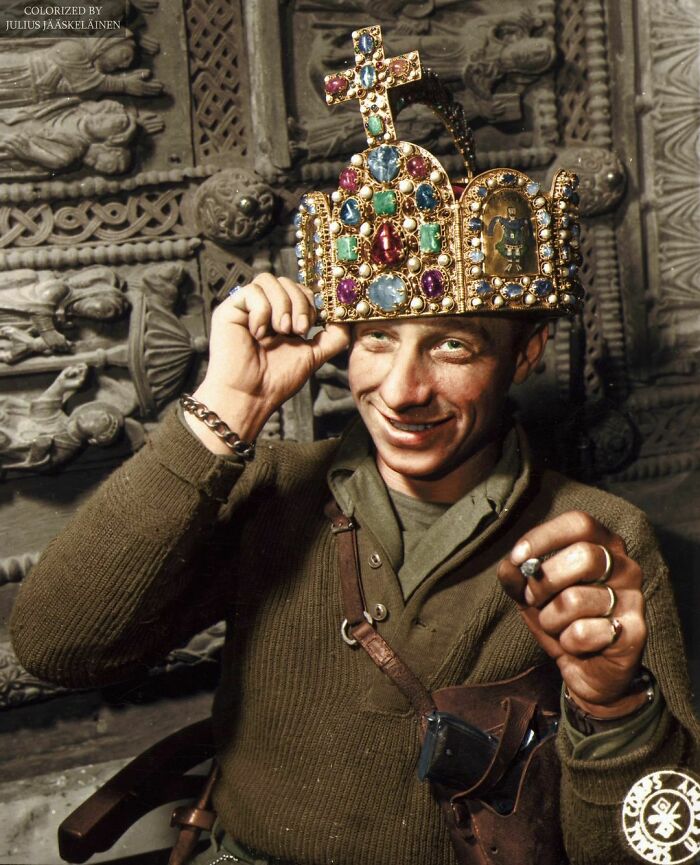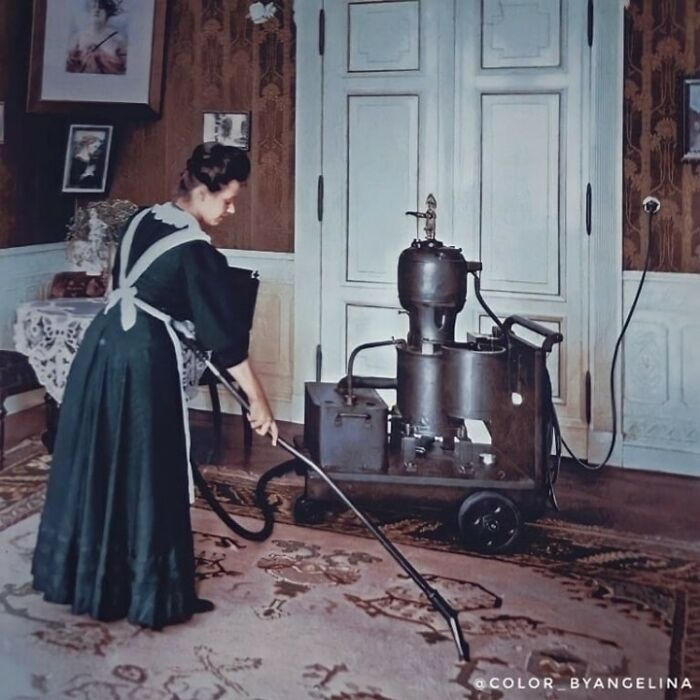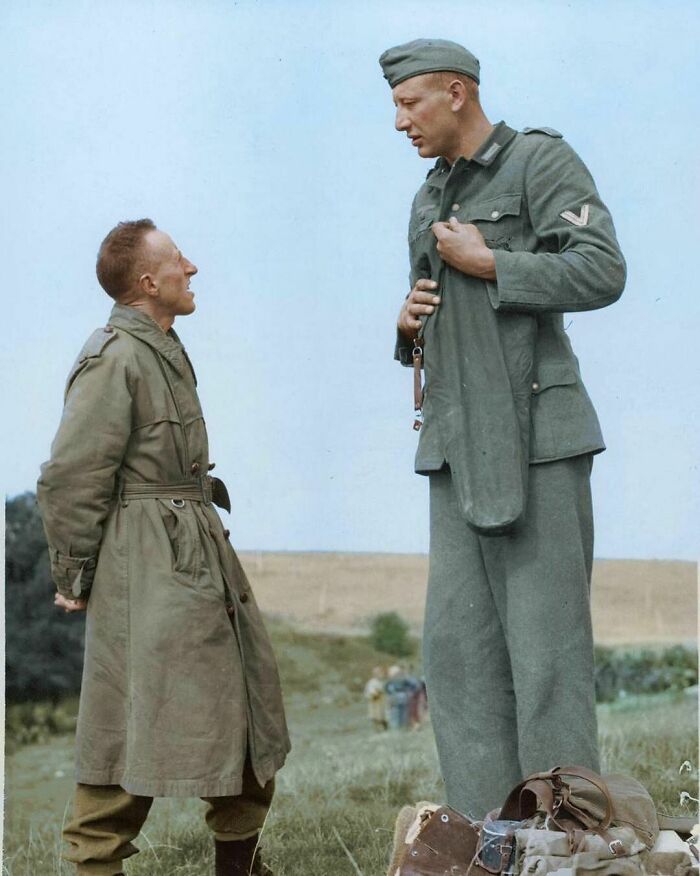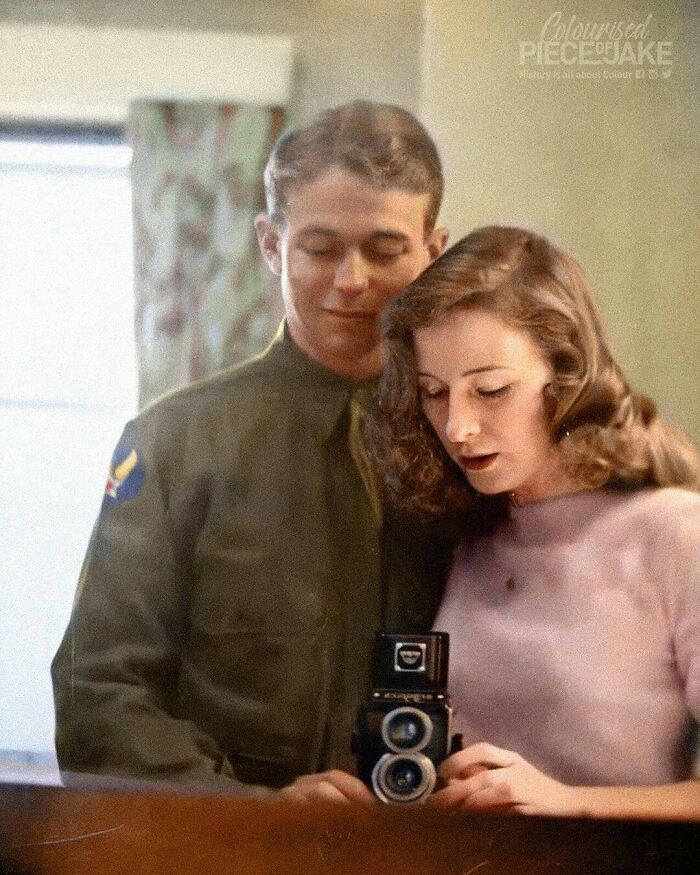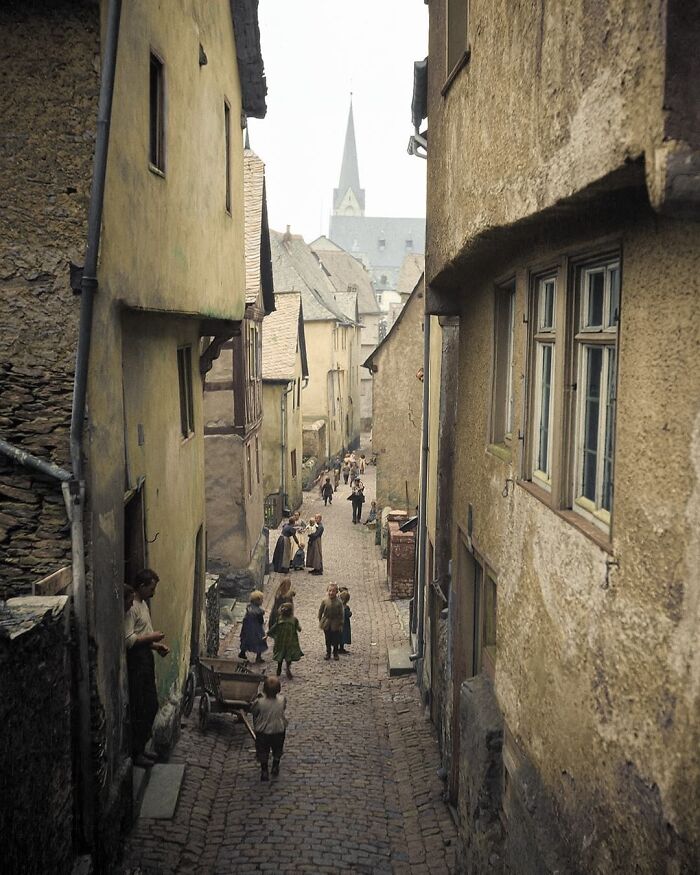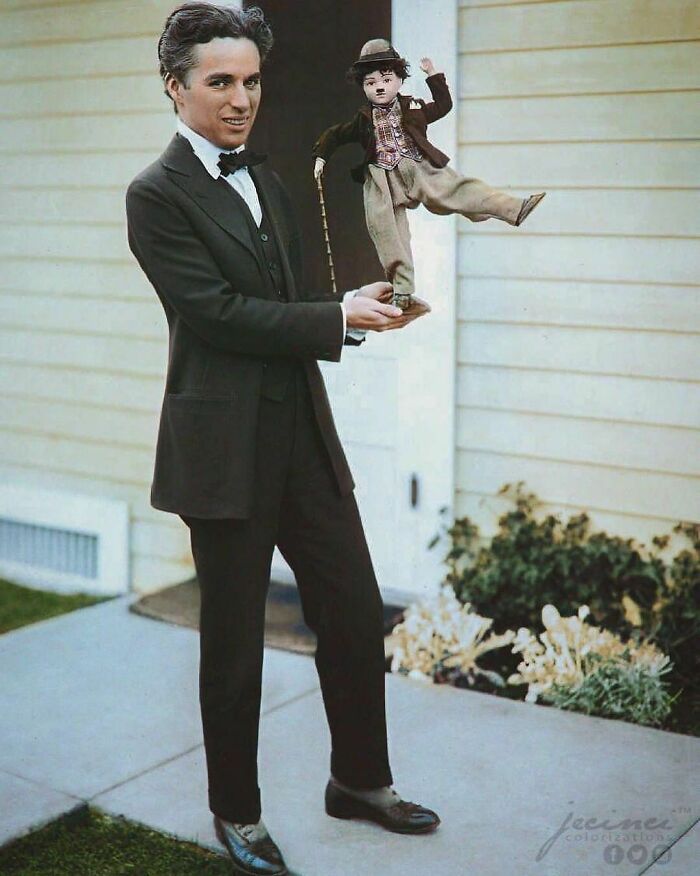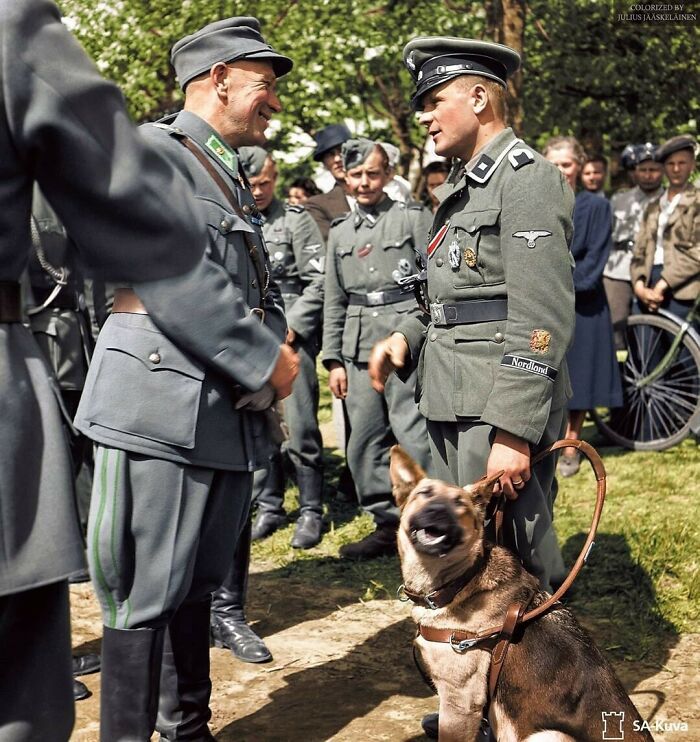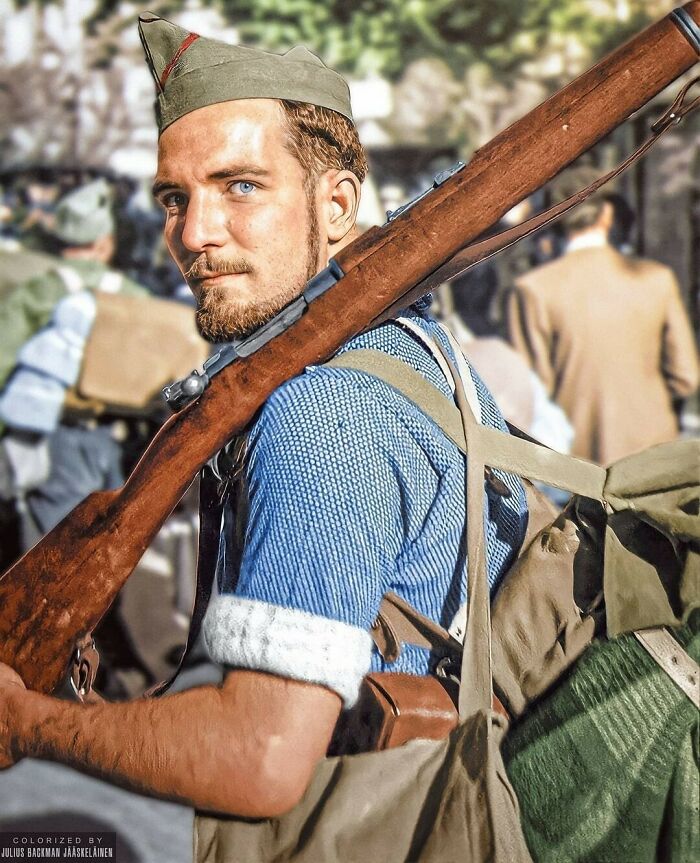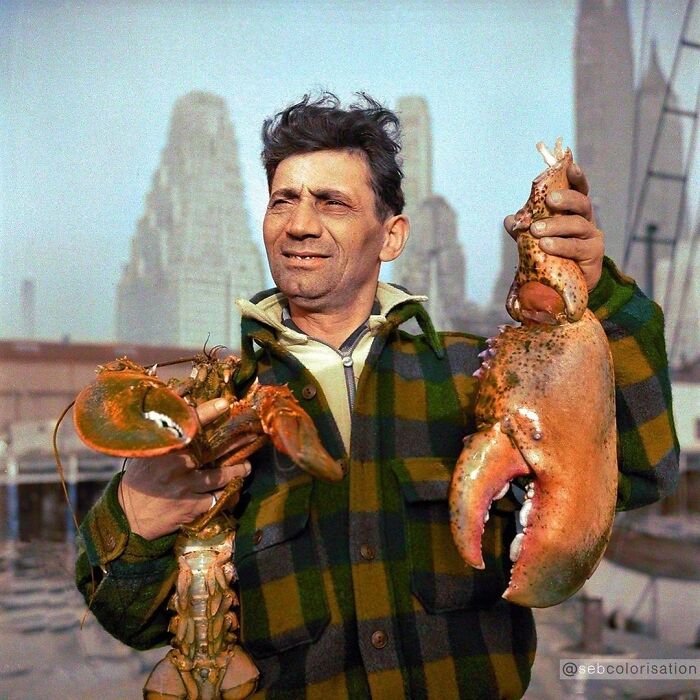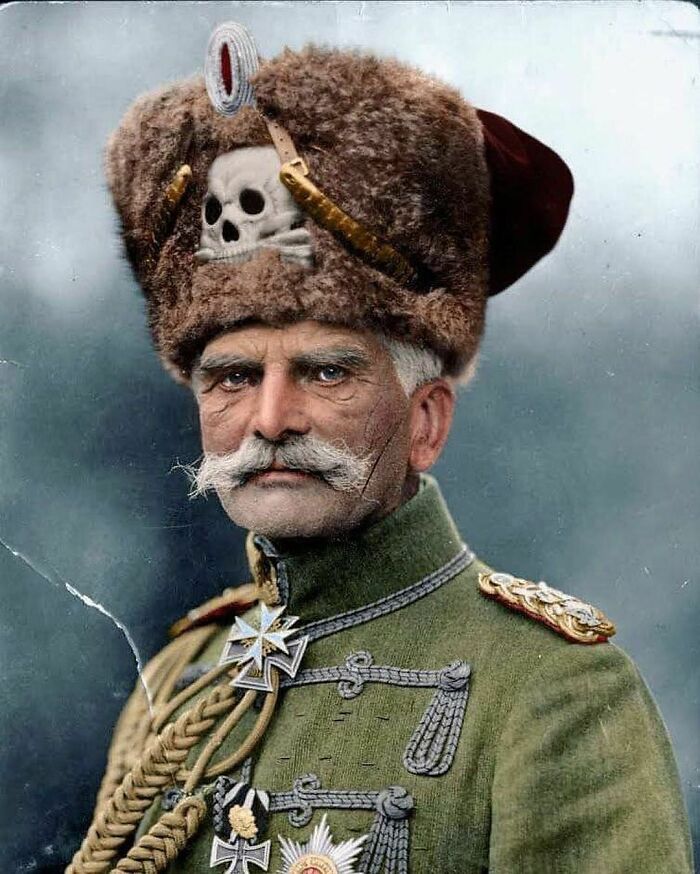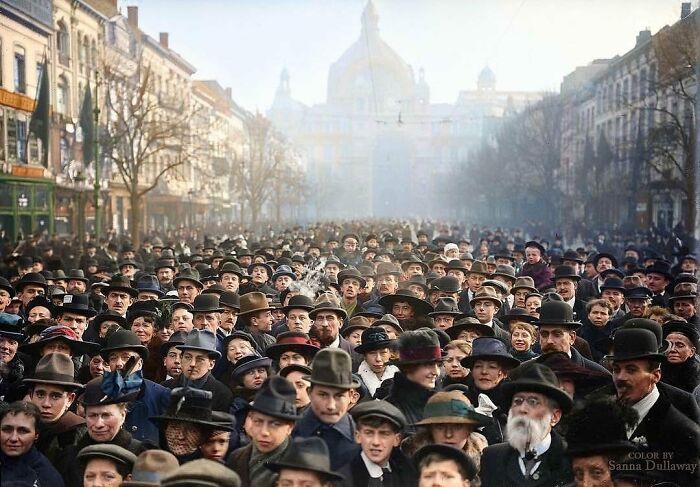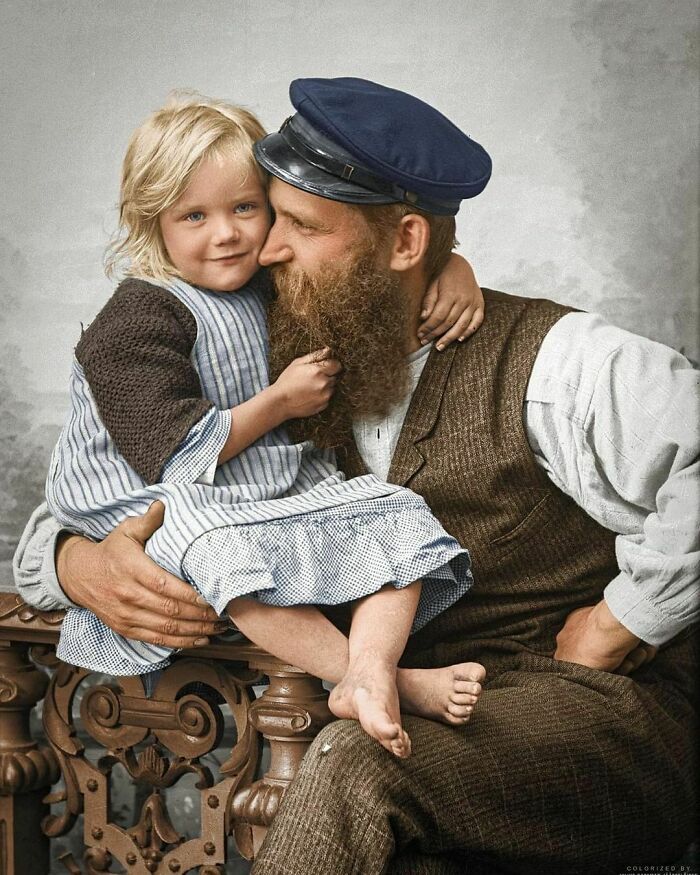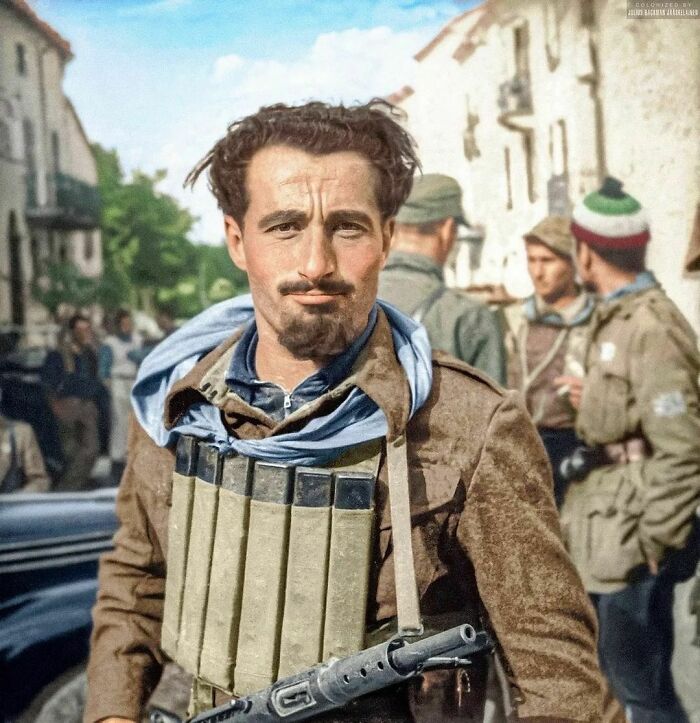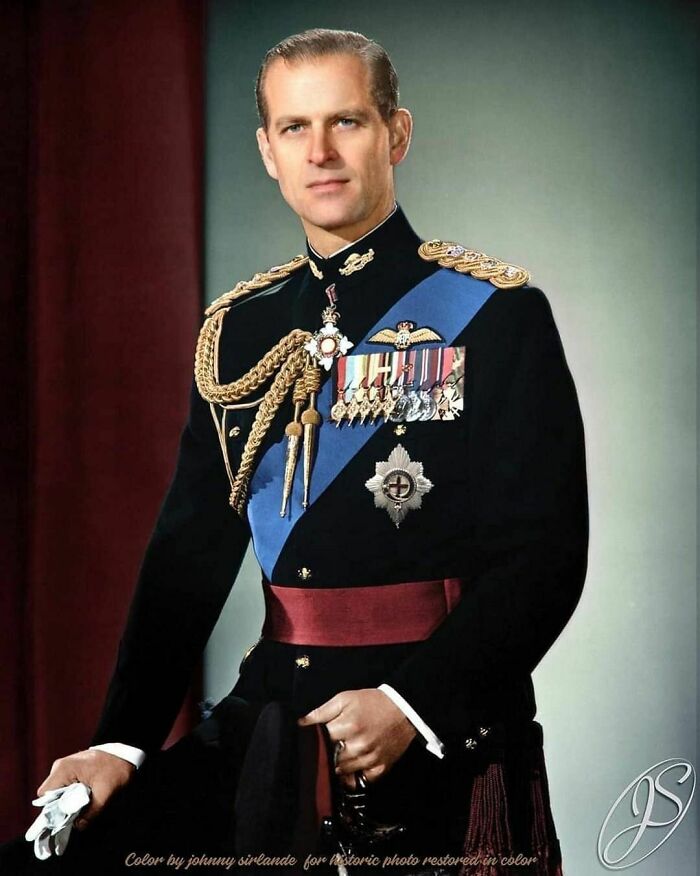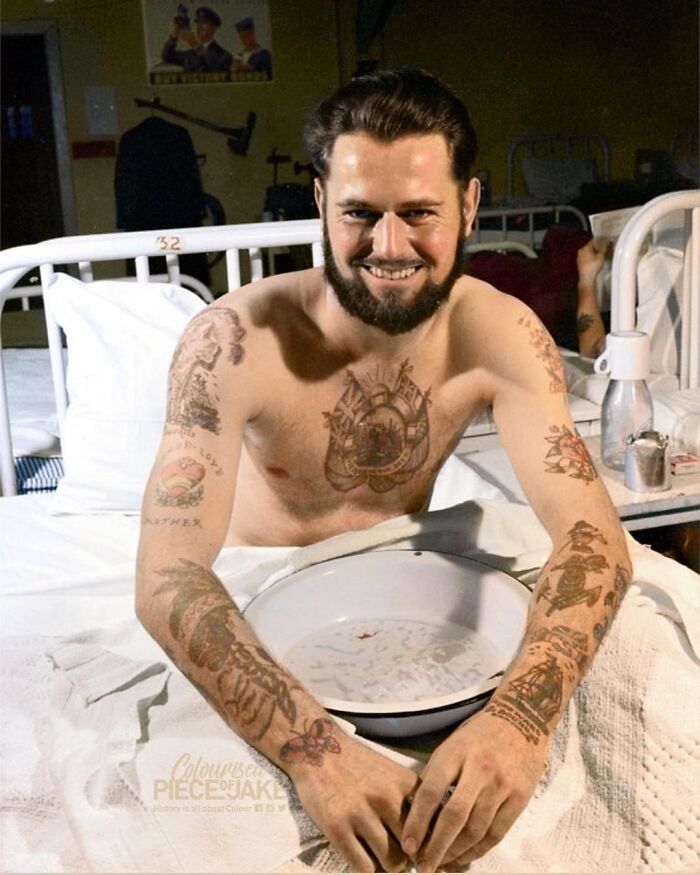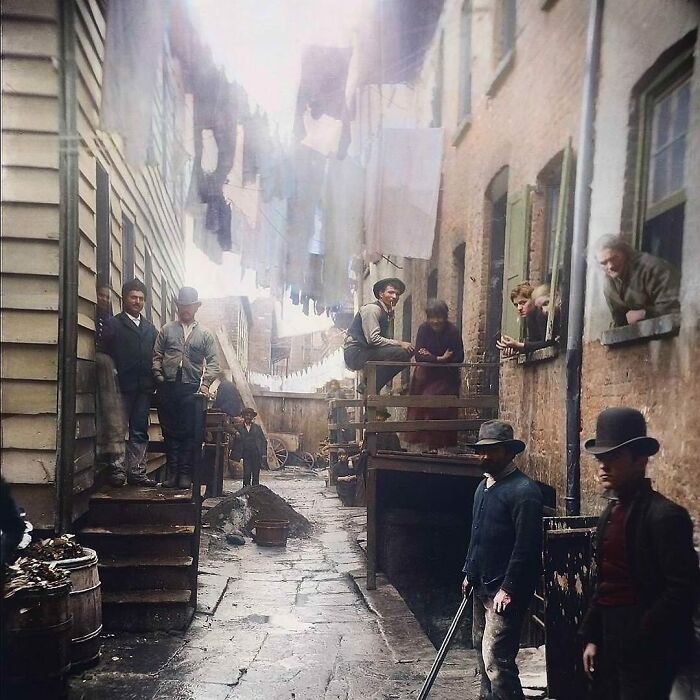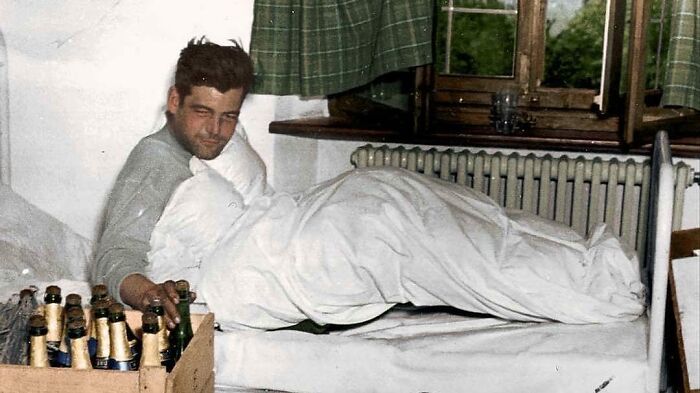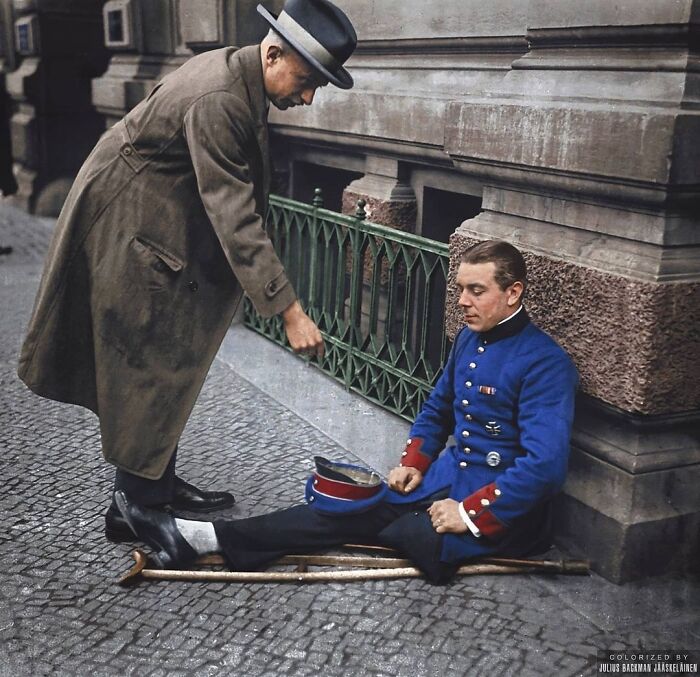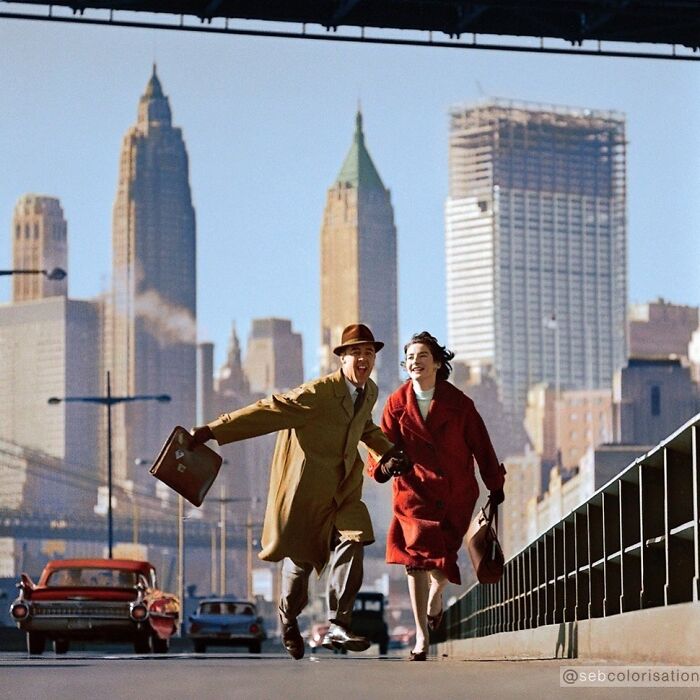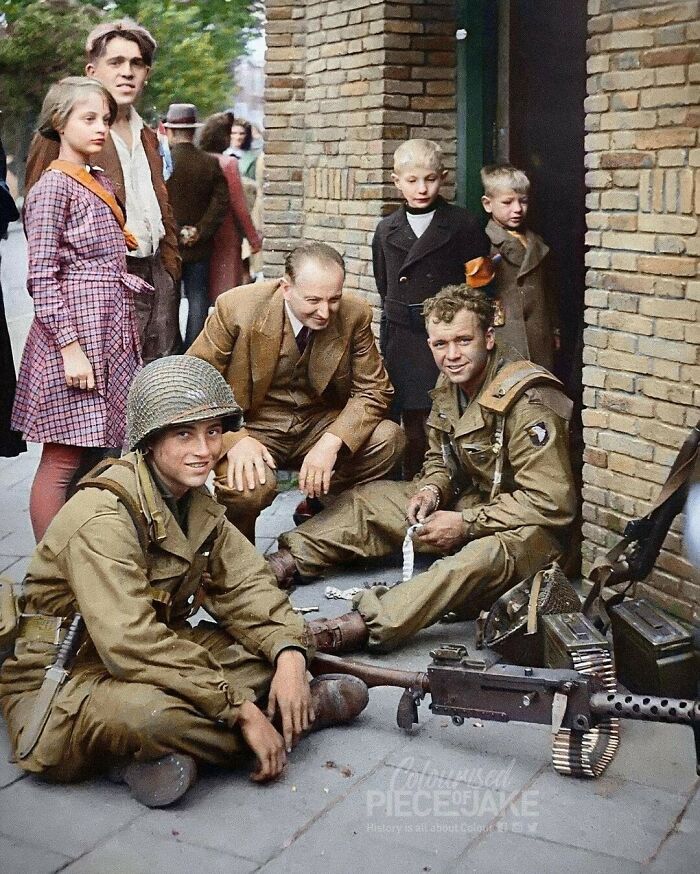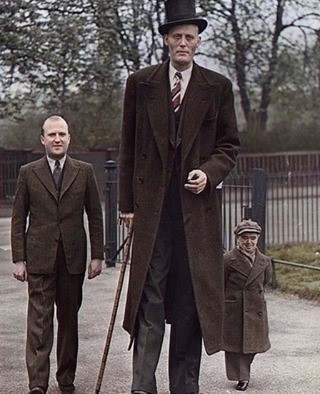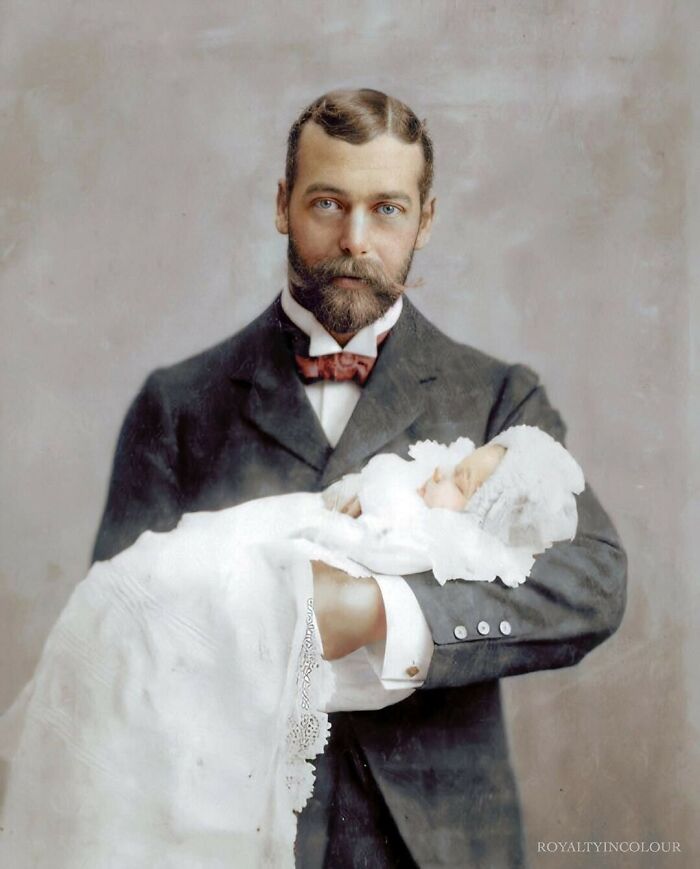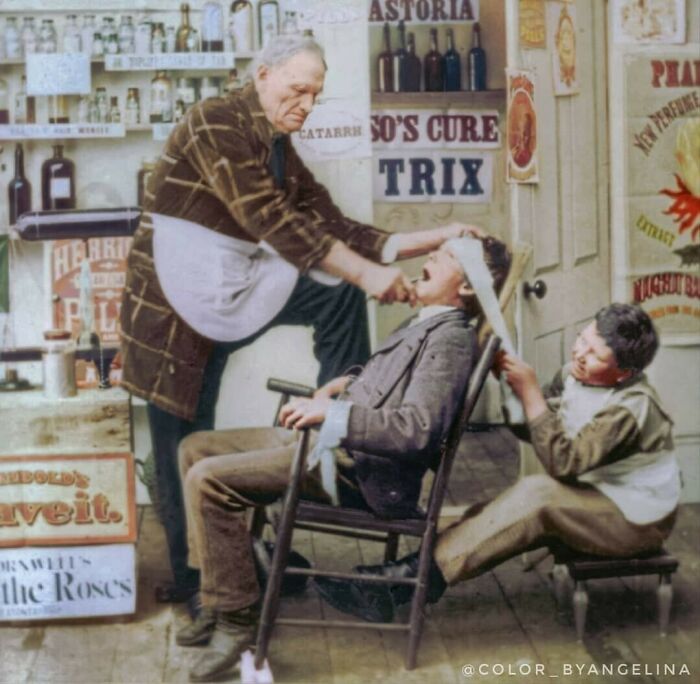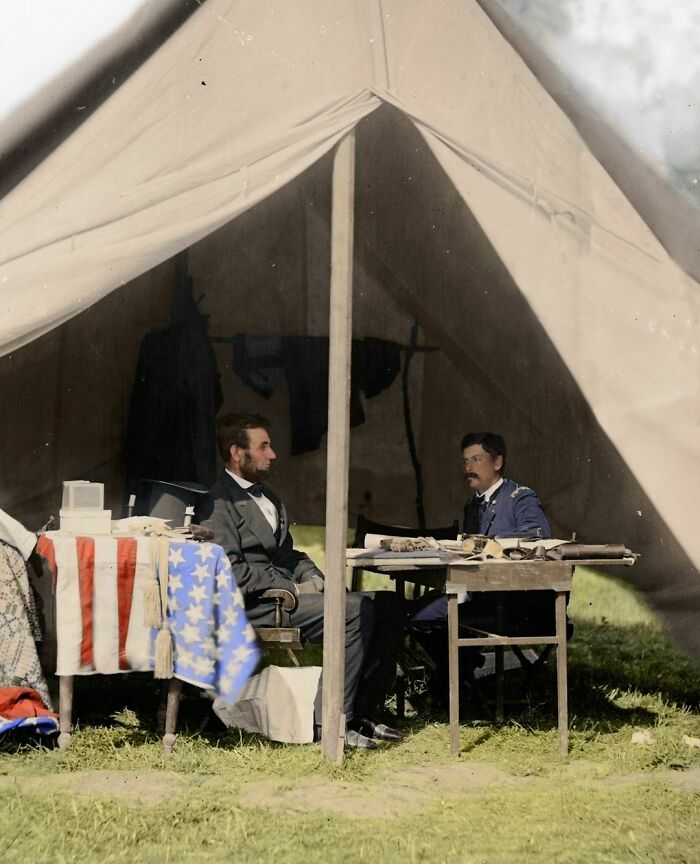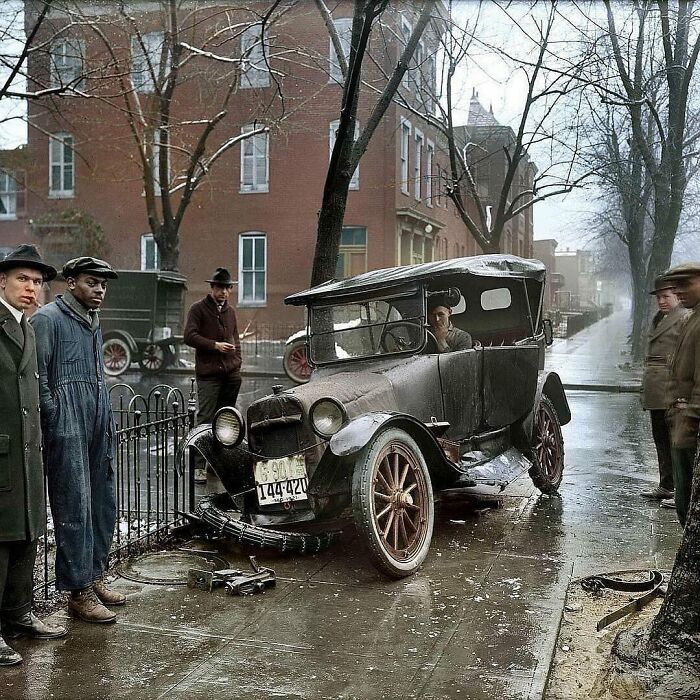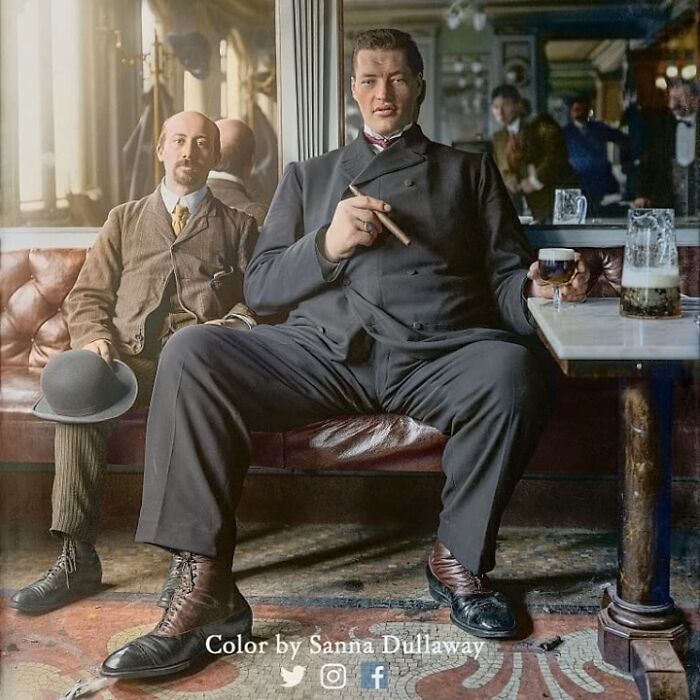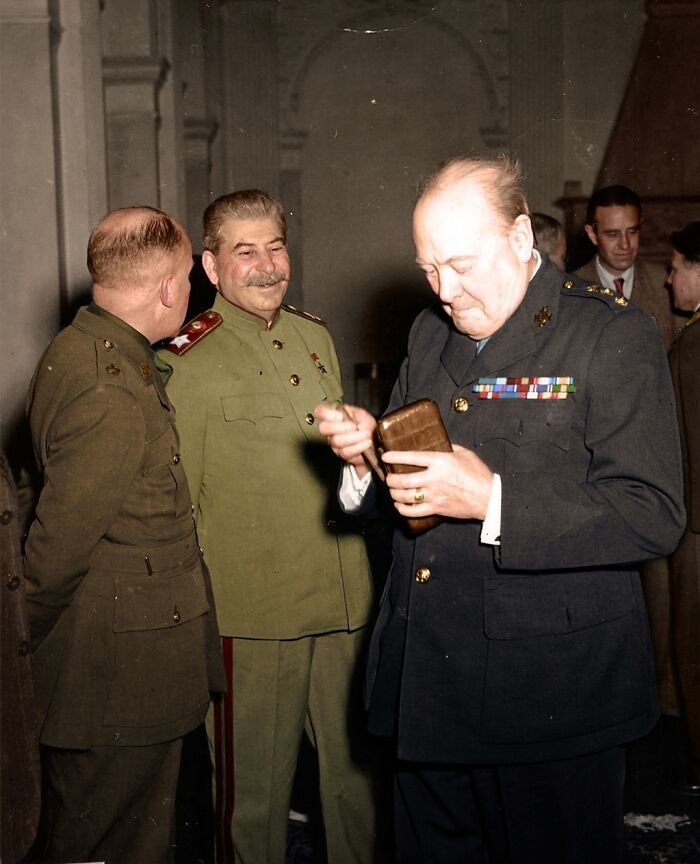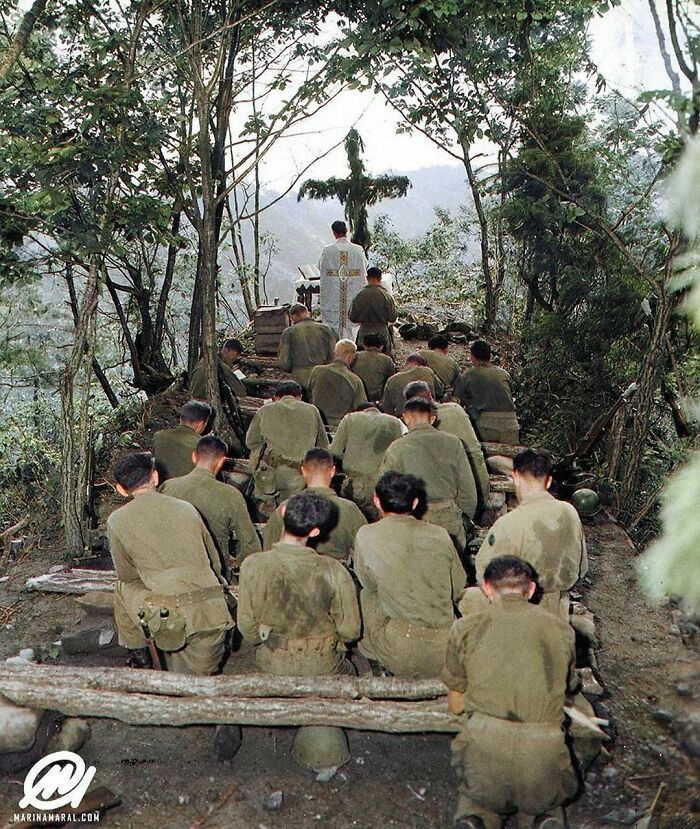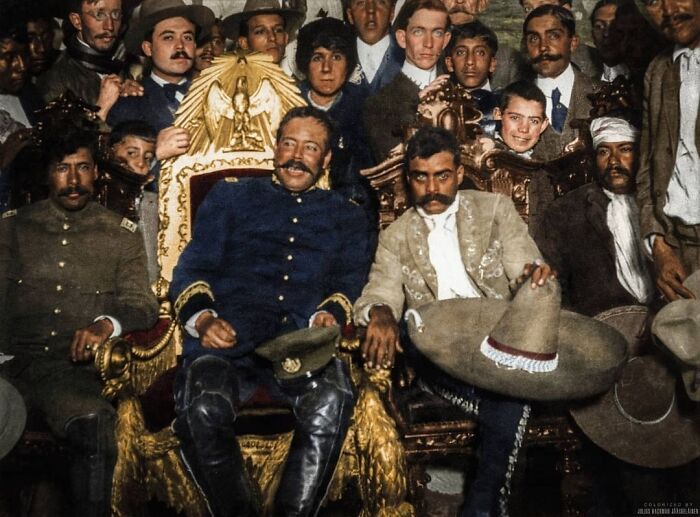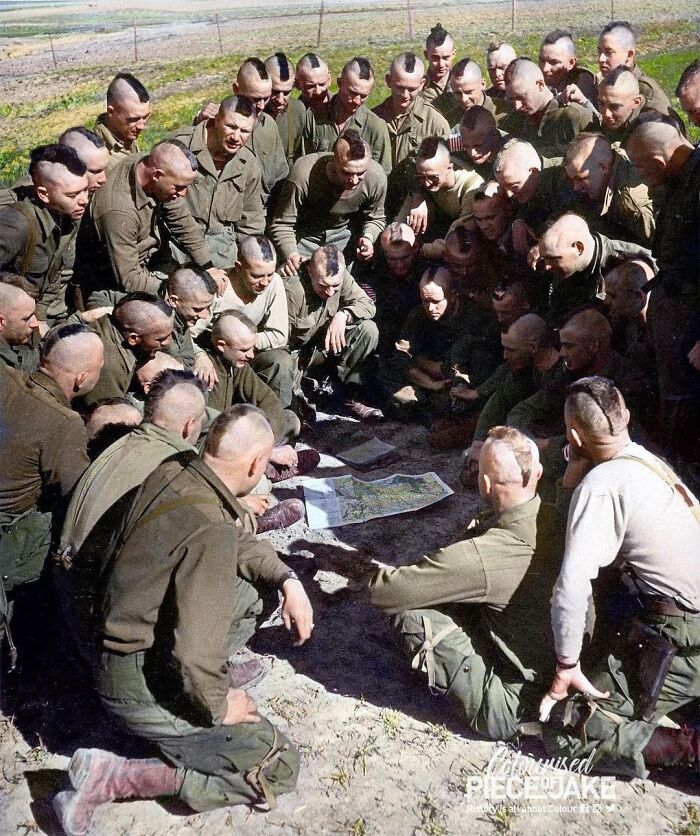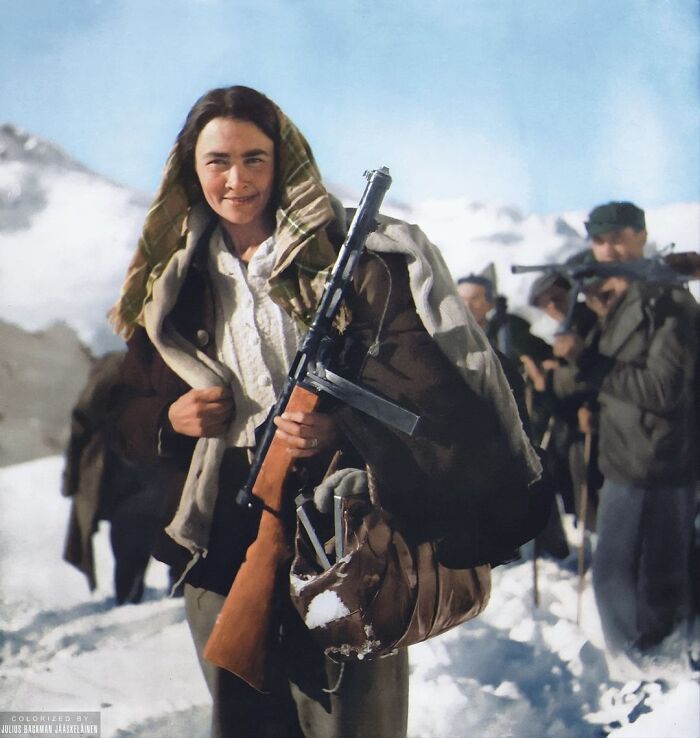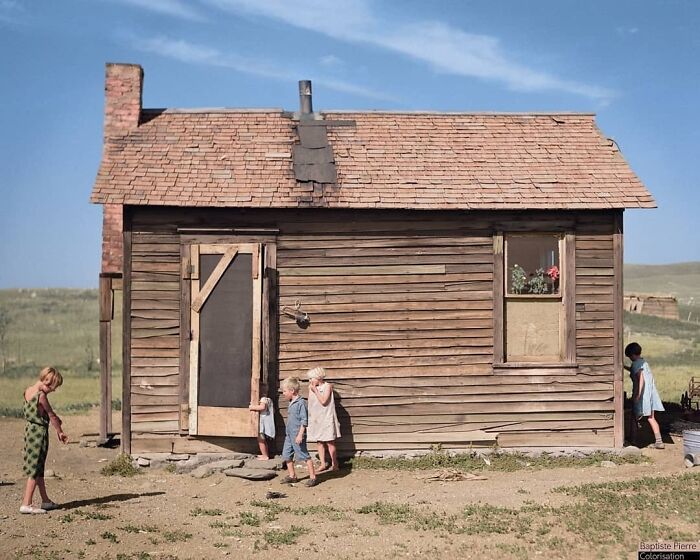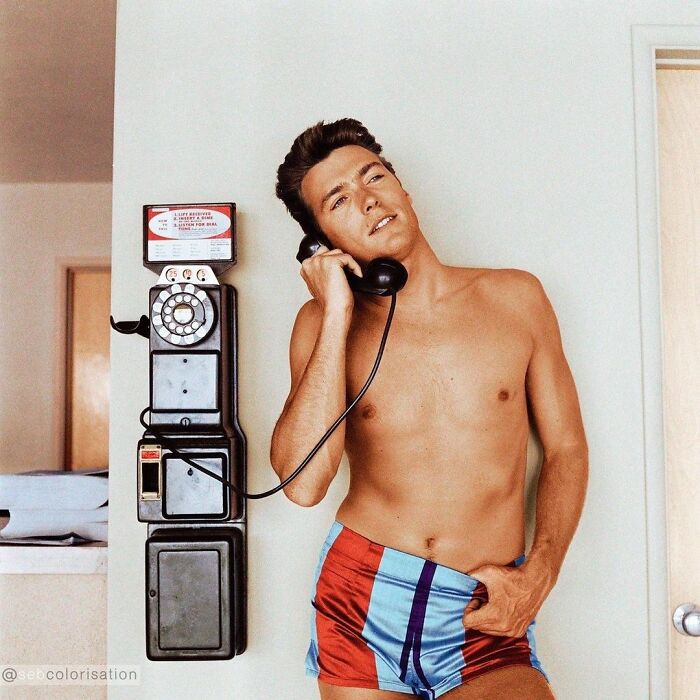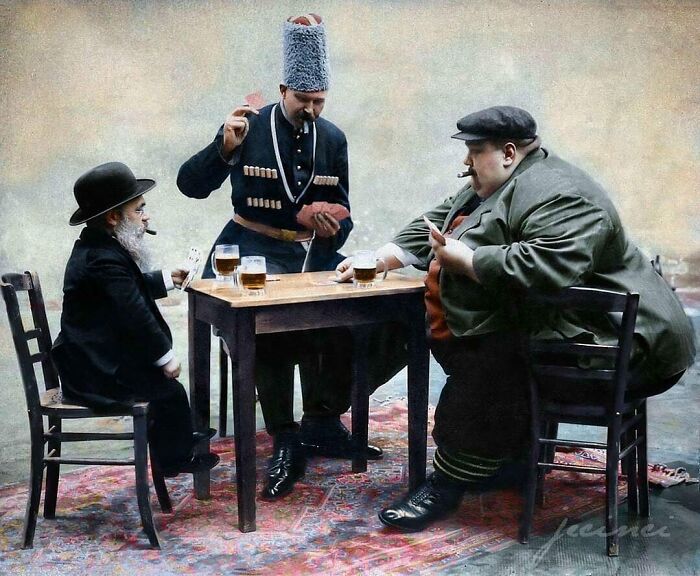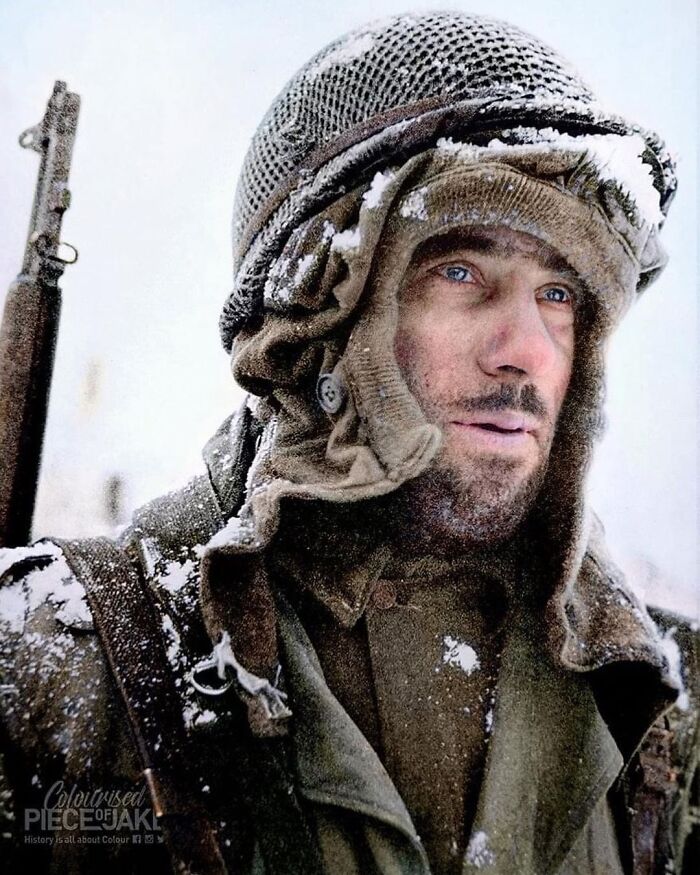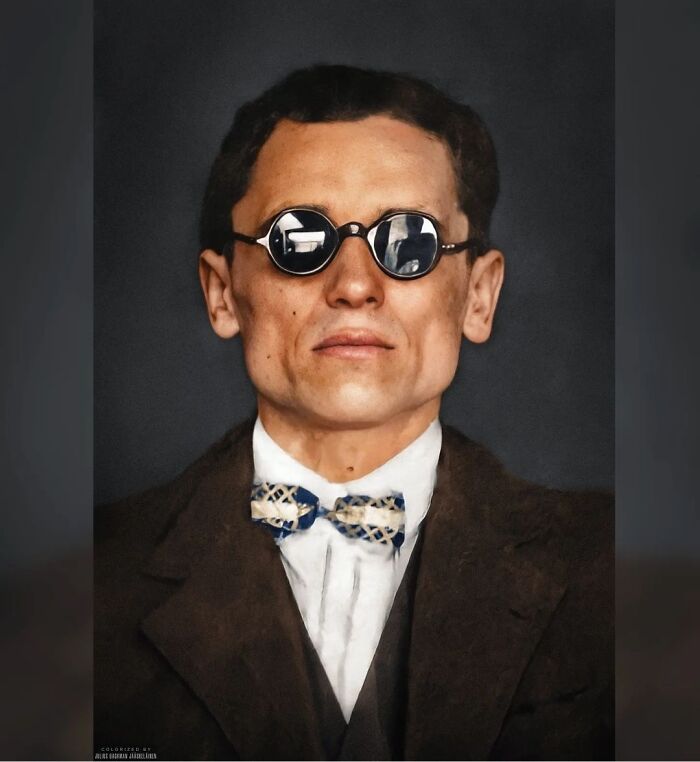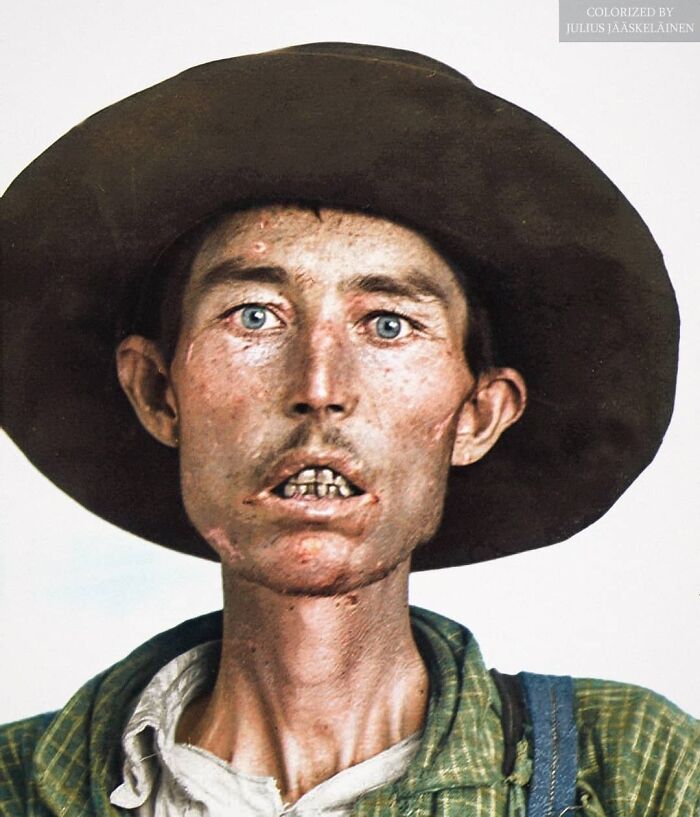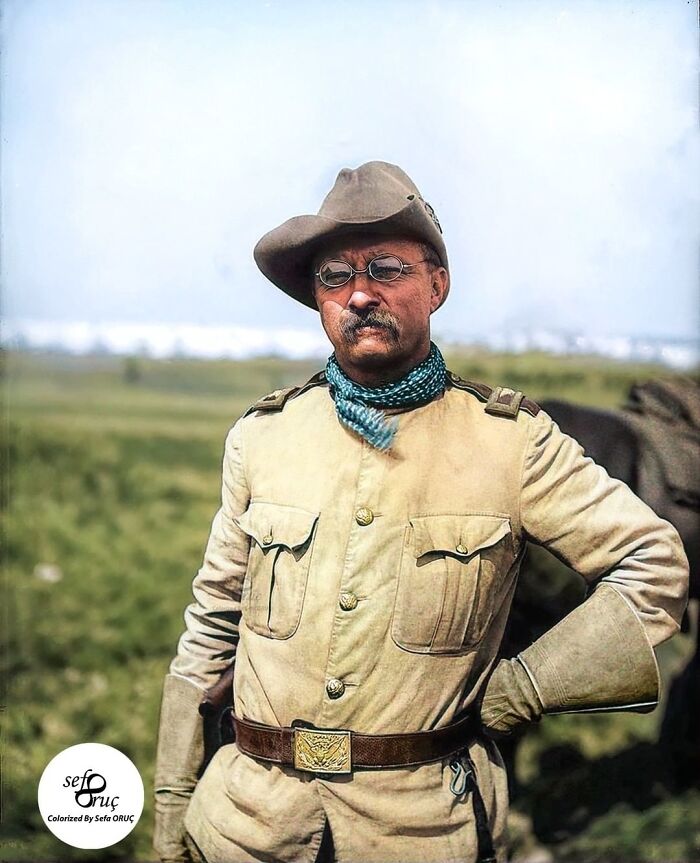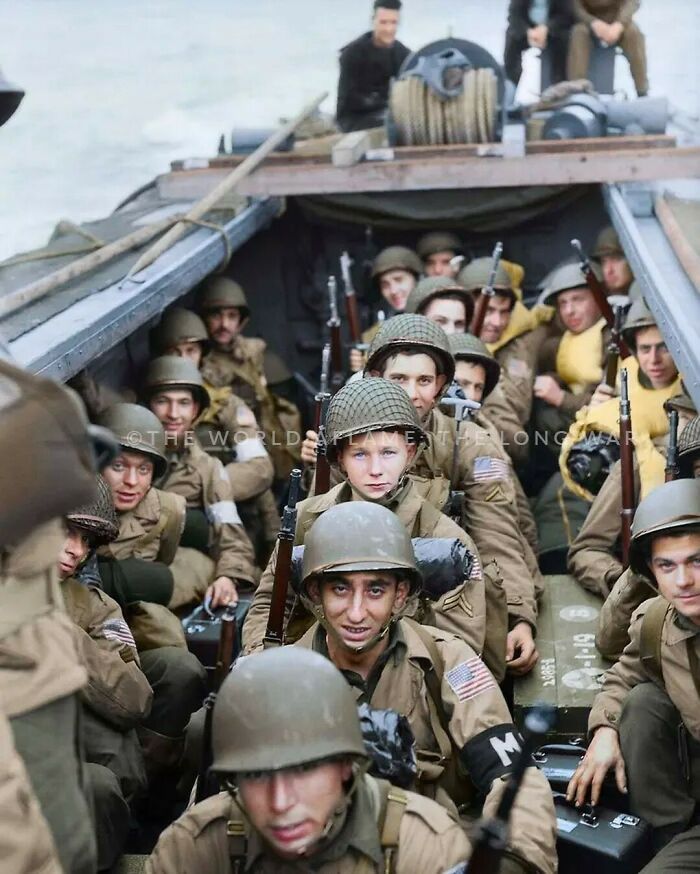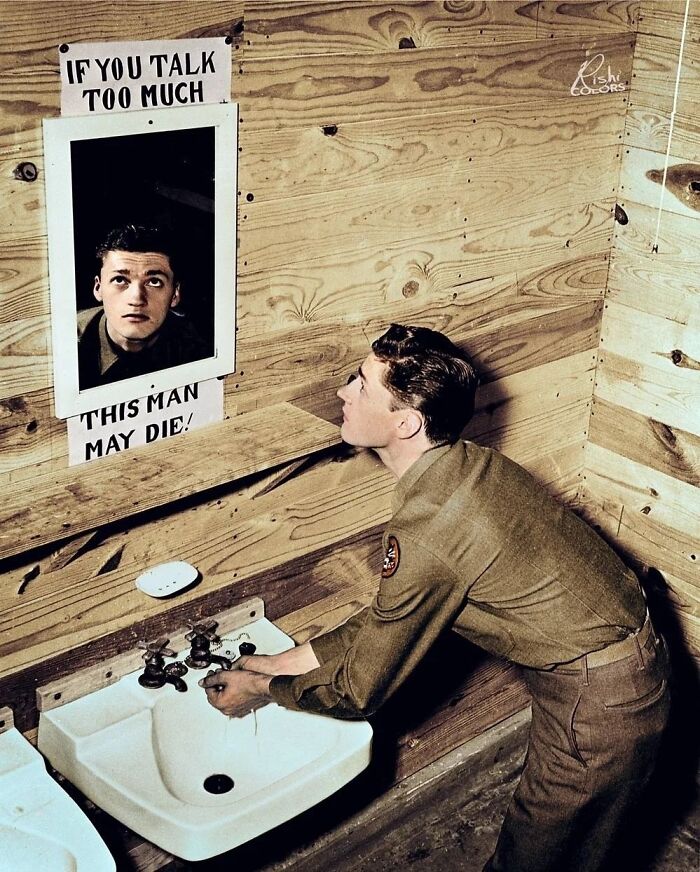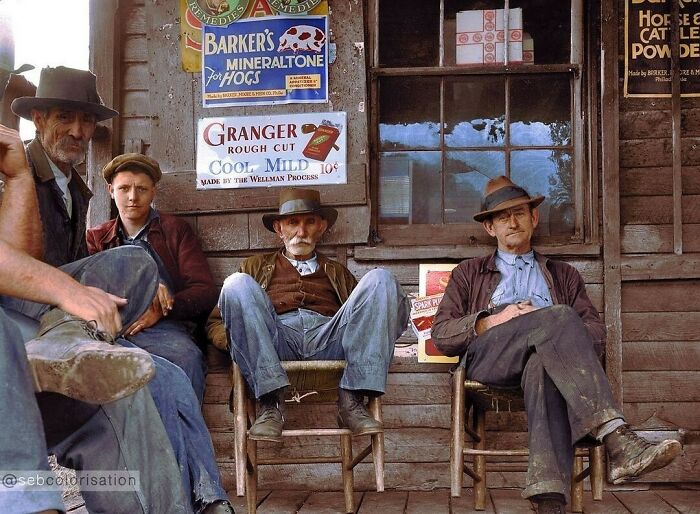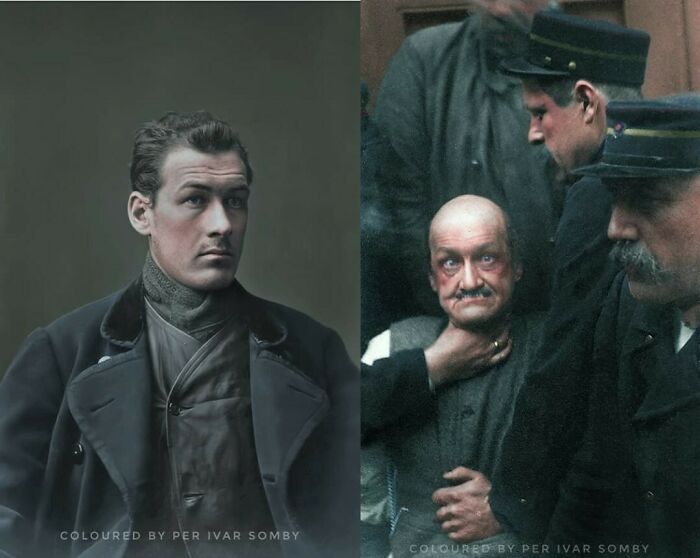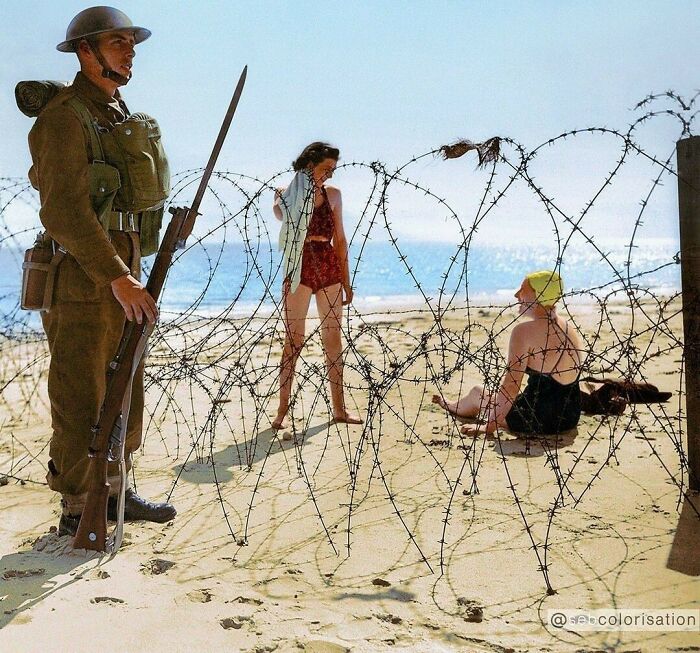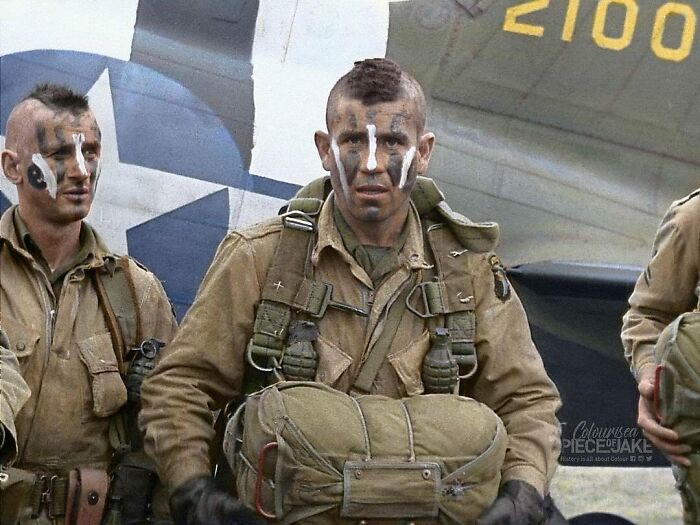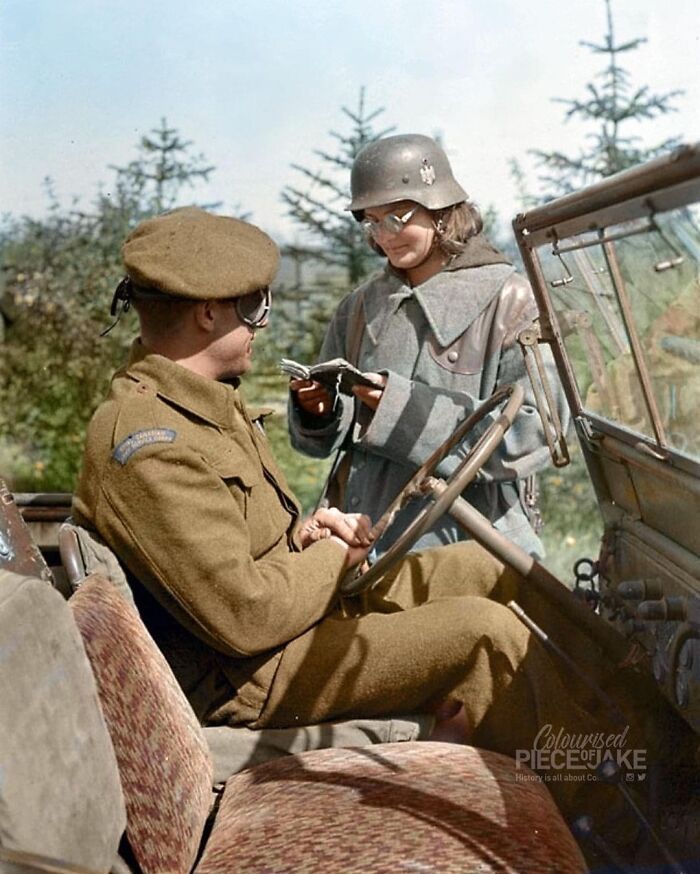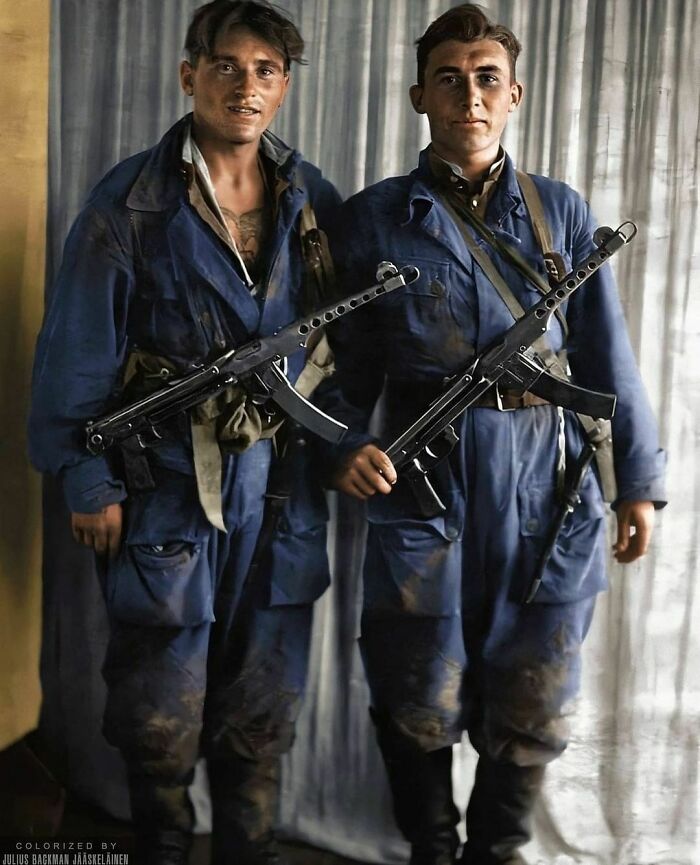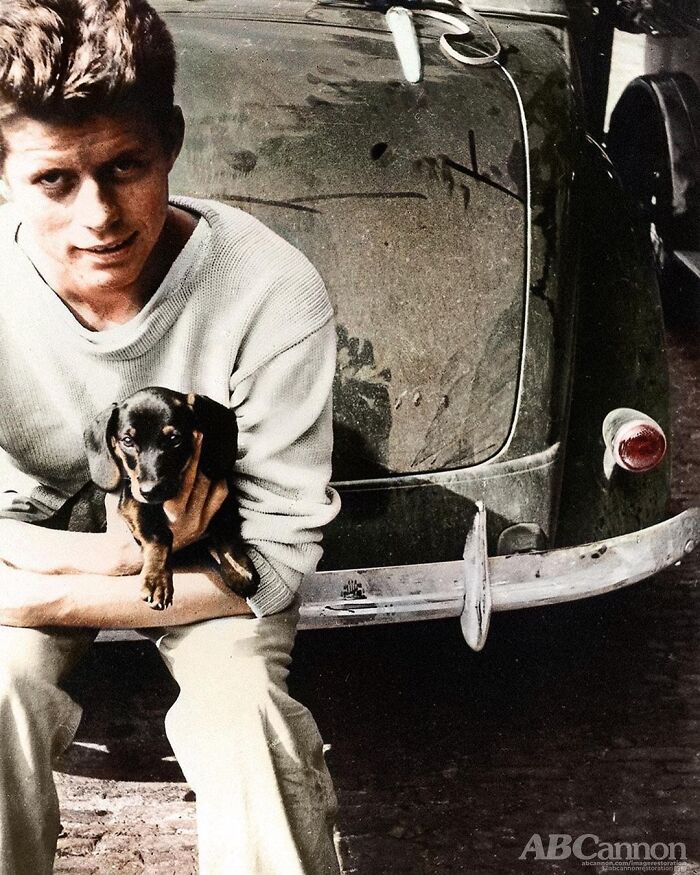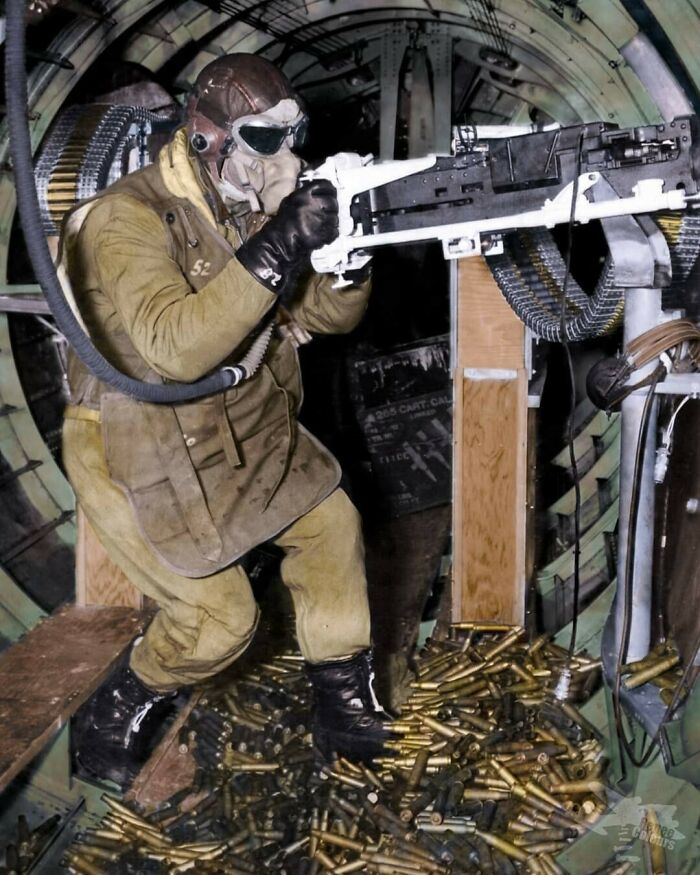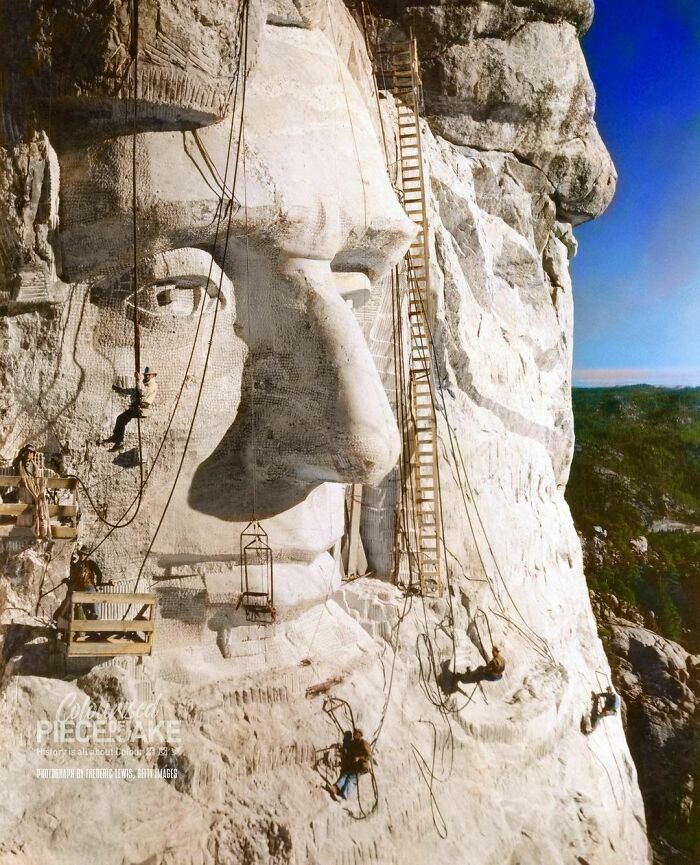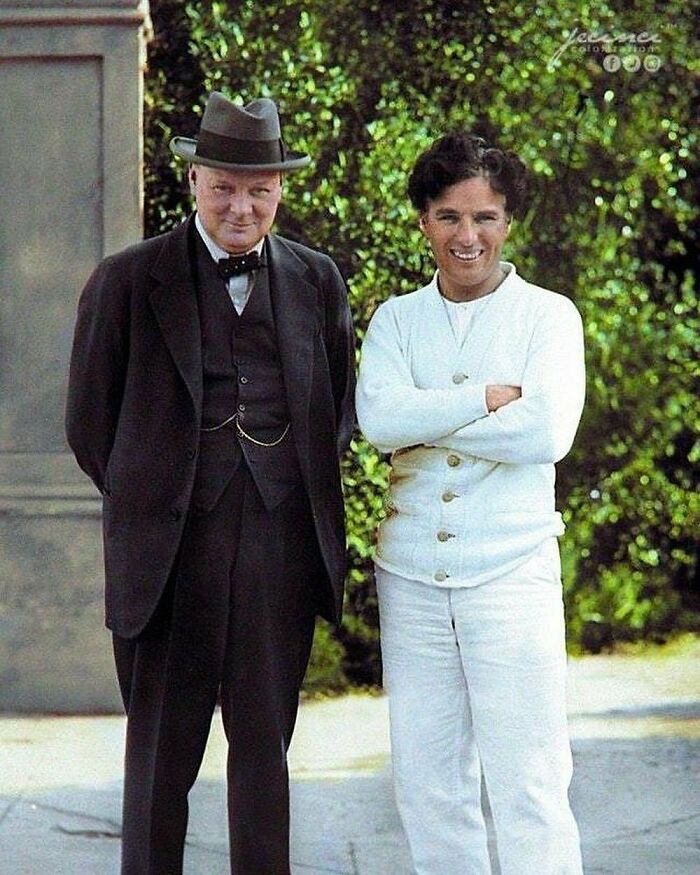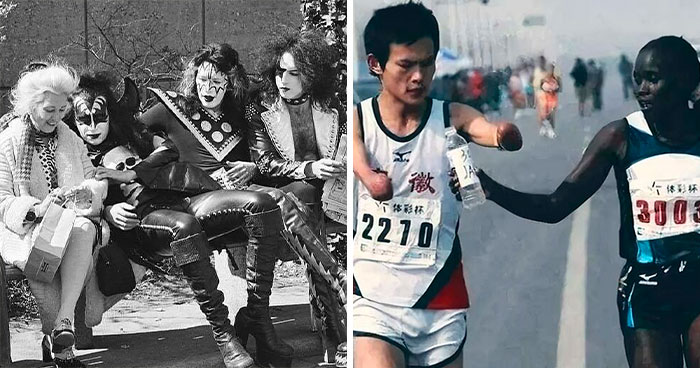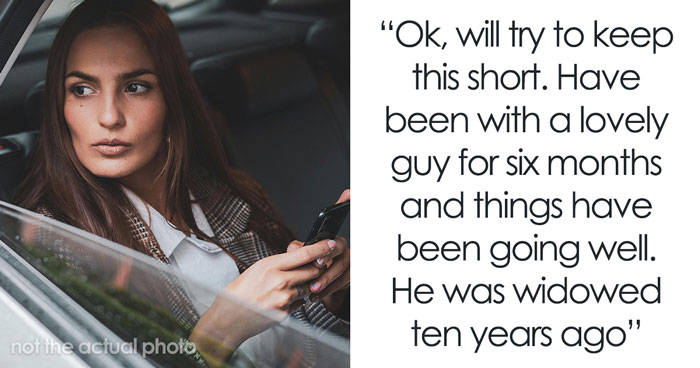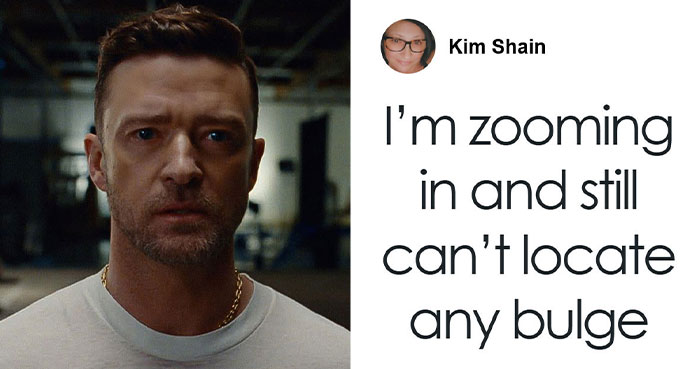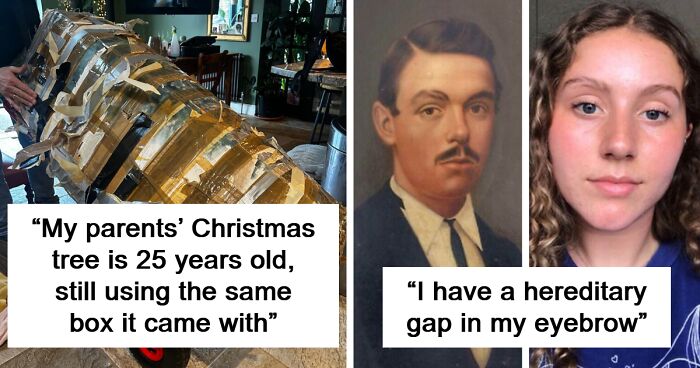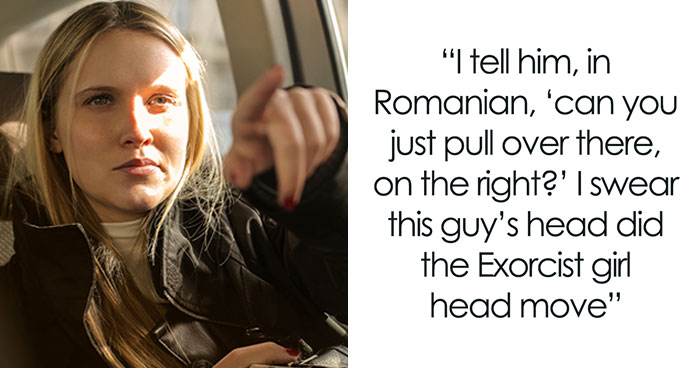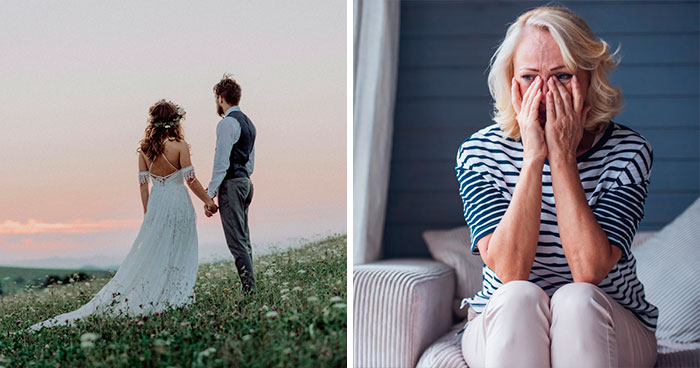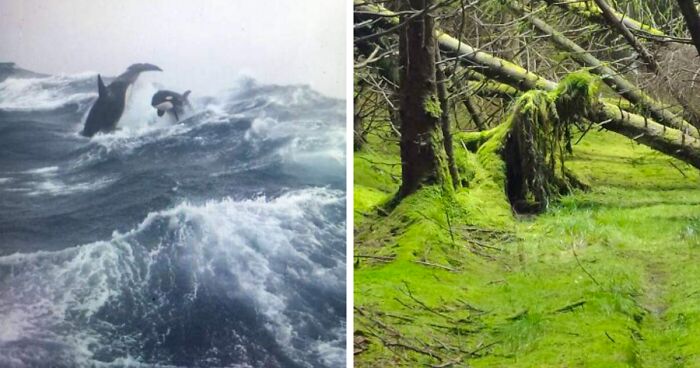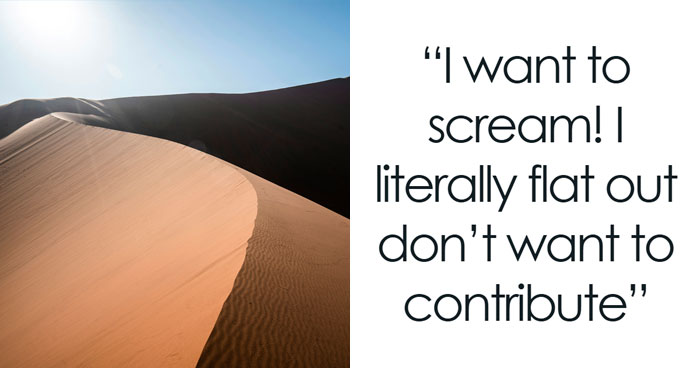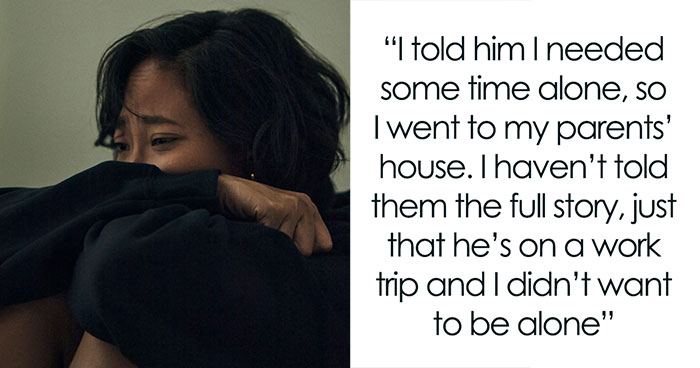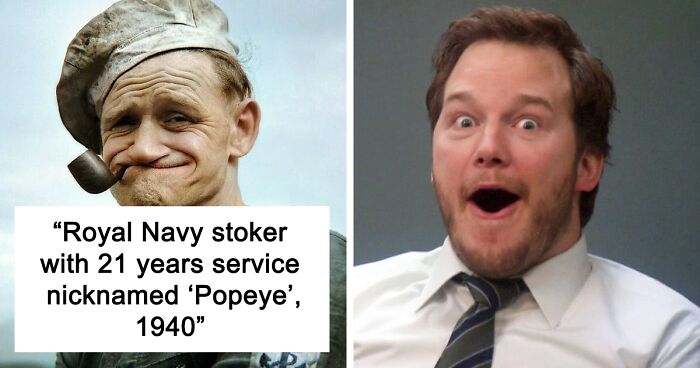
50 Historic Photos And The Stories Behind Them, Shared By The Instagram Page “History Colored”
I know it’s hard to imagine, but there was once a time where we couldn’t just snap pics on our iPhones and edit whatever filters our hearts desired onto them. Yes, once upon a time, all photos were taken in black and white. And while these vintage black and white images are undeniably beautiful, there is something extra special about being able to see historical photographs in color. Thankfully, with the technology we have at our fingertips today, artists all over the world are working to bring color and new life to old photos to give us a deeper understanding of the past.
And one of the best places on the internet to see these pictures is the History in Color Instagram account. We’ve gone through History in Color’s feed to find some of the most captivating vintage photos that have been colorized to share with you below. So enjoy checking out these little gems from the past, and be sure to upvote all of your favorites. Keep reading to also find an interview we were lucky enough to receive from Jim Mathis, a professional photo restorer and colorizer. Then if you’re interested in checking out even more historical photos after finishing this list, we’ve got the perfect Bored Panda piece for you to read next right here.
This post may include affiliate links.
A Japanese Couple Taking A Self Portrait Together In C. 1920
We reached out to professional photographer, photo restorer and photo colorizer Jim Mathis to get some insight on photo coloring from an expert. We asked Jim what inspired him to get into photo colorizing, and he told us, "I have always loved black and white photography. I was a protégé of Ansel Adams and other famous B&W photographers. For 23 years I owned a custom black & white photo lab in Kansas City. But I was very much aware that not all images are better in black and white, and, in fact, color can be a very strong element of many photographs."
"Before the invention of Kodachrome in 1936, if we wanted a color photo, it had to be hand colored. Artists who could paint over a B&W photo were in high demand for over a hundred years. The advantage of hand coloring is that we can use any colors we want, and we do not need to colorize the parts of the image that would be distracting if left in the original color," Jim told us.
Photo colorizing even ran in Jim's family. "My mother was a colorist that worked in a photo studio in the 1940s-50s, and I learned the technique from her at an early age. I have always enjoyed colorizing photos and making them special by using spot color or different colors."
A Navajo Man Photographed In C. 1904 Dressed As Nayenezgáni, A Mythical Hero From Navajo Mythology Who, Along With His Brother Tobadzischini, Rid The World Of The Anaye (Monsters From Navajo Mythology)
Please come back and do it again. We have so many monsters to get rid of nowadays.
We also asked Jim why seeing vintage photos in color is so captivating. "We are used to seeing older photographs as B&W, so adding color seems to bring them to life," he explained. "By its very nature B&W is abstract. The reality of color can be startling if we are used to seeing photos from a certain era only in shades of gray."
Jim also broke down the process of photo colorizing for us a bit. "In the past, oil paint, colored charcoal, or colored pencils could be used to add color to a B&W photograph, just as if we were making a painting from 'scratch'. With a computer using Adobe Photoshop, we can duplicate that same process using brush tools, pencil tools, and so forth. The most recent versions of Photoshop use AI which can apply the colors almost automatically by analyzing the image and figuring out what colors things should be. This process is not 100% accurate and usually only gives an approximate color and only works on common subjects. For example, Photoshop might know that grass is green and the sky is blue, or what color flesh tones should be, but it doesn’t know what color a car is or what any object that could be any color should look like. Automated colorizing still requires a certain amount of color correction and adjustments. The big advantage of using a computer to colorize images is that multiple prints and sizes can be made. I sometimes convert a modern color digital photo to black & white and then colorize it to give a new look. Not relying on the original colors can be a very creative process."
A Street Car Conductor Not Allowing Passengers Aboard Without Wearing A Mask During The Spanish Flu Pandemic. Photograph Taken In Seattle, Washington, USA In 1918
Jim also wanted to add that, "Not all B&W images should be colorized, but if the original photographer would have used color film if it had been available, colorizing may be a good choice."
If you'd like to check out Jim's website, you can find it right here.
Louis Armstrong Playing The Trumpet For His Wife Lucille In Front Of The Great Sphinx Of Giza In Greater Cairo, Egypt, In 1961
History in Color has grabbed the attention of many Instagram users since its creation. Through its sharing of over 3,400 photographs, the page has amassed nearly 900k followers. The owner of the page notes that they do not colorize the images themself, but they share photos they find and credit the original colorizers. From pictures of Marie Curie to planes in World War II, the page highlights some of the most fascinating moments in history that many of us have seen very few photos of, especially photos in color.
Colorizing photographs is not a new phenomenon, though. Sure, technological advances have made it much simpler, but artists were finding techniques to add color to photos all the way back in 1839. But colorizing at that time was a very lengthy process, as photos first needed to be taken, developed and printed before anyone could sit down and work on the color aspect.
Robin Williams Before He Was Famous, Dressed As A Mime In Central Park, New York, In 1974
"Daniel Sorine photographed two mime artists performing in New York’s Central Park and in 2013, Daniel was looking through his negatives and photographs when he realized one of the mimes was Oscar-winning actor Robin Williams"
Once a photo was prepared to be colorized, an artist would begin the expensive and time consuming process. The first person known for colorizing photographs was Swiss painter Johann Baptist Isenring. He would apply acacia gum then hand paint pigments onto a picture to bring the image to life. And while hand coloring photos began in Europe, it was soon popularized in Japan. Inspired by the colorful wooden prints of landscapes that were common in Japan at that time, artists already had the skill set necessary to begin colorizing photographs. Over time, European and Japanese artists shared their innovations and constantly adapted to find the most effective methods.
Chief Bone Necklace Of The Oglala Lakota Native Americans Photographed In 1899
When it comes to restoring photographs, there are various techniques and tools used depending on the damage. Similarly for colorizing images, artists would choose the best method depending on what look they were going for. However, the main tools that every artist had on hand tended to be watercolors, dyes, oils, crayons and pastels. Oil paints were more common among Western artists while watercolors were more popular in Japan. But by the 1880s and 1890s, Japanese artists started working with aniline dyes as well, which created more vivid colors that might even be seen as too vibrant today.
Royal Navy Stoker With 21 Years Service Nicknamed “Popeye”, Photographed On Board The Hms Rodney In September 1940
"A stoker was responsible for anything from the propulsion systems to hydraulics, electrical and firefighting systems. The HMS Rodney played a major role in the sinking of the German battleship Bismarck in mid-1941"
Two Photographs Of Evgeny Stepanovich Kobytev, A Soviet Soldier, Taken 4 Years Apart. The First Image, On The Left, Was Taken The Day He Went To Fight In The War, Age 30 In June 1941, And The Photograph On The Right Was Taken When He Returned From The War In 1945
Not only the face, but maybe his character has also changed 180 degrees
A Native American, Belonging To The Ojibwe People, Spear Fishing In A Lake Somewhere In Minnesota, United States. Photograph Taken In 1908
The details on the boat are incredible. We're lucky to have some surviving pictures to see for ourselves.
The painting was an extremely tedious process, with master colorists in Japan sometimes only finishing two or three photographs during a twelve-hour work day. Over time, studios began to expedite the process by employing more and more artists to create a production line. Every artist would be responsible for specific tasks, like a set range of colors, a particular area of each photo, or every person in an image. By the 1890s, prominent Japanese colorizing studios employed anywhere from 20-100 artists. This greatly increased their output and allowed Japan to establish its prominence in the field of photography colorization.
Martin Luther King Jr. And Ralph Abernathy Riding On The First Desegregated Bus In Montgomery, Alabama In December 1956
Future Queen Elizabeth II Of The United Kingdom Photographed At The Age Of 19 In 1945 Serving As An Ambulance Driver For The Auxiliary Territorial Service During World War II
Wo Apsaroke Native Americans On Horseback Outside Of A Tipi In A Snow-Covered Forest In Montana In 1908
As time passed, albumen prints and organic pigments that Japanese artists had traditionally used began to fade and become discolored due to too much exposure to light and pollutants. Photographers grew concerned as their clients became less willing to purchase photos that they knew wouldn’t stand the test of time, so artists continued to seek innovation and update their practices. One photographer, Tamamura Kozaburo, claimed in an ad in 1891, “My coloring has been pronounced by competent judges to be unsurpassed by any in this country [and because] I use only the best chemicals, my photographs are durable and do not fade.” Today, many of the Japanese hand-painted photographs that are on display in museums are still vibrant and beautifully colored, as they have been delicately maintained and protected from the elements.
A Navajo Man Photographed In C. 1904 Dressed As Tó Neinilii, The Rain God Of The Navajo People, A Deity Given To Having Fun And Playing Tricks
Neinilii sounds like a really fun god! I’d like to find a kachina of him.
The Cast Of Star Wars Out Of Costume In C. 1977. From Left To Right: Harrison Ford (Han Solo), David Prowse (Darth Vader), Peter Mayhew (Chewbacca), Carrie Fisher (Princess Leia), Kenny Baker (R2-D2), And Mark Hamill (Luke Skywalker)
Chief John Smith A.k.a. White Wolf, Reportedly The Oldest Native American To Ever Live (137-Years-Old), Photographed In C. 1920. White Wolf’s True Age At His Death Is Often Disputed
Fast forward 100 years, and suddenly the digital age of colorization began. When it comes to more recent innovations, Adobe Photoshop was a game changer. After its release in 1991, hand-coloring became much less popular. Suddenly, artists could create separate color layers for each color in the photo and paint over the picture using virtual brushes. Photoshop allowed artists to adjust standard hues and saturation, color balance and opacity of each individual color, and because the image could constantly be edited, it was much easier to play around with colors before making permanent decisions. Various versions of any photo could be made as well. And of course, infinite prints could be made, so there was no longer a concern about how long the photographs would last.
Hawaiian Surfer, Charles Kauha, Carrying An Alaia, A Surfboard Ridden In Pre-20th Century Hawaii, At Waikiki Beach In 1898
An Italian Boy Giving Flowers To An American Soldier Whose Tank Had Stopped On The Edge Of Rome, Italy In June 1944
The clothes on both of them say a lot about what they have been through.
Iconic Spanish Civil War Photograph Taken By Juan Guzmán Of 17-Year-Old Marina Ginestà With An M1916 Spanish Mauser Rifle Overlooking Barcelona On The 21 July 1936 During The 1936 Military Uprising In Barcelona
Even more recently, AI technology has been used to colorize old photographs. The latest versions of Photoshop have AI technology built-in that analyzes a photo and compares it to millions of others online to add appropriate colors within seconds. While the photos tend to need more adjustments from artists following the initial AI coloring, the technology can save photoshoppers hours by giving them a huge head start. According to Jim Mathis, a professional photo restorer and colorizer, this AI technology is not a perfect fix, but about 90% of the time, it’s worth using.
A Portrait Of Two Whistles (Ishichoshtupsh) Of The Crow People (Apsáalooke) Photographed By Edward S. Curtis In 1908
Charlotte And Marjorie Collyer, Survivors Of The Sinking Of The Titanic Which Took Place In April 1912. They Were 2nd Class Passengers On The Ship And Charlotte’s Husband/Marjorie’s Father, Harvey Collyer, Died In The Disaster. Photo Taken In June 1912
Mercury Train Photographed In 1936. Mercury Was The Name Used By The New York Central Railroad For A Family Of Daytime Streamliner Passenger Trains Operating Between Midwestern Cities. The Mercury’s Started Operating In 1936 And Lasted Until 1959
In recent years, there has been a bit of controversy around using AI exclusively to recolor historical photographs. Some people claim that it falsifies history by portraying photos in a light that we have no way of knowing is accurate. Data scientist Samuel Goree was skeptical of this AI technology, so he put it to the test himself. He used DeOldify, an AI colorization app, to convert a black and white version of Alfred T. Palmer’s famous 1943 photograph Operating a hand drill at Vultee Nashville back to color, and the photo that the app created featuring the black female subject with lighter skin than she had in reality.
Rench Painter Claude Monet Photographed In His Garden In Giverny, France In 1899
British Socialite And Suffragist, Lady Norman, Photographed On Her Autoped In C. 1916. The Autoped Early Motorized Scooter Manufactured By The Autoped Company Of Long Island City, New York From 1915 To 1922
Jewish Families In Amsterdam, The Netherlands Being Forced To Leave Their Homes In May/June 1943 And Assemble For Deportation To Concentration Camps
Some people also disagree with AI colorization as it disregards the original artist’s intent. Photographers are usually extremely particular about their images, and allowing a computer to decide what they look like takes away some of their artistic freedom. For example, we all know how a filter can change the feeling an image conveys, as many of us use filters on Instagram all the time. But it’s important that when adding color to historical images, artists use care and precision. These photos tell stories about the past, and those stories should be told in an unbiased light.
An 81-Year-Old Nikola Tesla, A Serbian-American Inventor, Electrical Engineer, Mechanical Engineer, And Futurist Who Is Best Known For His Contributions To The Design Of The Modern Alternating Current (Ac) Electricity Supply System. Photograph Taken In 1937
Dutch Resistance Fighters Photographed Celebrating The Liberation Of The City Of Breda, The Netherlands, By The Polish 1st Armored Division On The 29th October 1944
British Veteran Of The Napoleonic Wars And His Wife Sitting For A Photograph In The 1860s. This Veteran Served In The Peninsular War Which Took Place From 1807 To 1814 And Saw Bourbon Spain Assisted By Great Britain Against The First French Empire For Control Of The Iberian Peninsula
It’s fascinating to see these vintage photographs come to life with a bit of color. I find it easier to relate to these past events and figures when I can view them this way. While the coloring may not be 100% accurate, it can certainly enhance the experience of viewing these photos. We hope you enjoy the rest of this list, and don’t forget to upvote all of your favorite pictures. Then if you want to see even more History in Color, be sure to check out the Instagram page right here.
Women Delivering Ice From A Truck On An Ice Route On The 16 September 1918. This Job Was Previously Only Done By Men But Due To The War, Women Were Recruited. Shortly After The End Of The First World War, The Natural Ice Trade Began To Be Overtaken By Production Of Ice Through Refrigeration Cooling Systems And Plant Ice
I’ll bet they loved loved loved being able to wear pants and move with so much more ease than you can in a skirt. Skirts in WWI were still at the ankles—-they wouldn’t go to the knee until the twenties—-and there was also the passing fad of hobble skirts, which were skirts that were very narrow at the hemline, like pencil skirts but to the ankles and not so form fitting above, which also made walking difficult, hence their name. But pants? What a feeling of pure freedom they must have felt!
A Boy Sitting In The Wreckage Of A Building Shortly After A Bombing Raid Of London, England During World War 2. Photograph Was Taken In January 1945. Credit: @marinaarts historycolored.com see The Photo In Black And White By Going To @historyblackandwhite! #history #ww2 #ukhistory
One of those instances where you simply want to reach through the screen and give the boy a hug. So sad
Russian Revolutionary Leon Trotsky (Right), Mexican Artist Frida Kahlo (Center), And Revolutionary And Wife Of Trotsky Natalia Sedova, Photographed Together In Mexico In 1937
The Famous Photo Of The Migrant Mother Taken By Dorothea Lange Showing 32-Year-Old Mother Florence Owens Thompson At A Pea Picker Camp Where The Crops Had Died Due To Frost. Photograph Taken In Nipomo, California
I highly recommend you read "The Grapes of Wrath" or at least see the movie.
Norwegian Painter, Wilhelm Otto Peters, Working On His Painting “Digging For Worms” In Nesseby, Finnmark, In 1884
A French Boy Running Down A Street With A Baguette Photographed By French Photographer Willy Ronis In 1952
Photograph Of The Hindenburg Disaster On The 6 May 1937. This Was When The German Passenger Airship Lz 129 Hindenburg Caught Fire And Was Destroyed During Its Attempt To Dock With Its Mooring Mast At Naval Air Station Lakehurst
It's hard to comprehend the size and scale of the aircraft and the fire compared with the people running on the ground.
16th President Of The United States, Abraham Lincoln, Photographed At The Age Of 56 On The 5 February 1865, A Month Before His Second Inauguration, And 2 Months Before His Assassination
A Crowded Beach In Atlantic City Photographed In 1908
Photograph Of The Oldest House In Hamburg, Germany Taken In 1898. It Was Built In 1524 And, Despite Protests From Locals, Was Demolished On The 8 December 1910
What a pity! But previous generations didn't really had a feel for historical buildings and objects. I know many such stories. "New is always better" Sigh...
Wooden Leg (Kâhamâxéveóhtáhe), Photographed Holding A Rifle At Northern Cheyenne Reservation, Montana In 1927
Nicoli (Pix-On-Che-La-Hoit) Of The Native American Salish Peoples Photographed By Edward H. Boos On The Flathead Indian Reservation, Western Montana In C.1905
Just for peoples' knowledge, this is man from the Flathead tribe. Salish is a language grouping, not an actual tribe.
The Interior Of A Commercial Plane In 1936. The Plane Belonged To Imperial Airways, The First British Commercial Airline
A Woman Posting A Letter In A Postbox Amongst Destroyed Buildings And Rubble Caused By German Air Raids During World War II. Photograph Taken In London, United Kingdom In 1940
He Train Wreck At Montparnasse Station In Paris, France On The 22 October 1895. The Train Overran A Buffer Stop And Smashed Through A Window Due To The Driver Approaching The Station At Too Fast A Speed. Surprisingly, There Was Only 1 Death As A Result Of This Disaster, A Woman Outside The Station Was Killed By Falling Masonry
Photographer Michael Nash Using A Backdrop To Hide Buildings Damaged During World War II While Photographing A Woman In Warsaw, Poland In November 1946
Most of the city demolished to the ground in German bombardment and artillery fire. It prevailed.
The Oldest Surviving Photograph Ever, Taken In C. 1826 By Joseph Nicéphore Niépce From A Window On His Estate 'Le Gras' In Saint-Loup-De-Varennes, France. In The Photograph, You Can See Some Buildings On His Estate And The Surrounding Countryside
TBH, once film was invented—-and the most difficult part of new technology is always making the first fully functional prototype—-aside from digital, most of the advancements in film itself (NOT cameras, but film) were color and ever increasing clarity of the photos. You see how fuzzy this picture is—-an amazing breakthrough for its time. You must alway give credit to the inventor. Always. However, you can’t really make out many of the details. The past century and a half of film and digital photography has created film that takes pictures so crystal clear you can see every leaf on a tree, every blade of grass on the ground, and all in the most beautiful, crisp, and true color.
Viljo Valter Suokas, Knight Of The Mannerheim Cross (The Most Distinguished Finnish Military Honor), Photographed At A Field Hospital After Being Wounded In December 1941
A Young Soldier Of The Austro-Hungarian Army Standing On The Bridge Of Sighs, A Bridge Connecting Tunnels Inside The Marmolada Glacier. Photograph Taken On The 25 September 1917
People At Daytona Beach In Flordia, United States In 1904
Thank goodness the roaring 20's came around a liberated women's fashion
Paulette Goddard And Charlie Chaplin (Dressed As His Famous Character The Tramp) Photographed In 1936 Resting On The Set Of The Silent Film Modern Times
He composed so much of the music for his films, too. If you only know him as an actor, you'll be blown away by the music you recognize that he wrote.
72 Wall Street In New York City Photographed On The 7 November 1918 Showing Citizens Celebrating The End Of The First World War Four Days Before The Official Declaration After News That An Armistice Was To Be Signed Spread Throughout The City
Four Women Photographed Outside A House In The Slums Of Amsterdam, The Netherlands In 1899. The Photograph Was Taken By The Health Service In Preparation For An Uninhabitable Declaration
Beautiful...I always look at historical photos but these are really great. You can see real people in them...since the have been restored and colored the people look as familar as people look today. Its strange because lots of times woth black and white pictures the people look nostalgic too...like they must have been different..but people dont change, not really. Our clothes may change and some of our values but the fact remains that our basic wants and needs remain the same over and through vast amounts of time. This collection of photos really shows that humanity in the people who are pgotographed...even the American natives who I must say look as though they are dressed for a costume party...I'm very goad I spent the time to look through this collection. I hope lots of other people do as well.
I agree, it's somehow much easier to see the people as real people when they are not in sepia, it brings them up through time to us
Load More Replies...And on that note can we cut the self-righteous BS? My great grandmother went to one of the most notoriously horrible assimilation schools in the country where, as she said, "they tried to beat the Indian out of me." She would be rolling in her grave to know that someone was using her ACTUAL pain and suffering as a way to be petty online and make themselves feel superior. It's pathetic. How bout using that energy on an actual issue? There are plenty to choose from.
Yall I'm native American. Chippewa bad river band. Maybe yall should stop assuming people's ethnicity? 🤔
Beautiful...I always look at historical photos but these are really great. You can see real people in them...since the have been restored and colored the people look as familar as people look today. Its strange because lots of times woth black and white pictures the people look nostalgic too...like they must have been different..but people dont change, not really. Our clothes may change and some of our values but the fact remains that our basic wants and needs remain the same over and through vast amounts of time. This collection of photos really shows that humanity in the people who are pgotographed...even the American natives who I must say look as though they are dressed for a costume party...I'm very goad I spent the time to look through this collection. I hope lots of other people do as well.
I agree, it's somehow much easier to see the people as real people when they are not in sepia, it brings them up through time to us
Load More Replies...And on that note can we cut the self-righteous BS? My great grandmother went to one of the most notoriously horrible assimilation schools in the country where, as she said, "they tried to beat the Indian out of me." She would be rolling in her grave to know that someone was using her ACTUAL pain and suffering as a way to be petty online and make themselves feel superior. It's pathetic. How bout using that energy on an actual issue? There are plenty to choose from.
Yall I'm native American. Chippewa bad river band. Maybe yall should stop assuming people's ethnicity? 🤔

 Dark Mode
Dark Mode 

 No fees, cancel anytime
No fees, cancel anytime 


